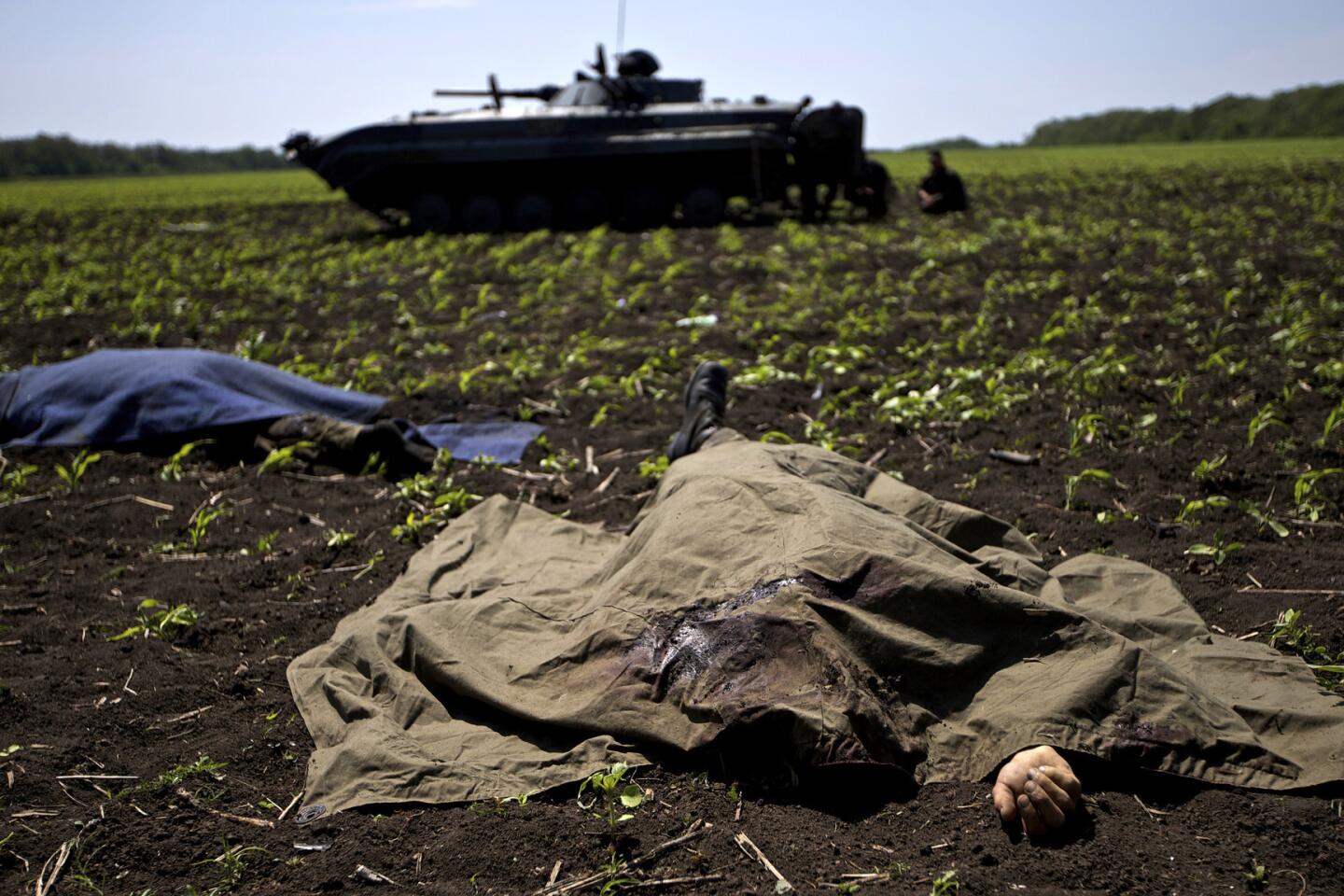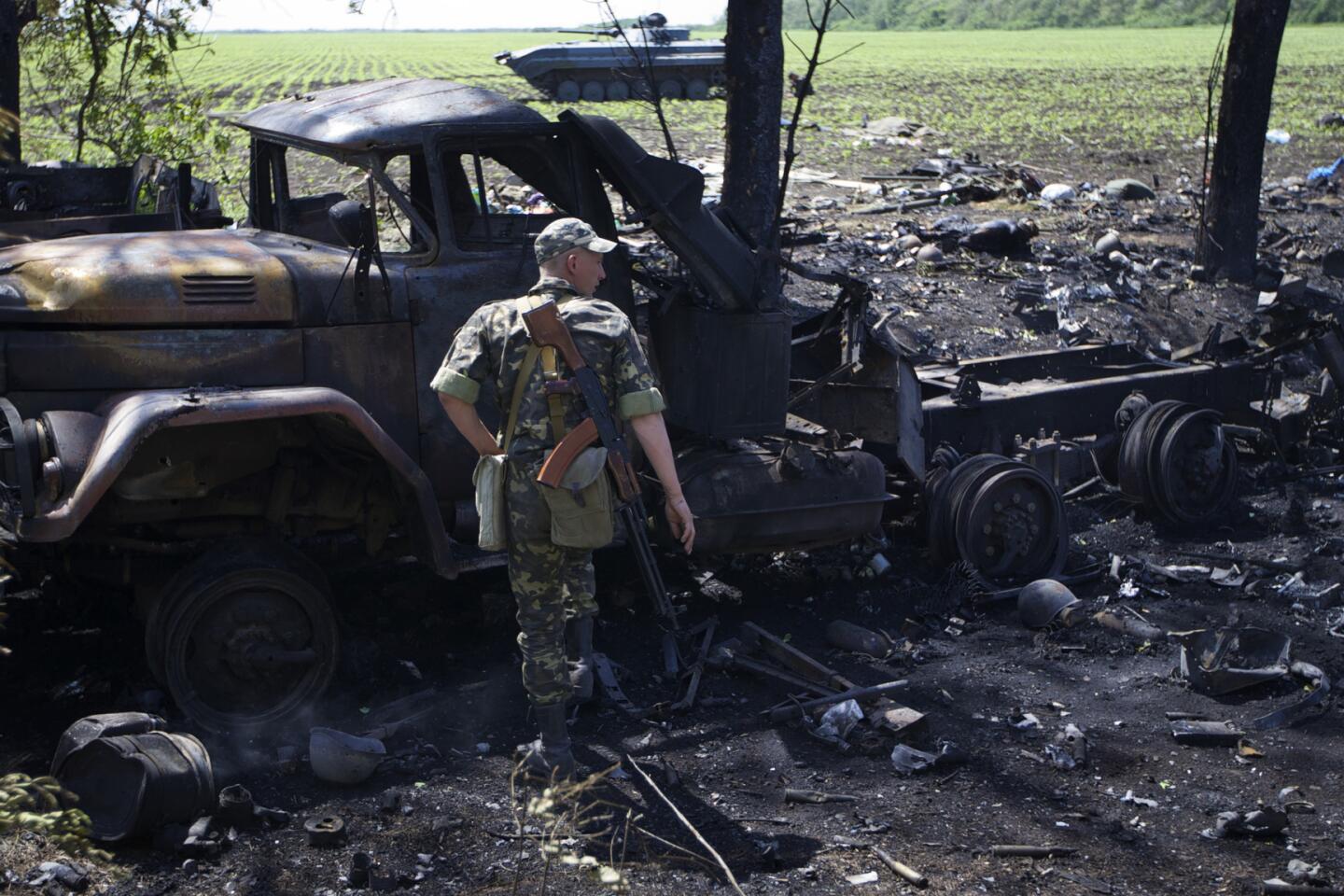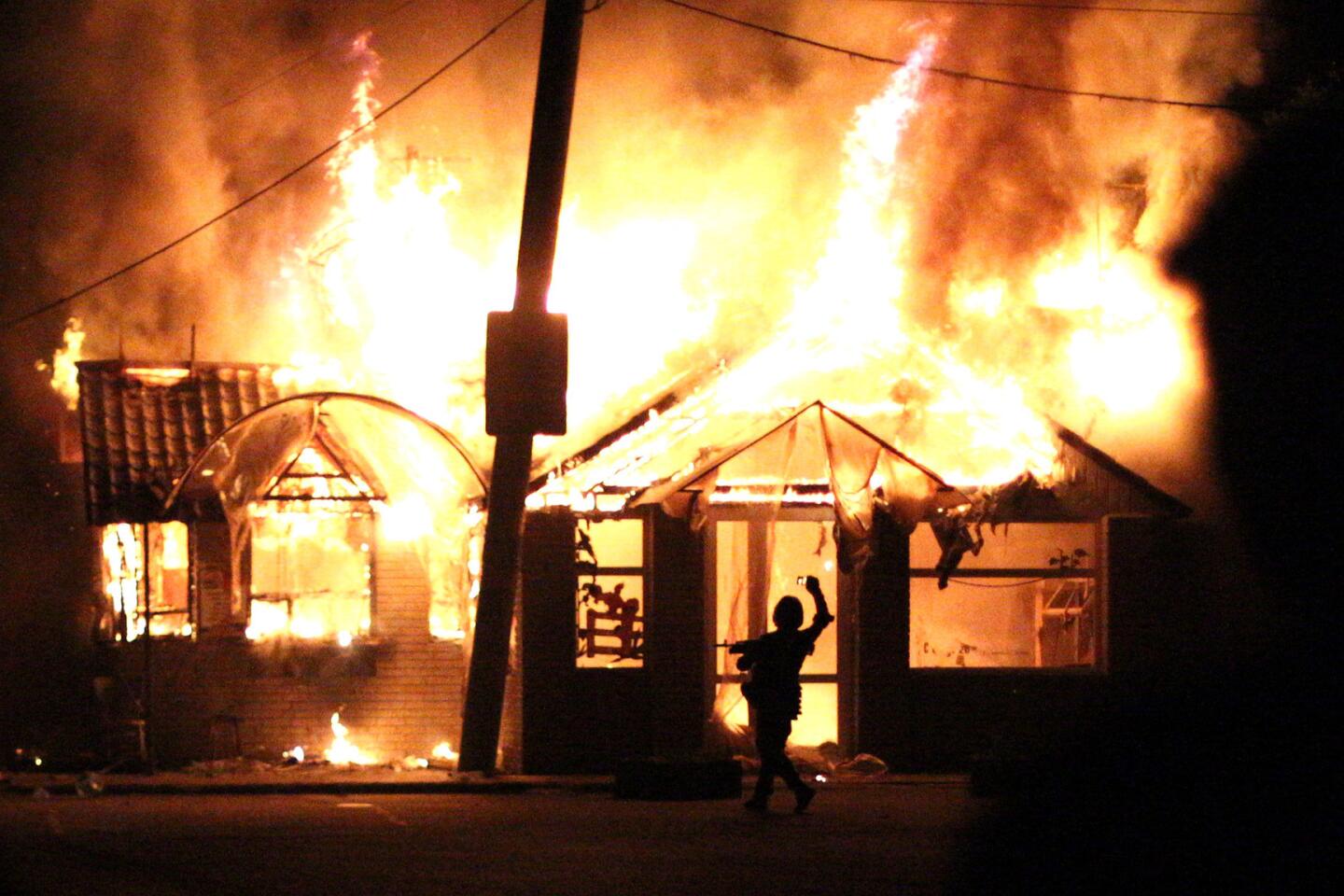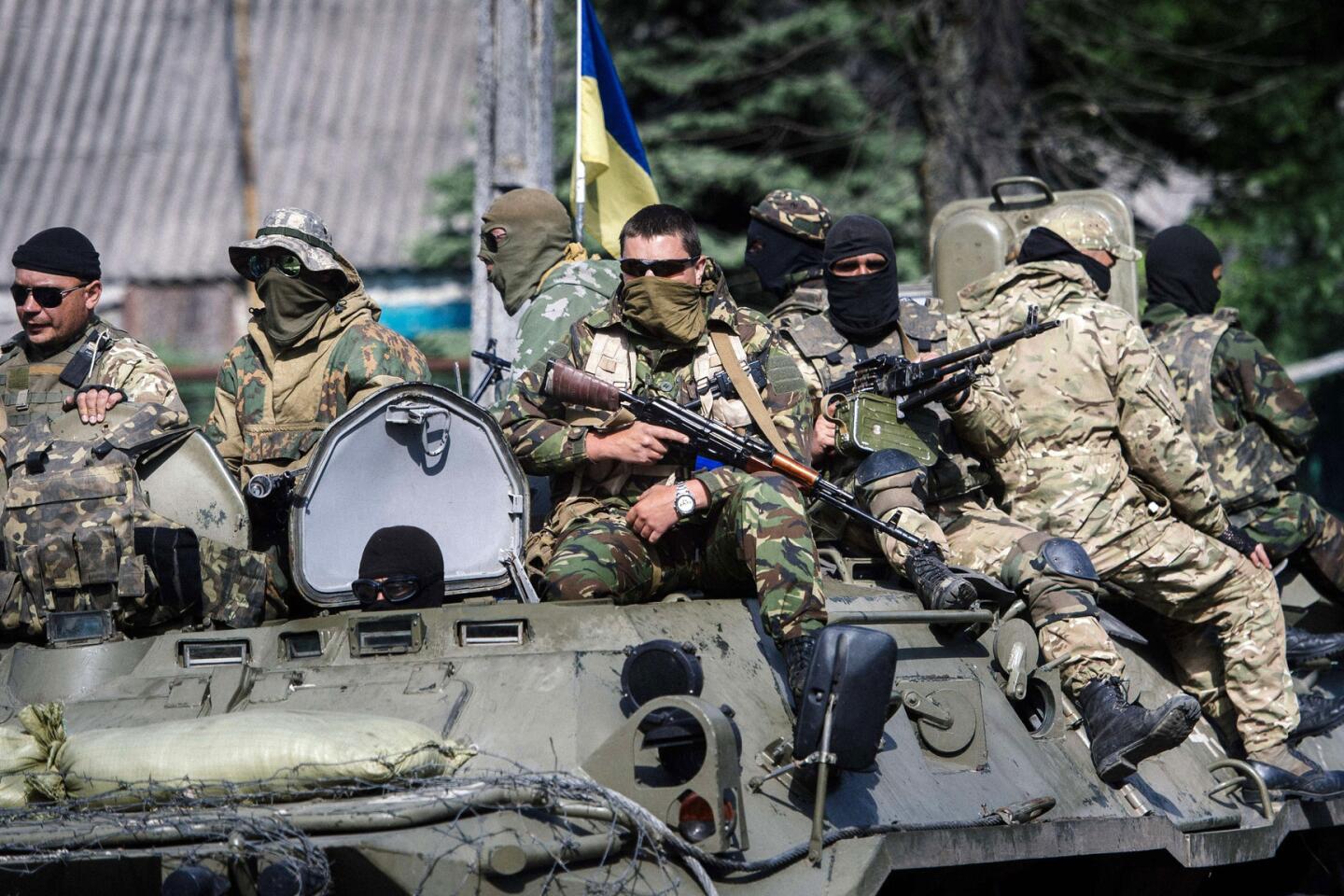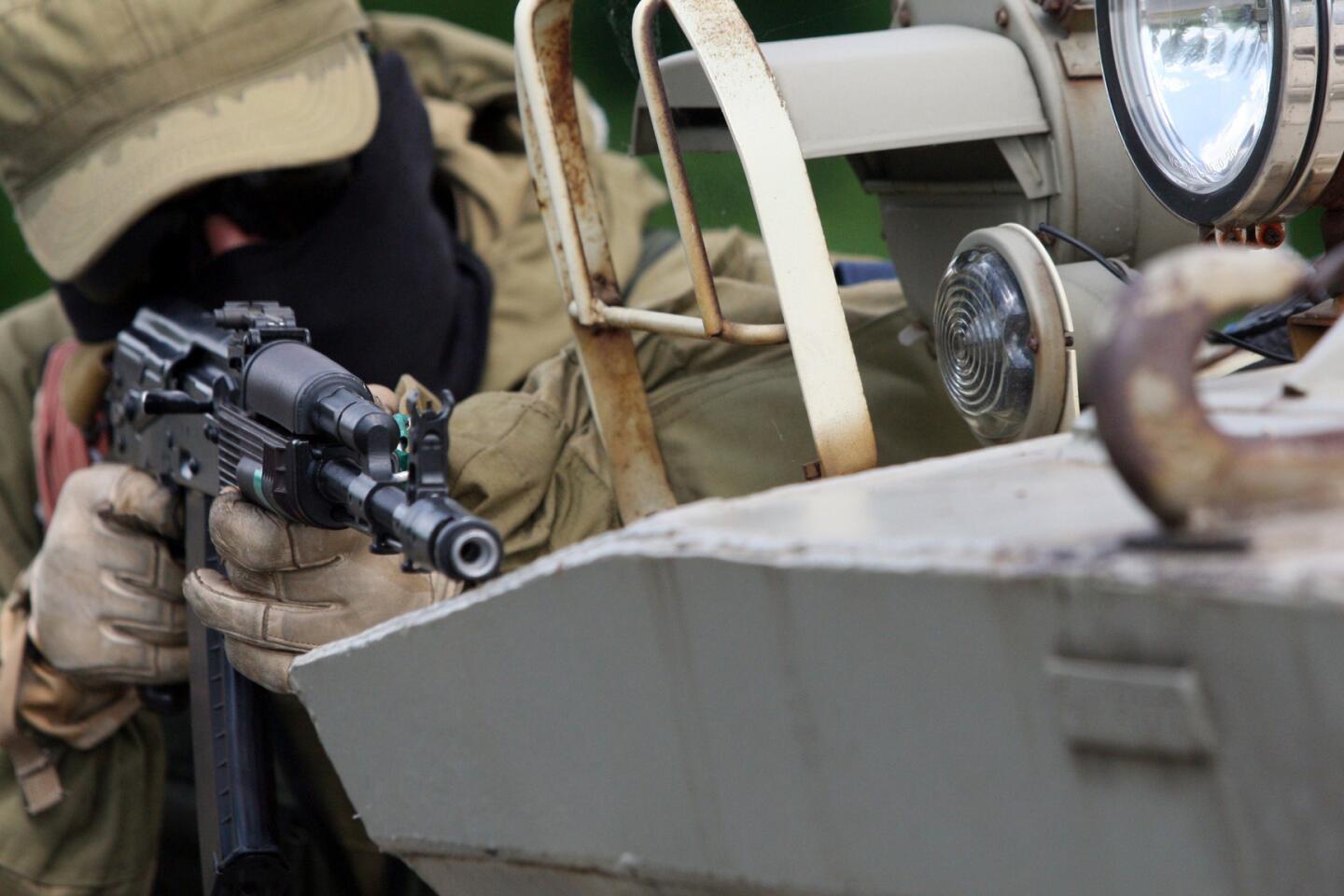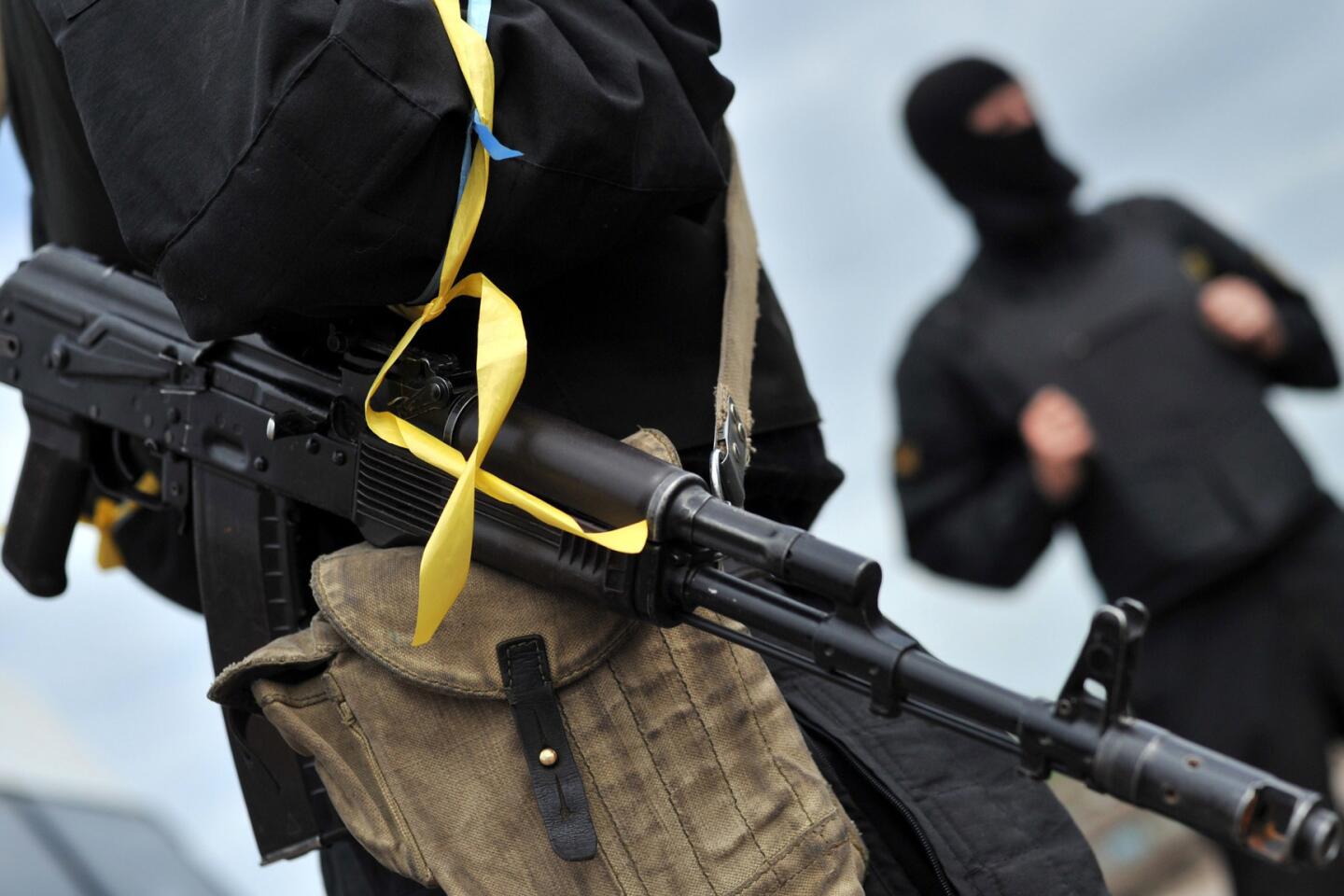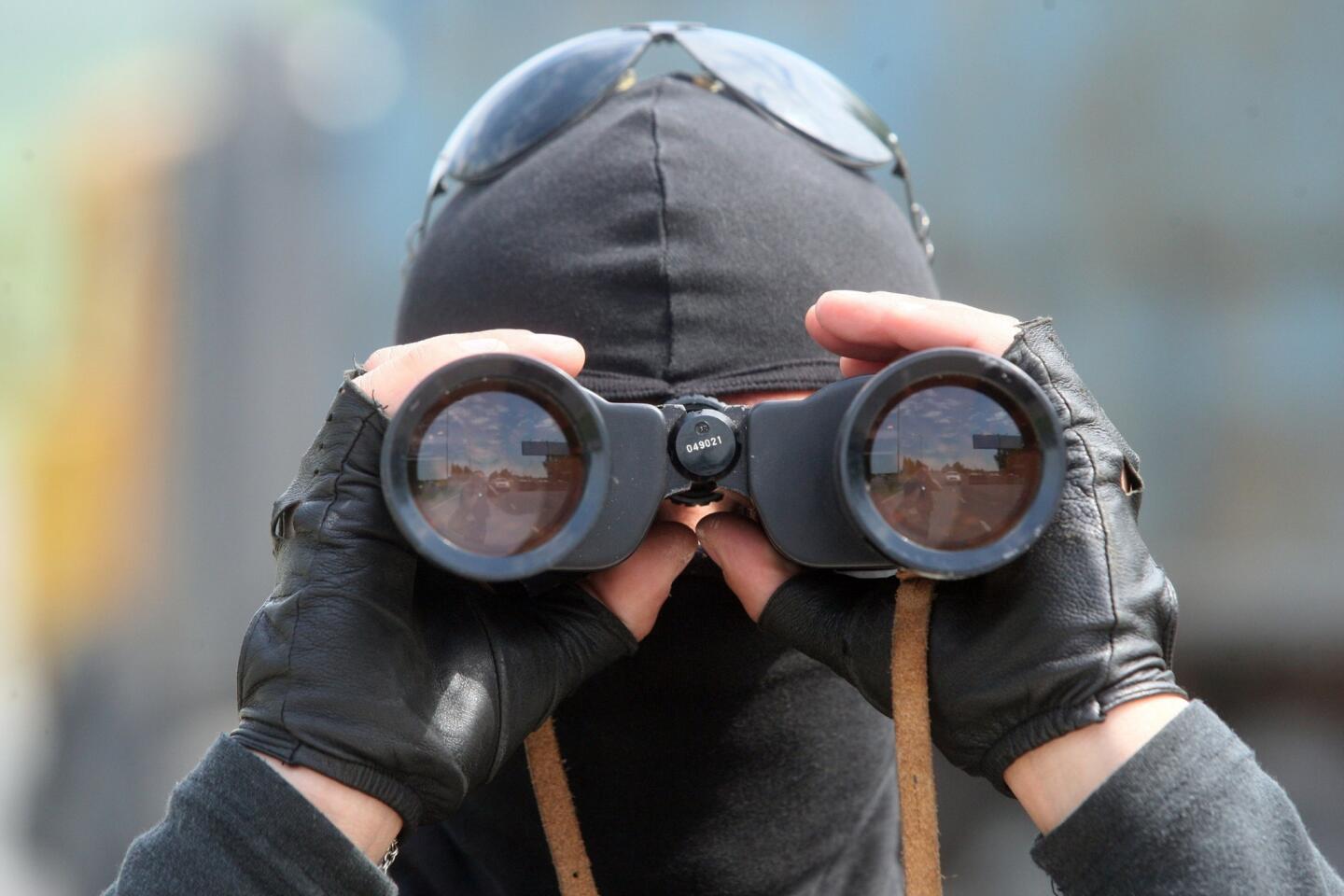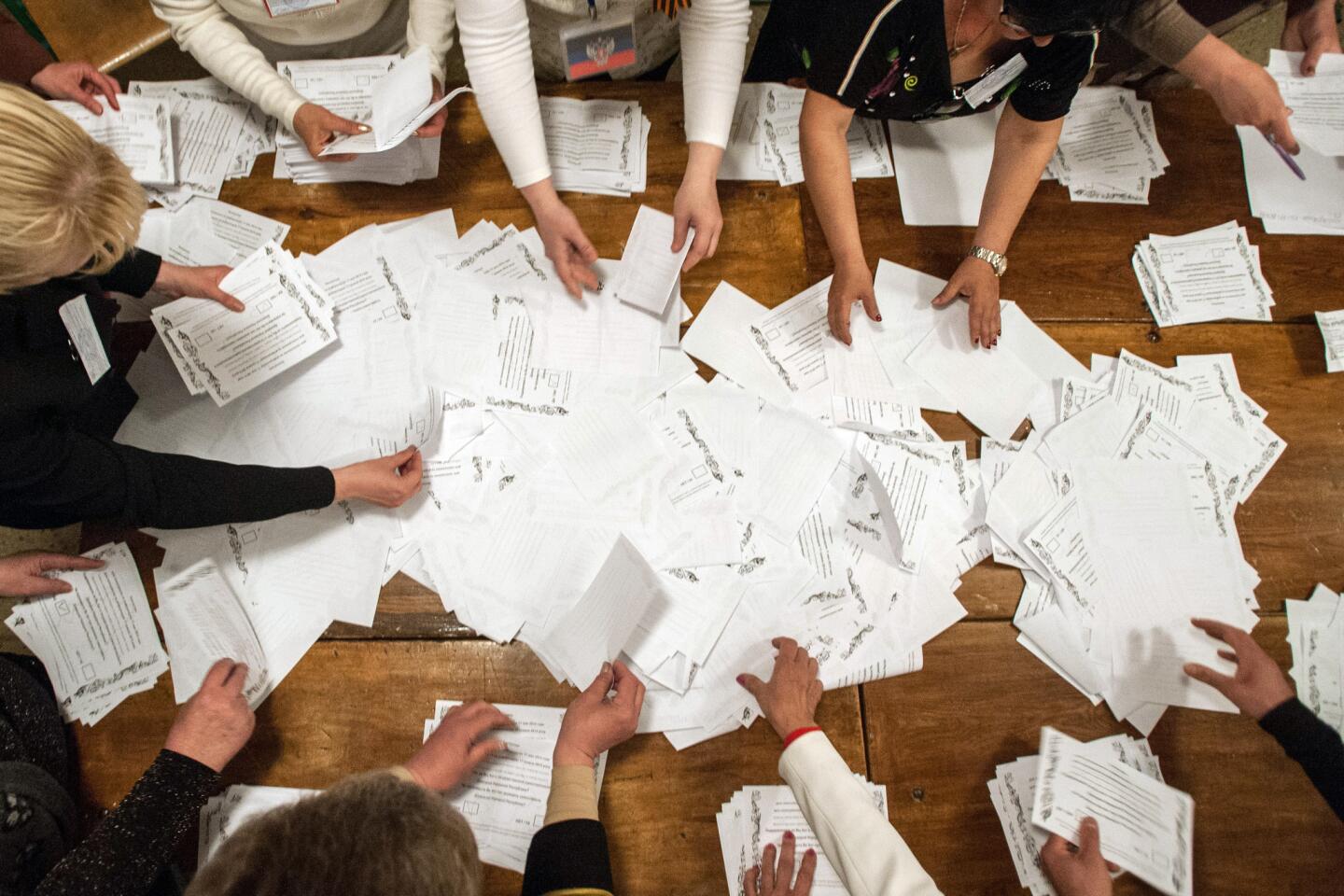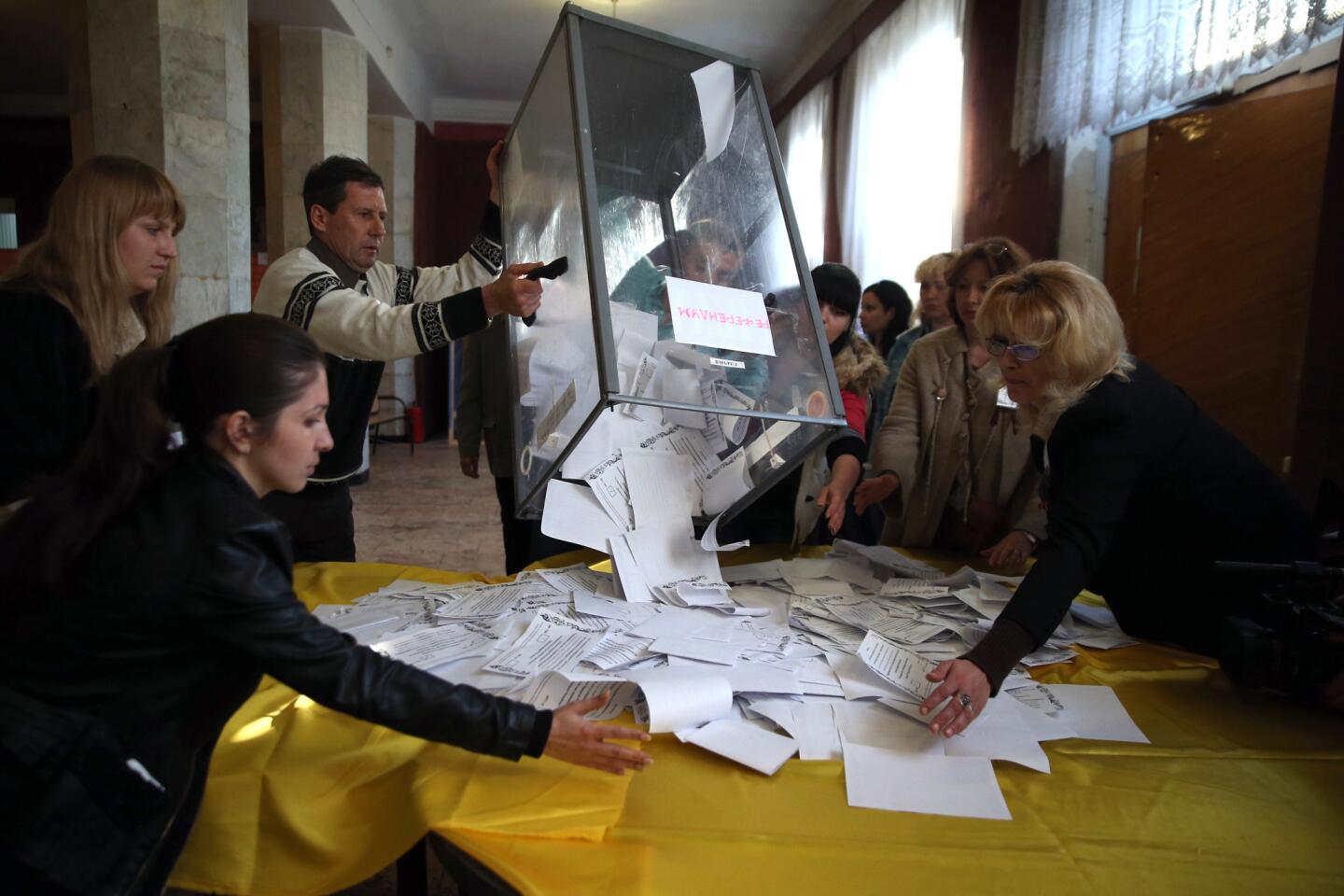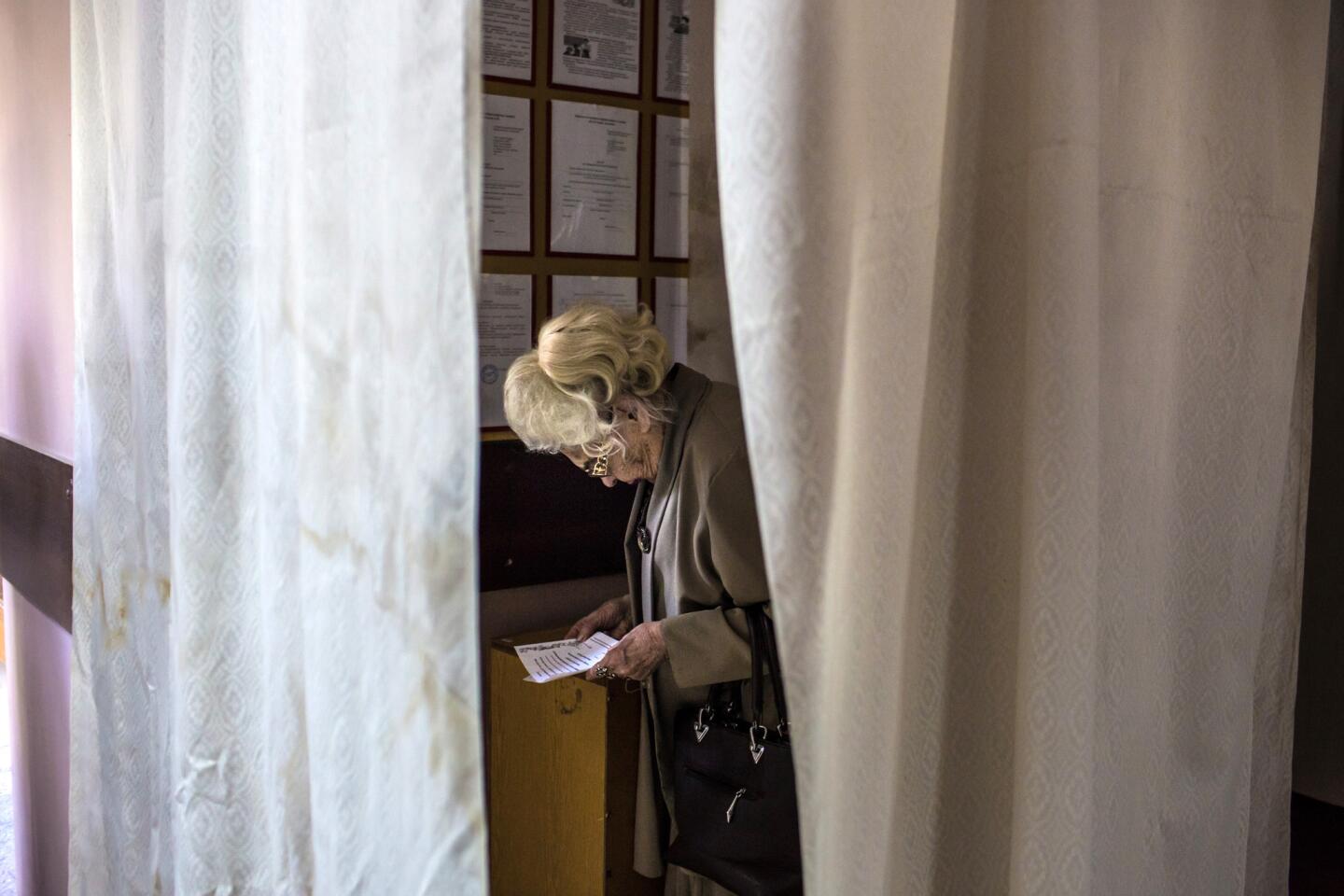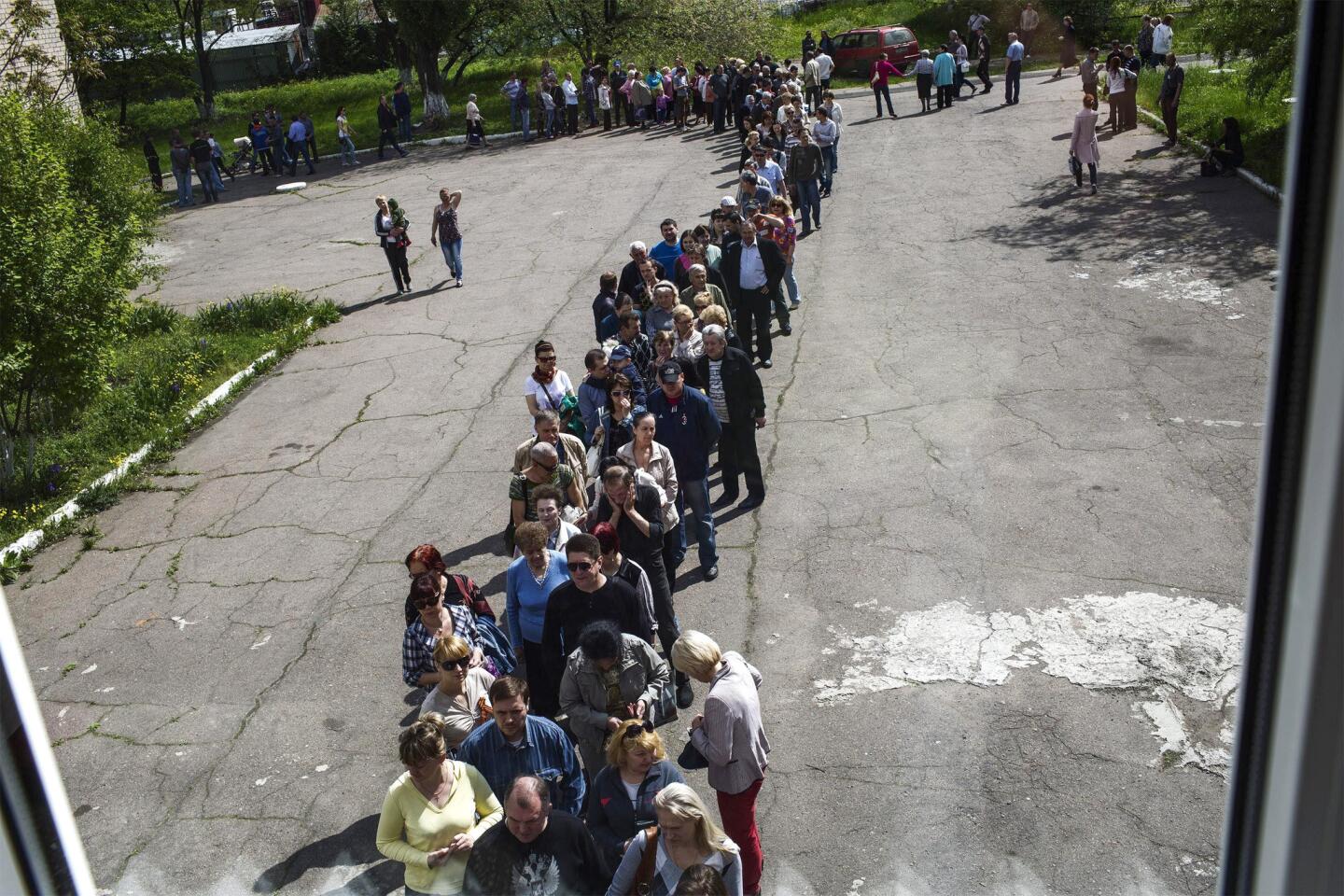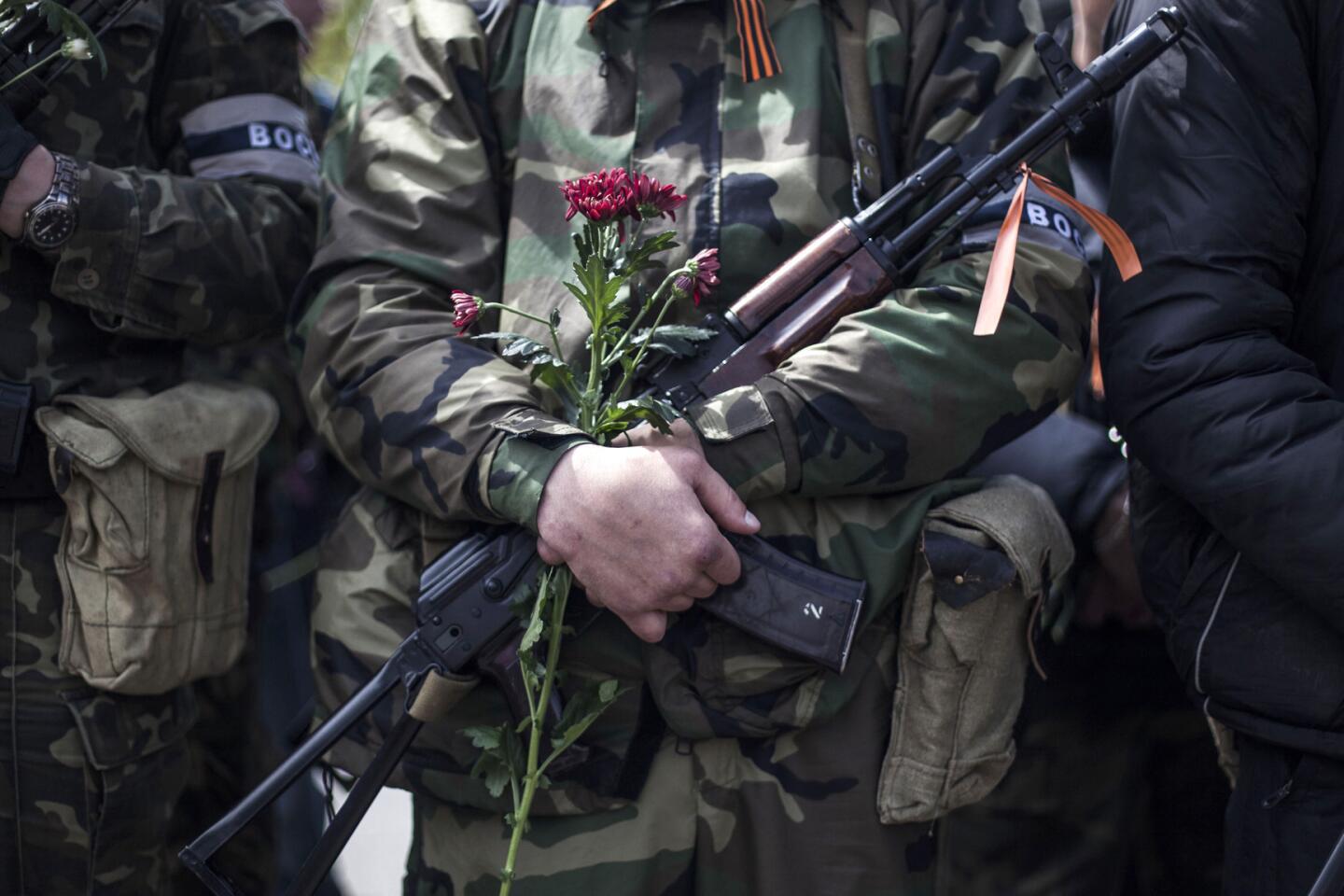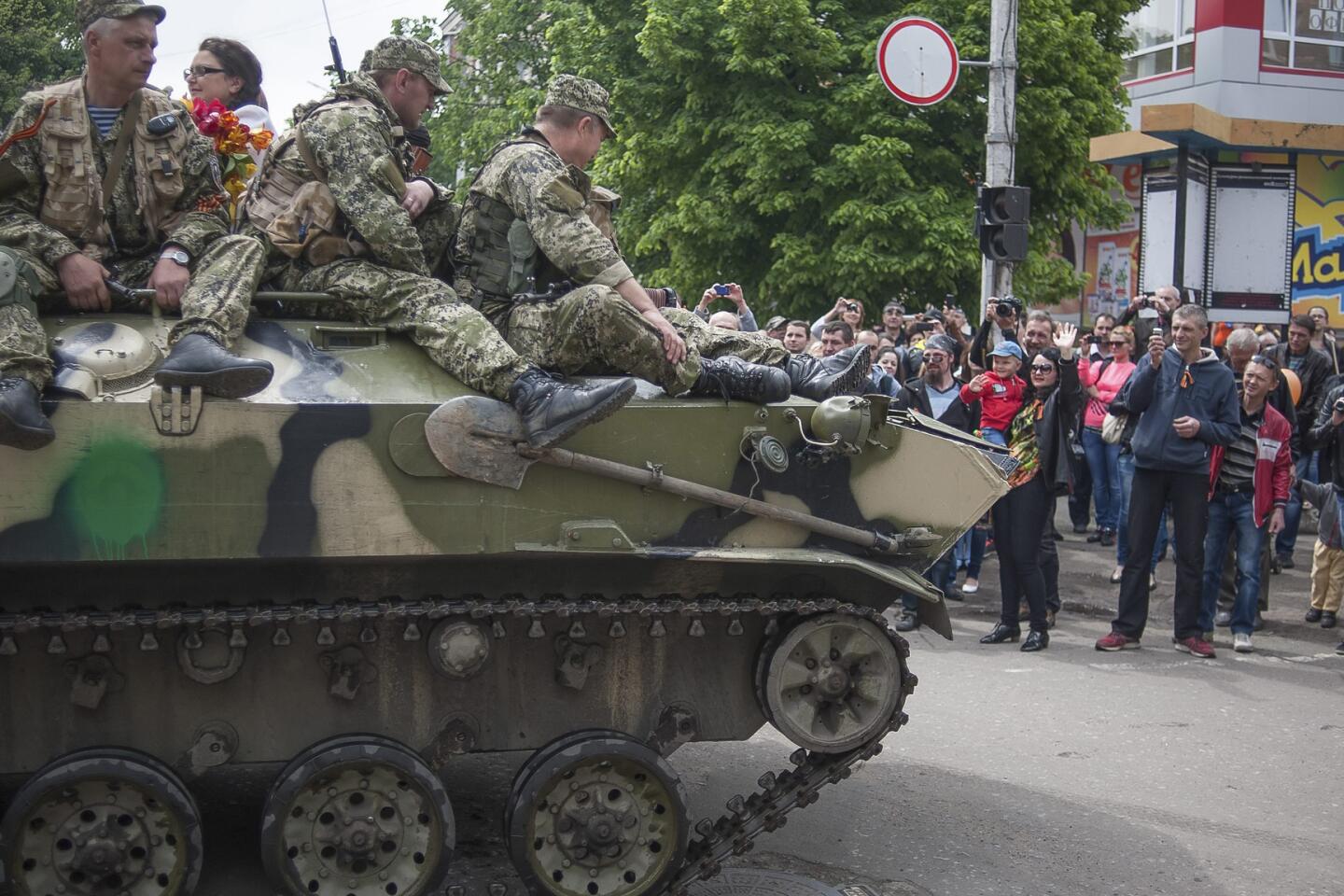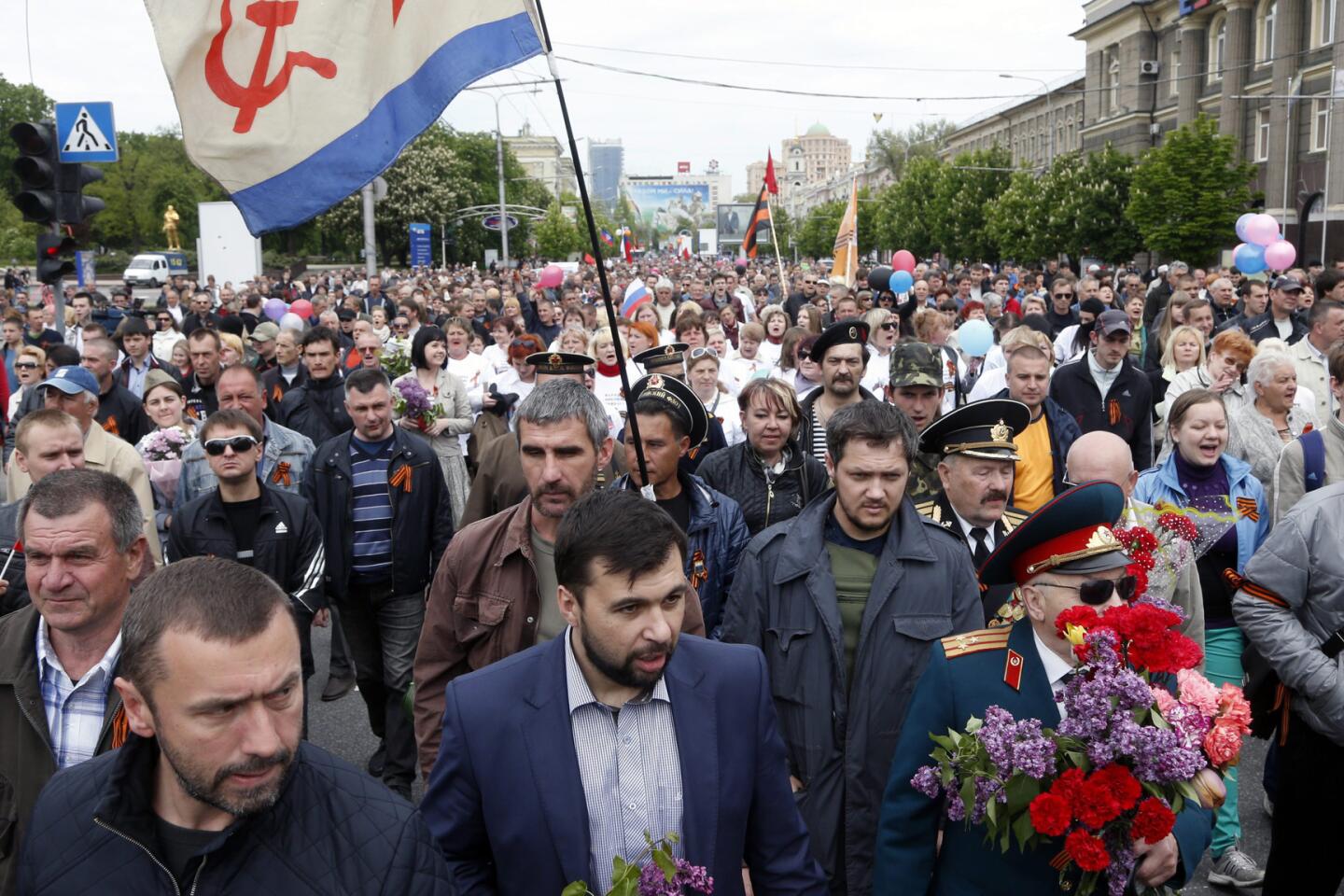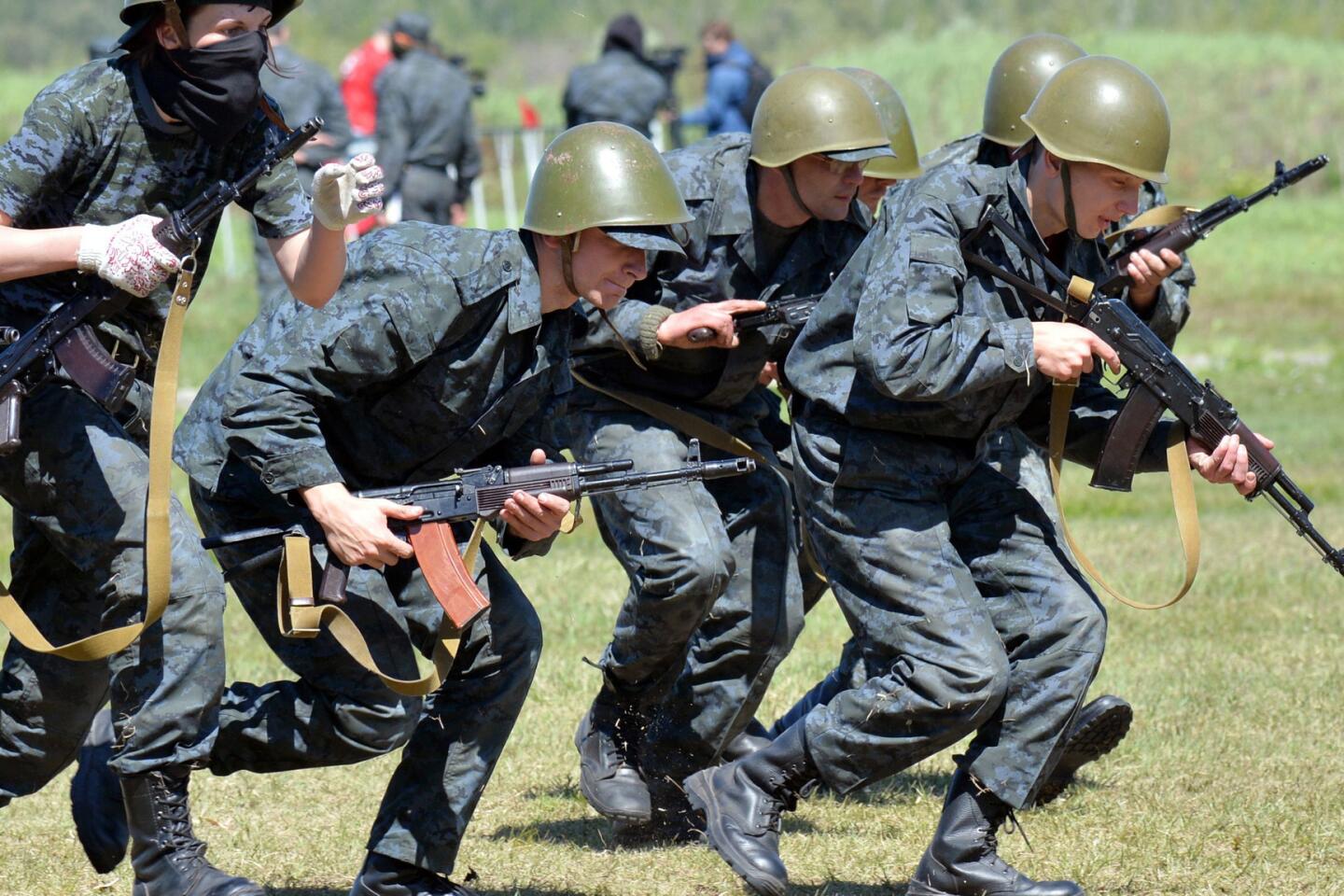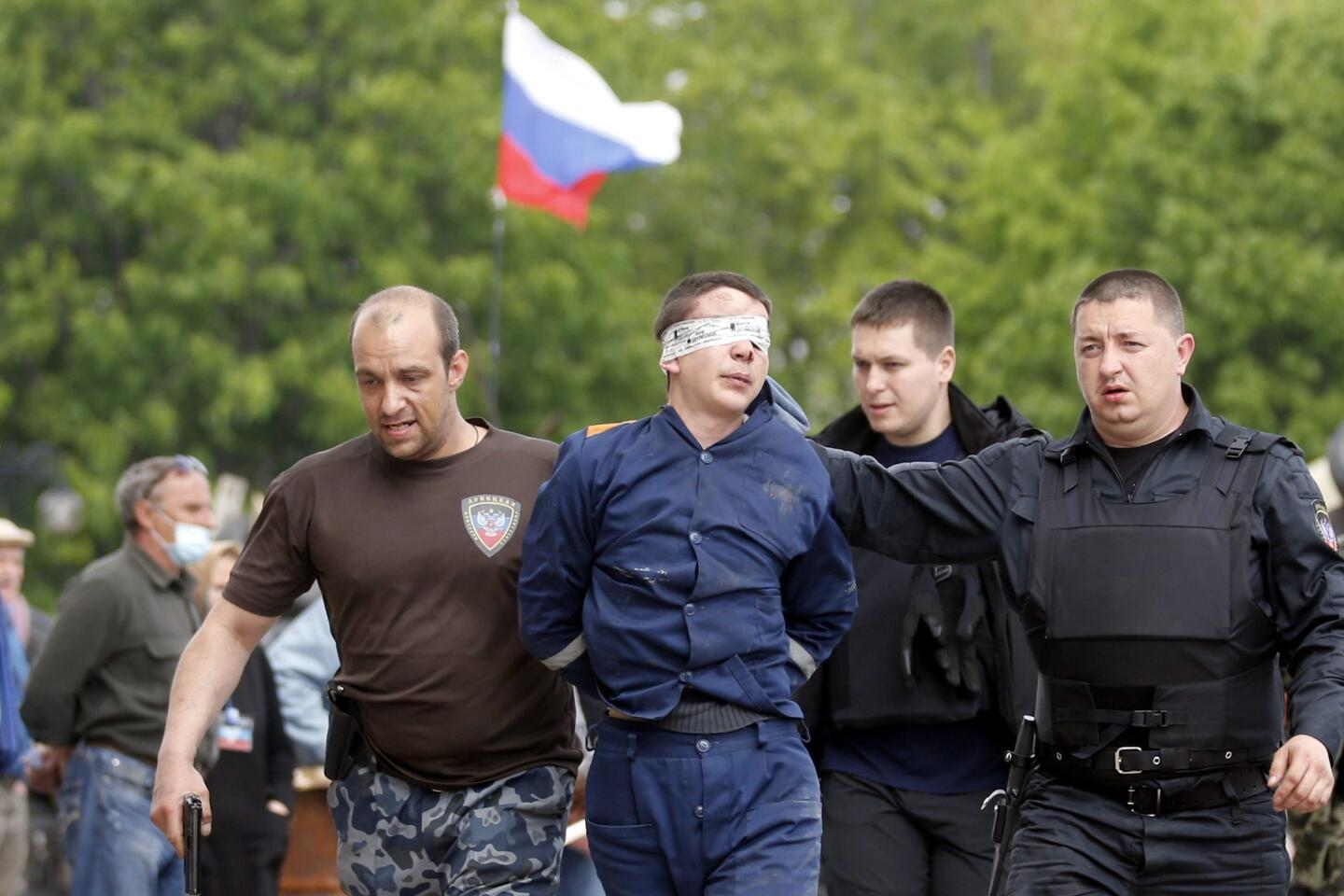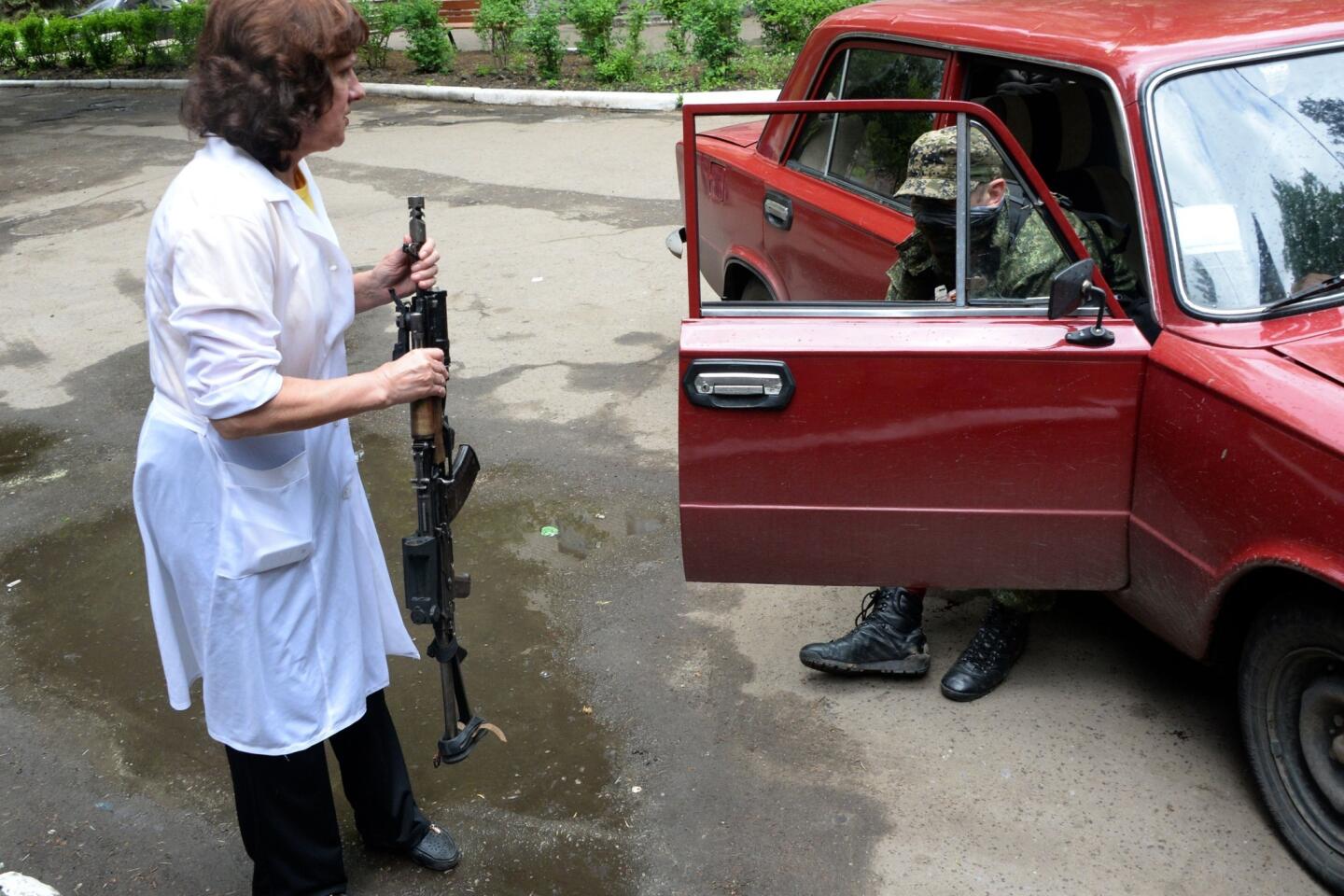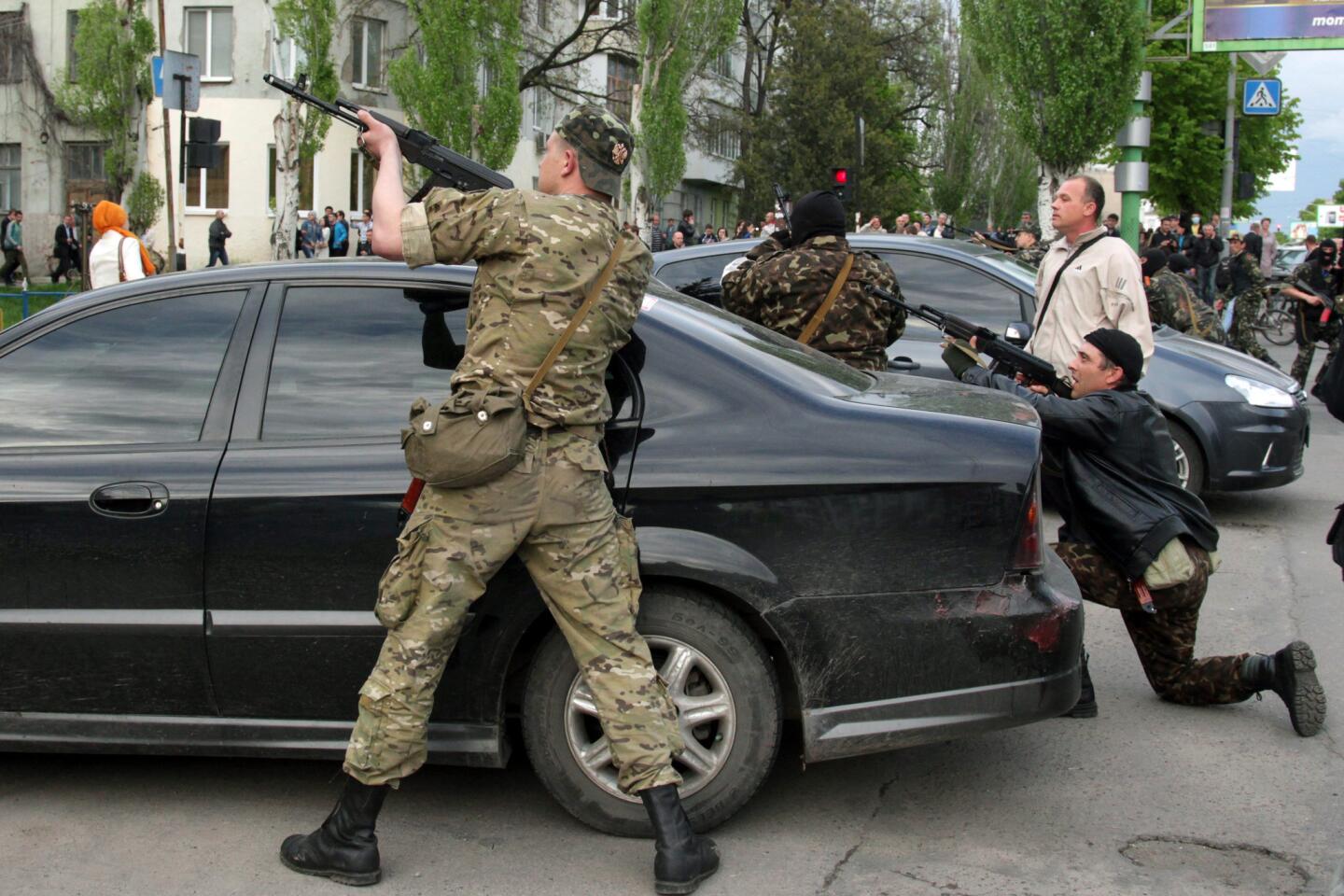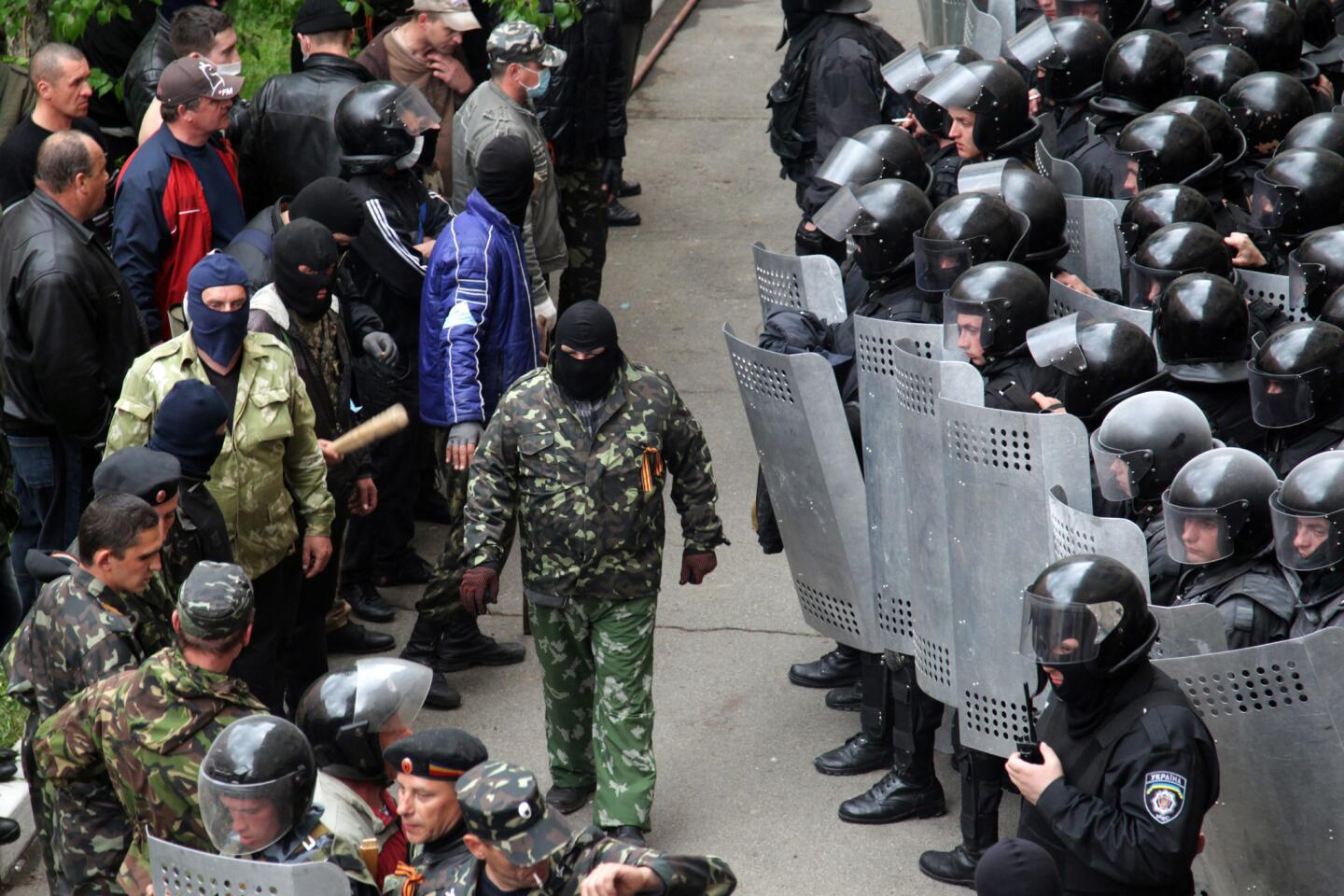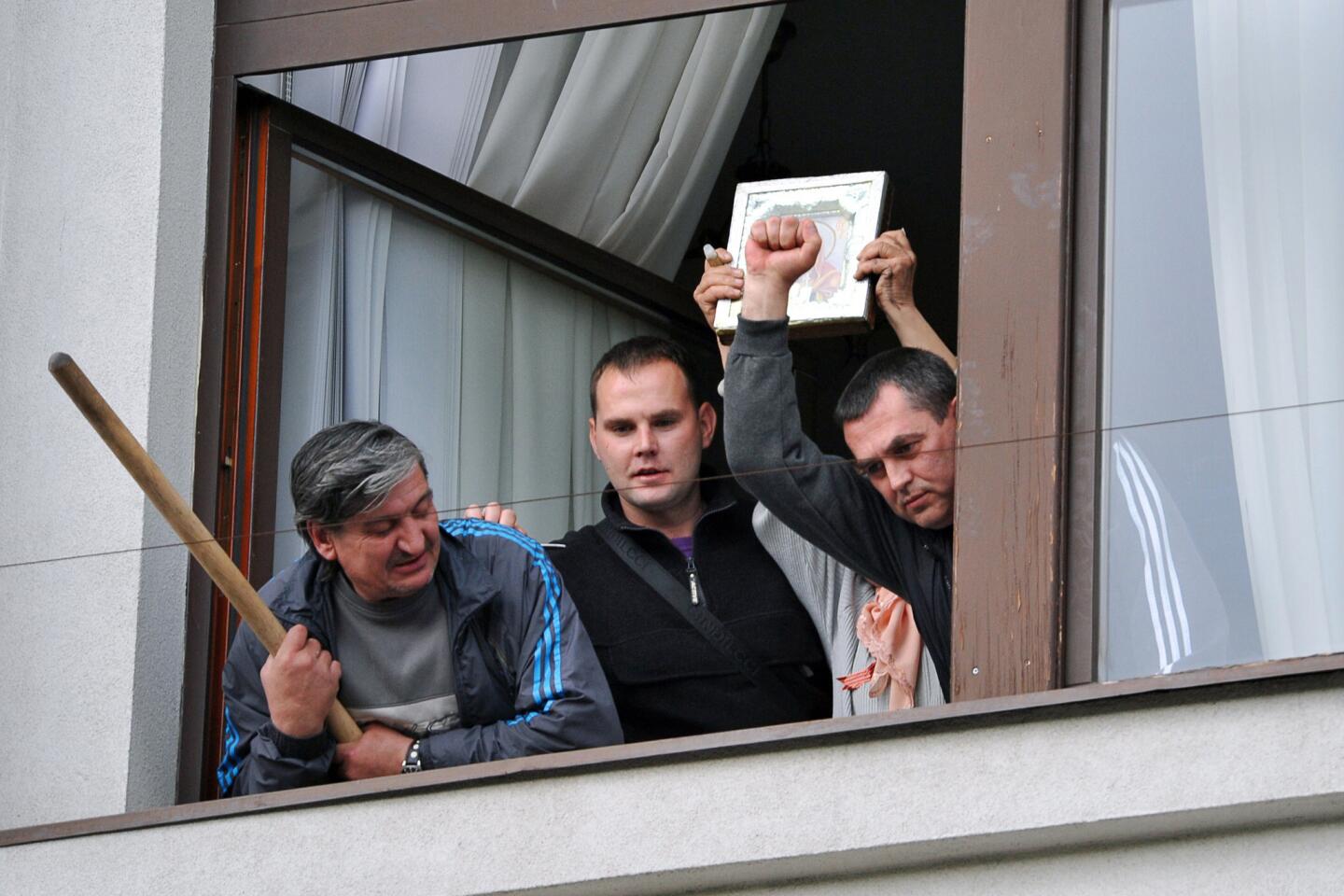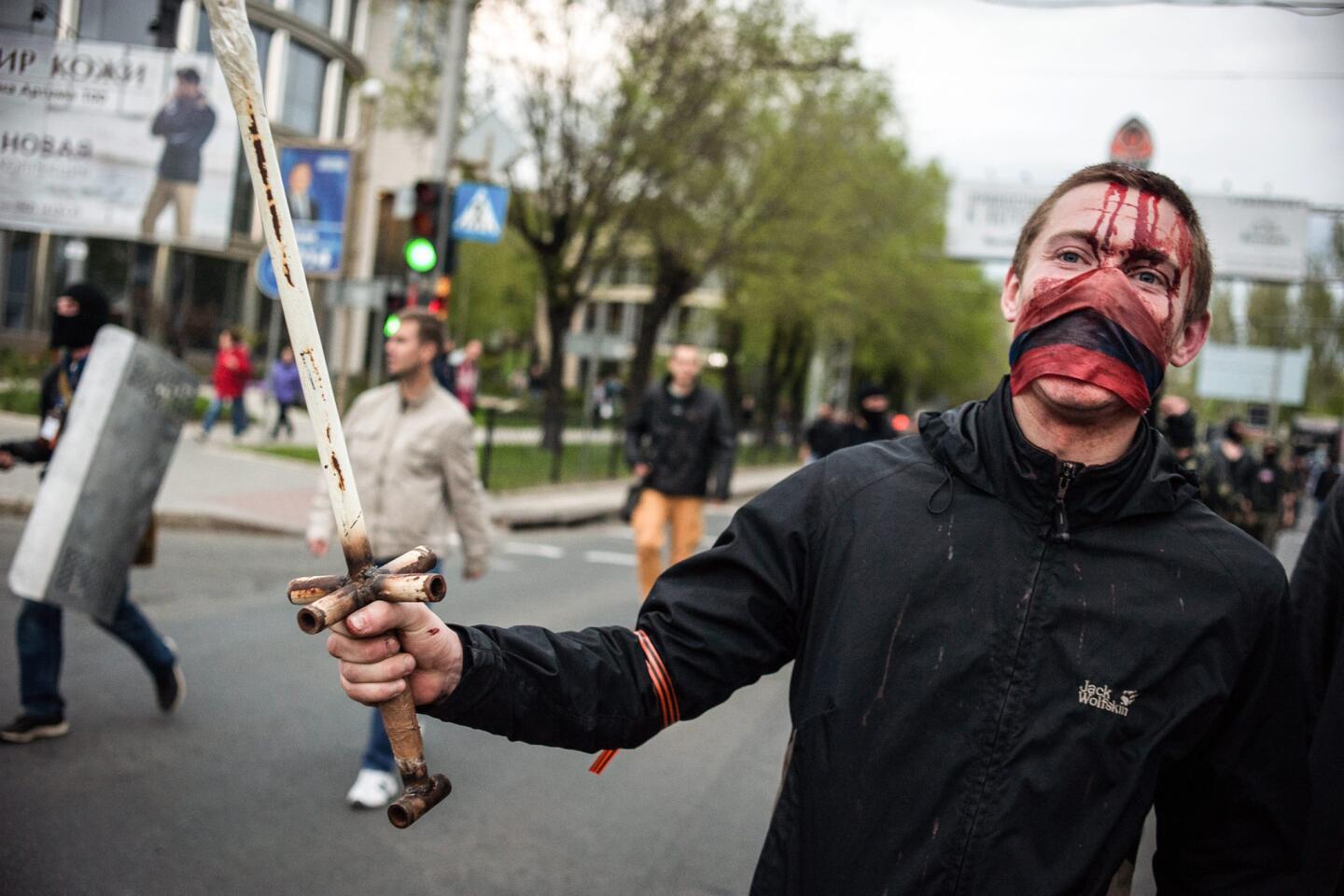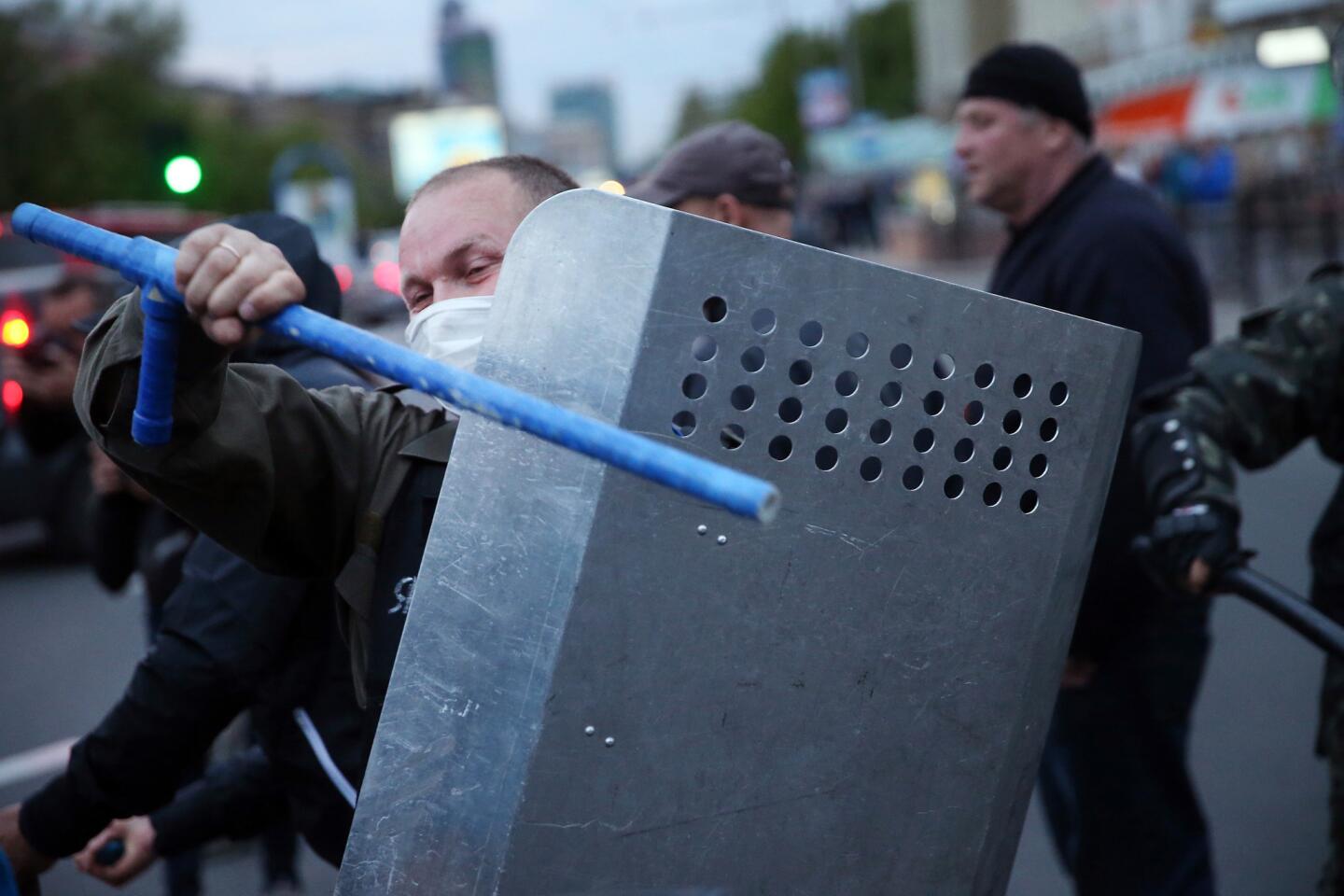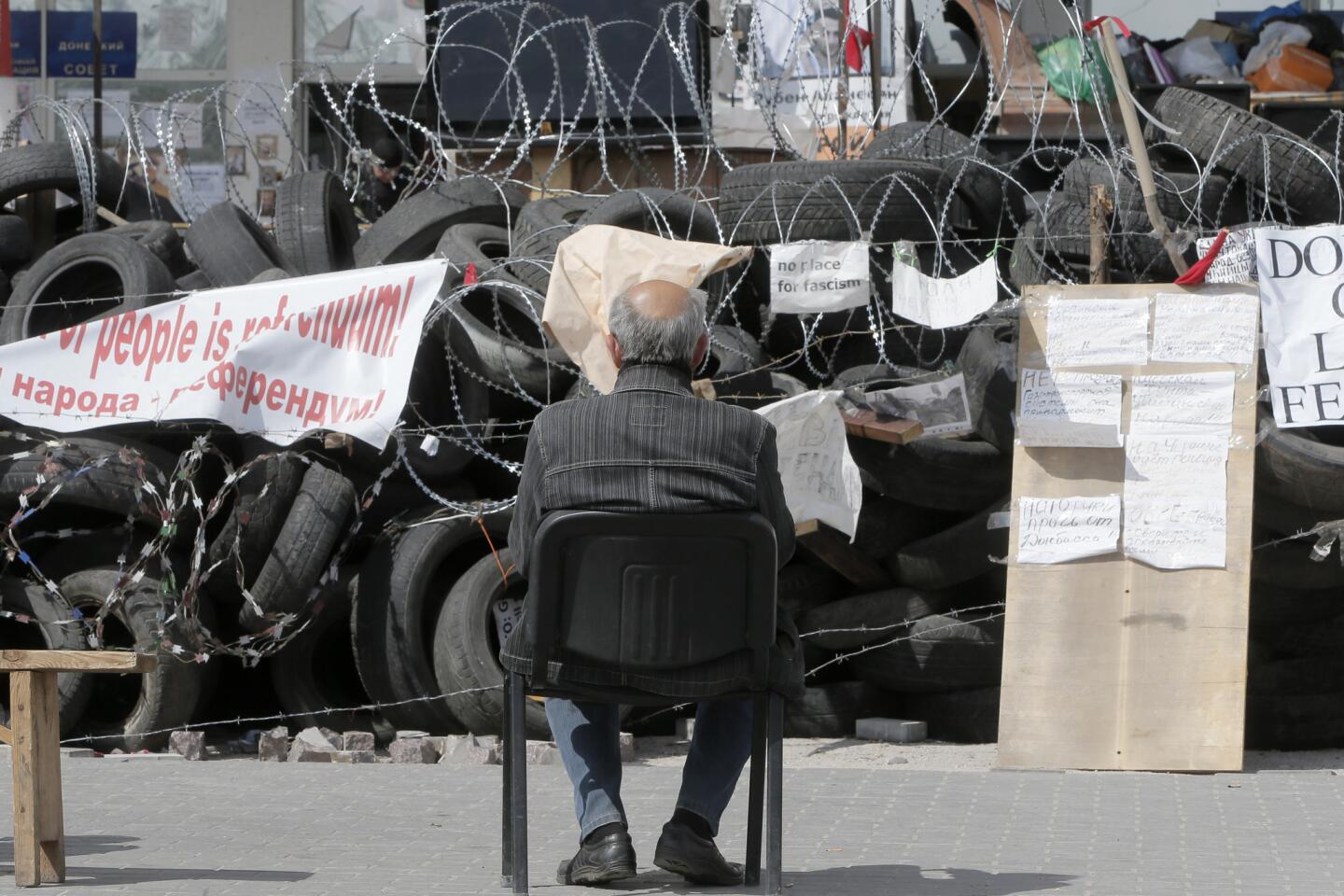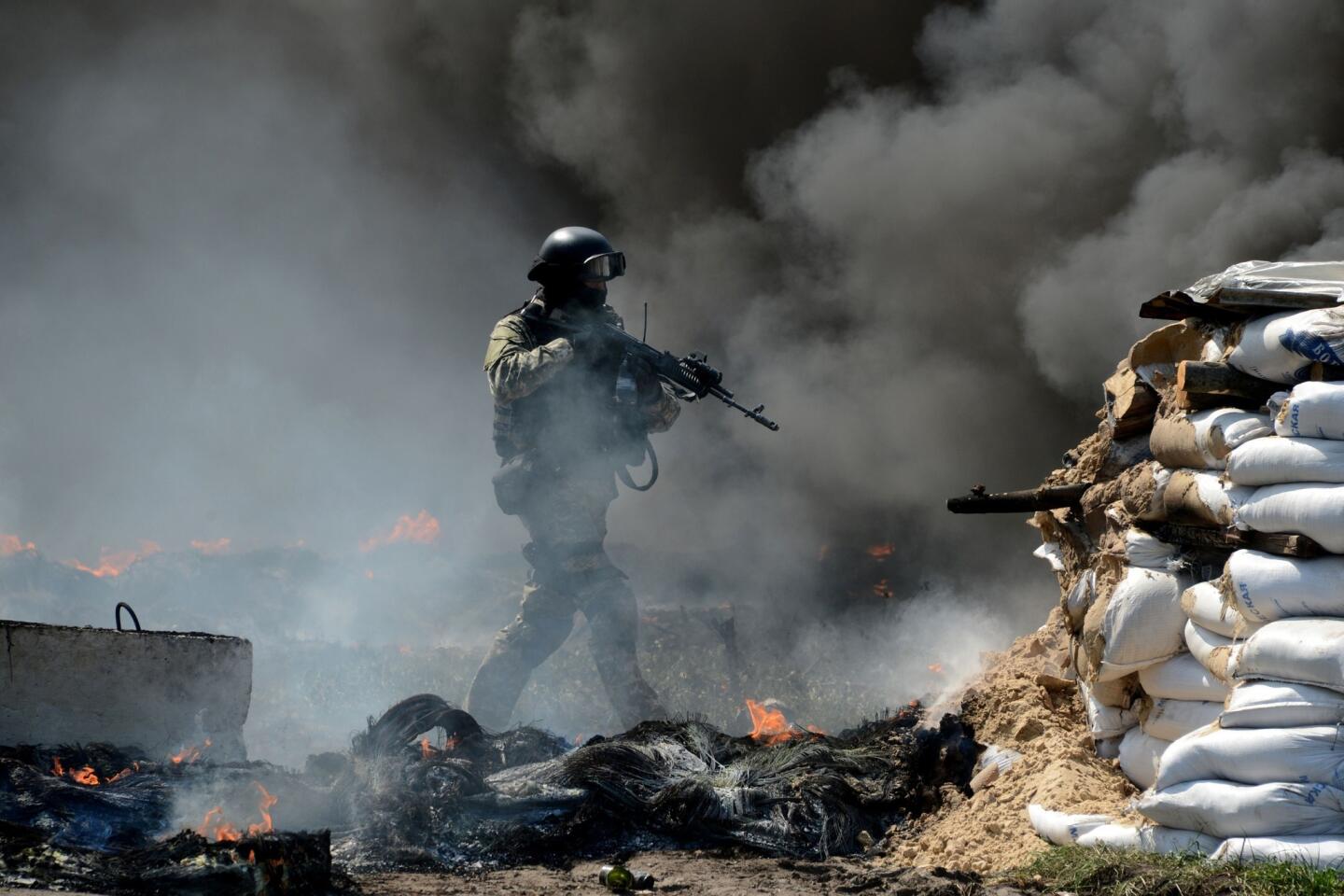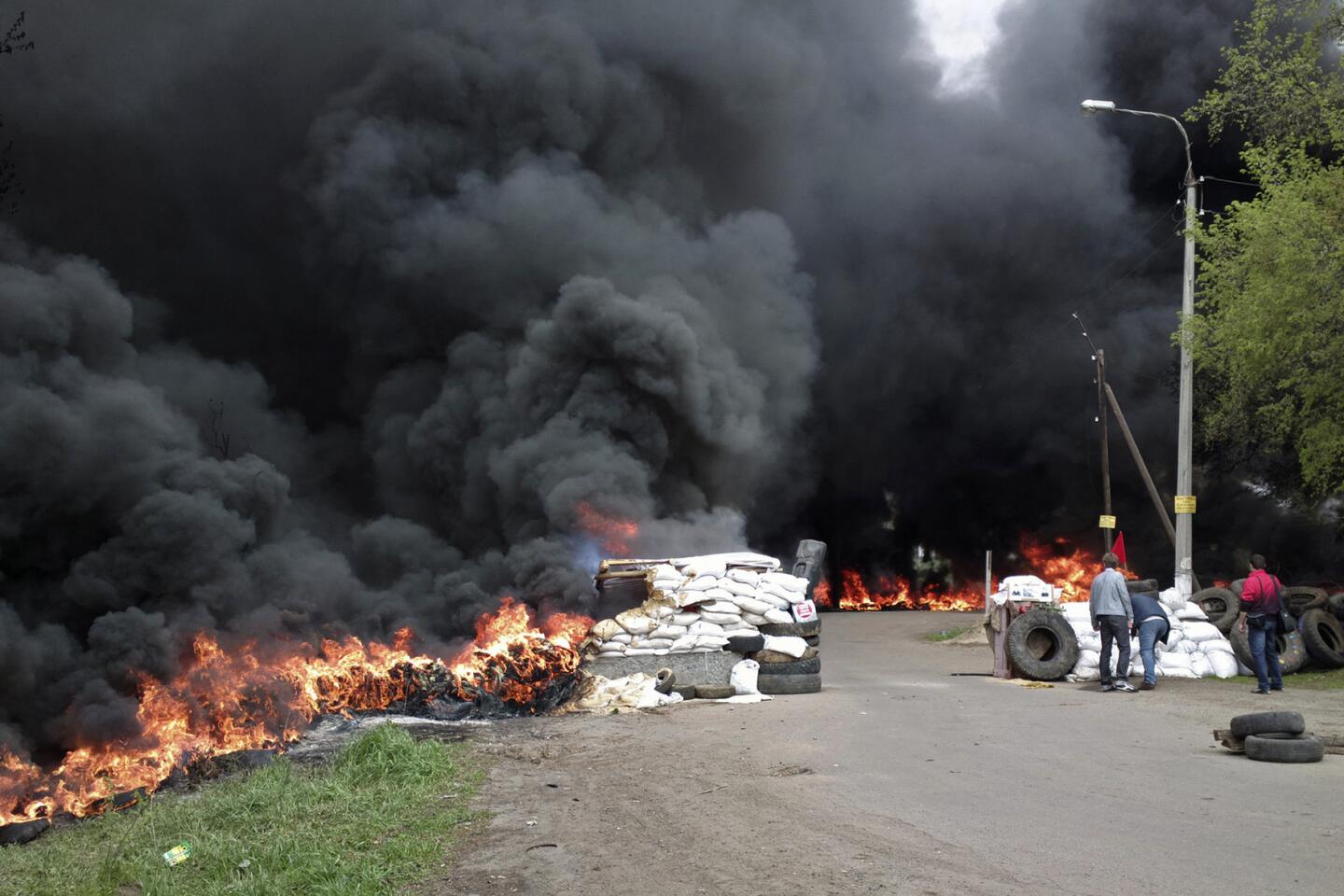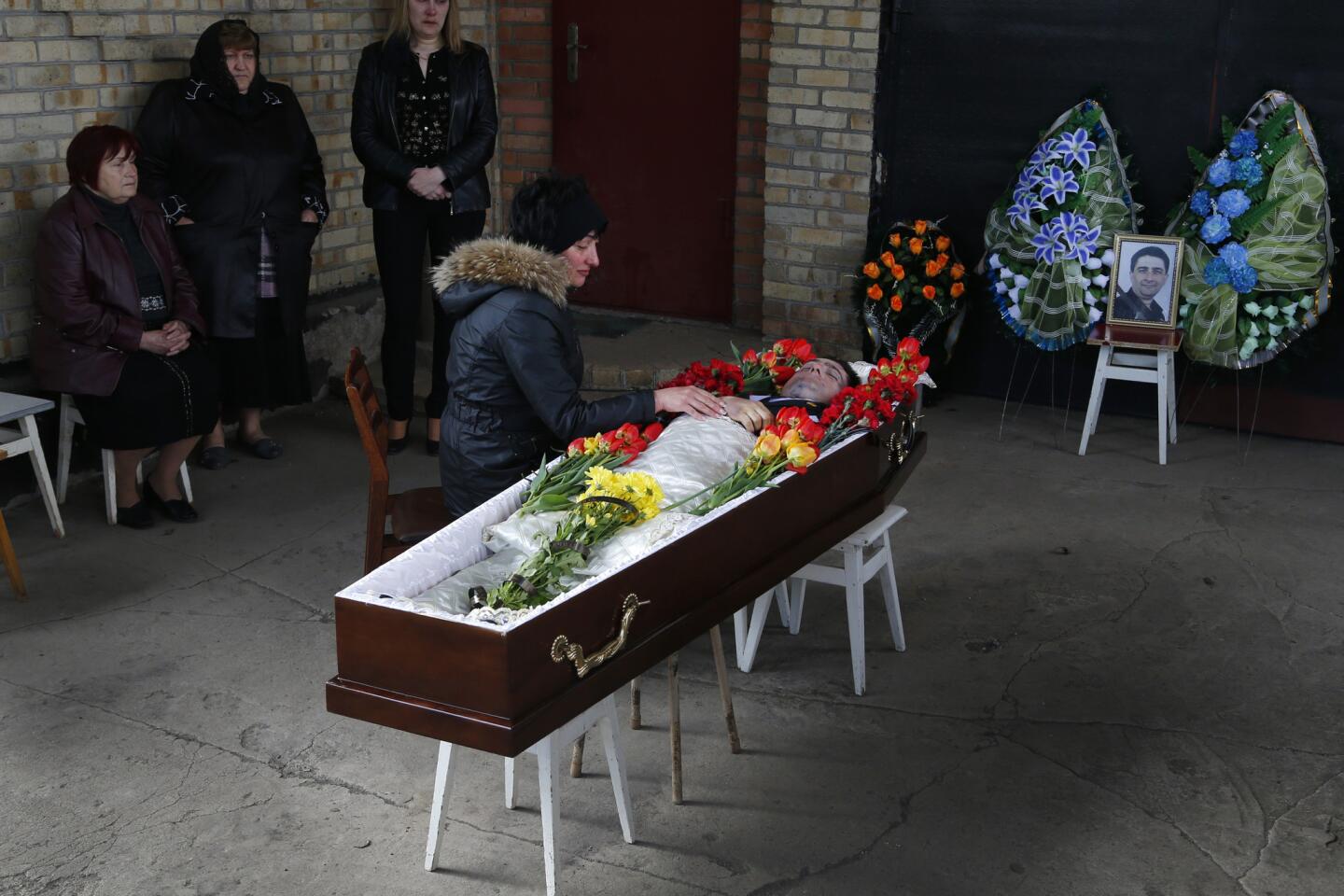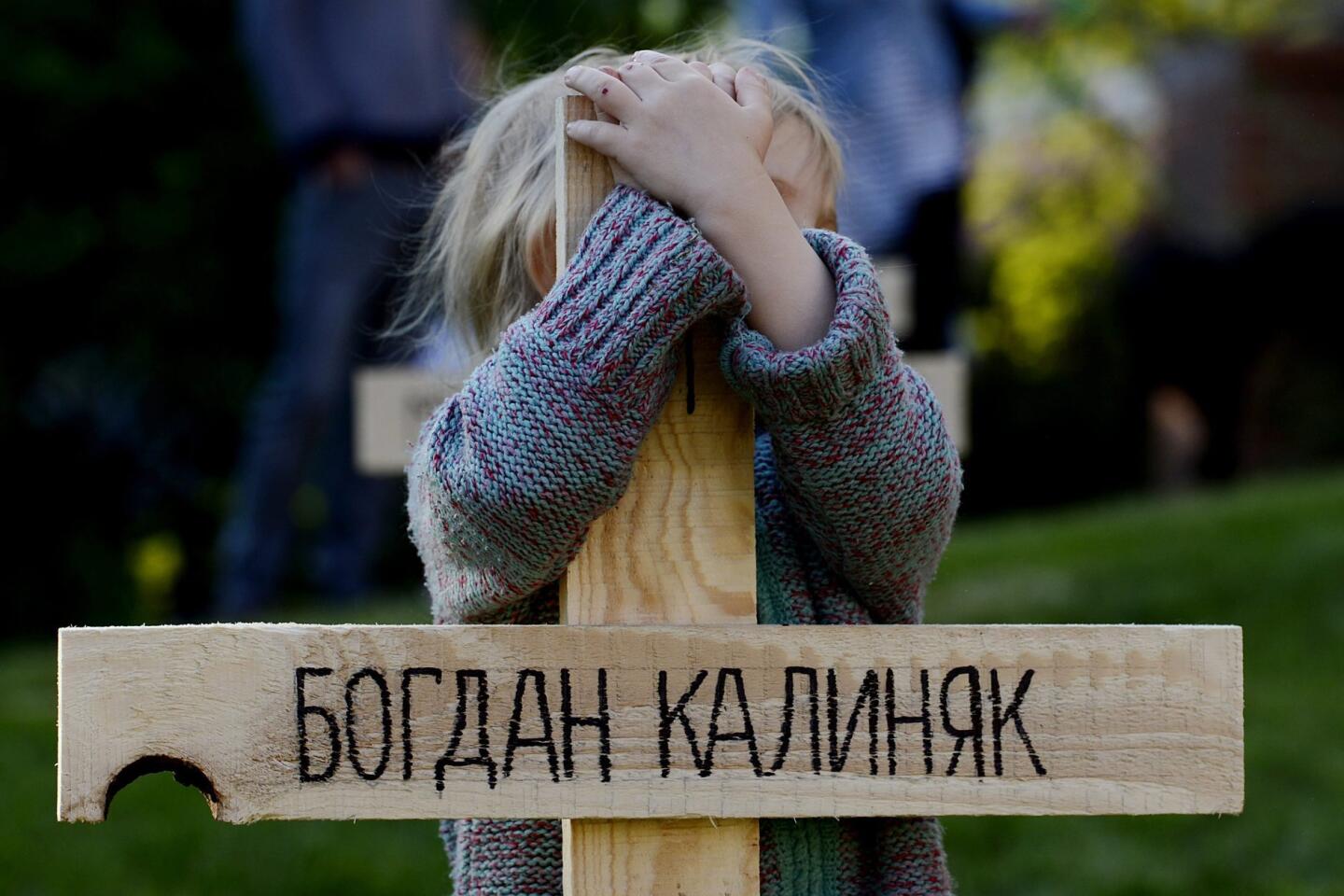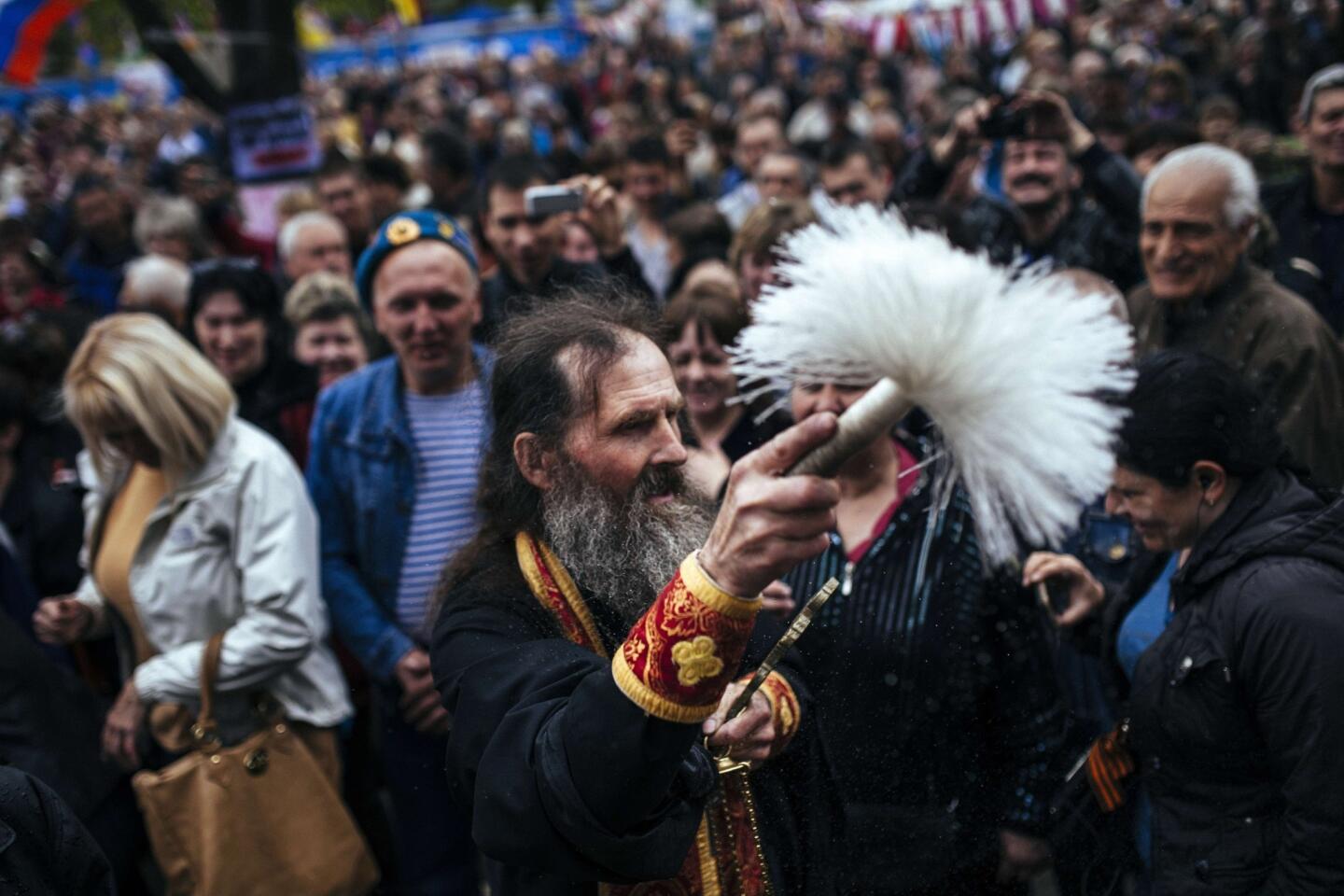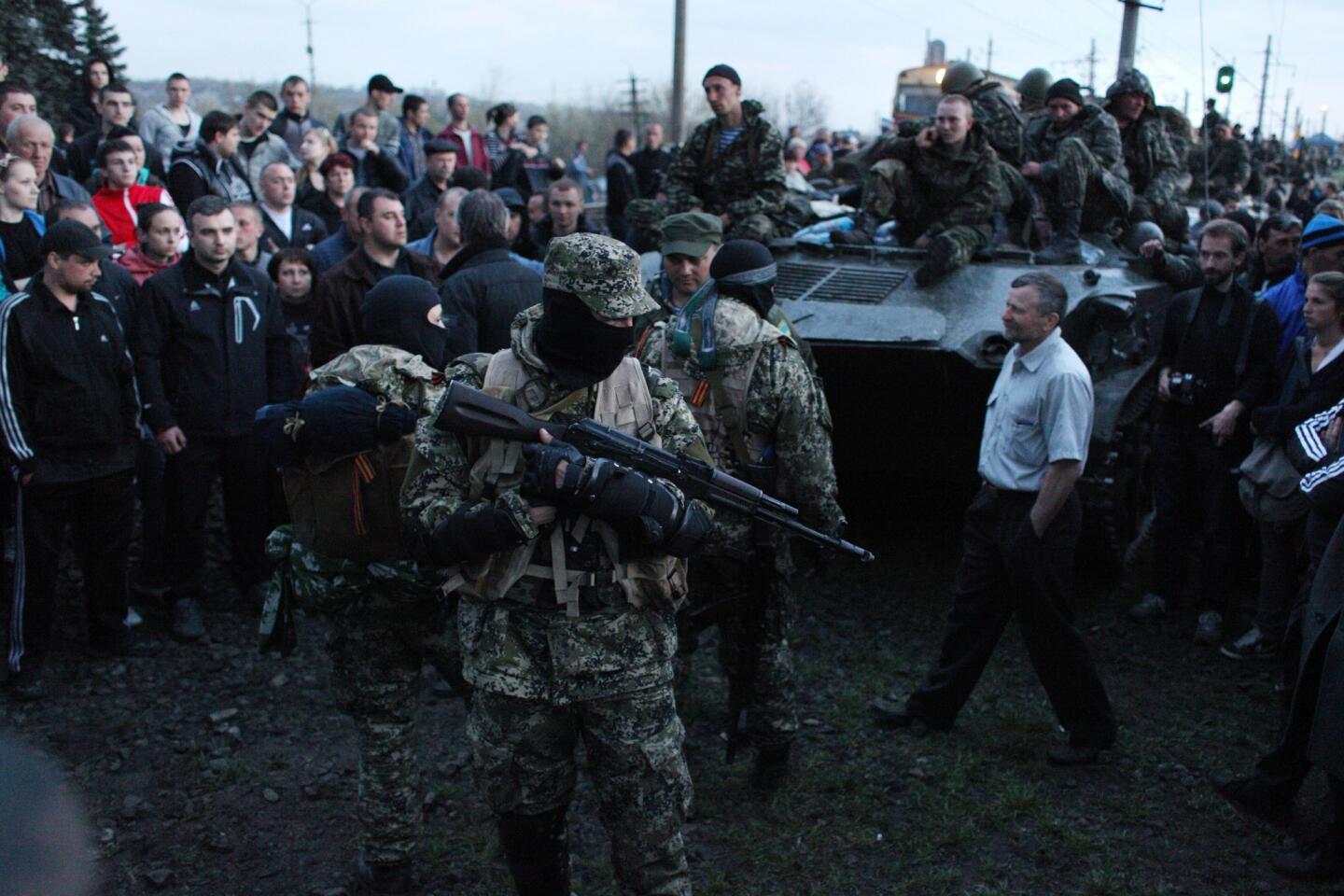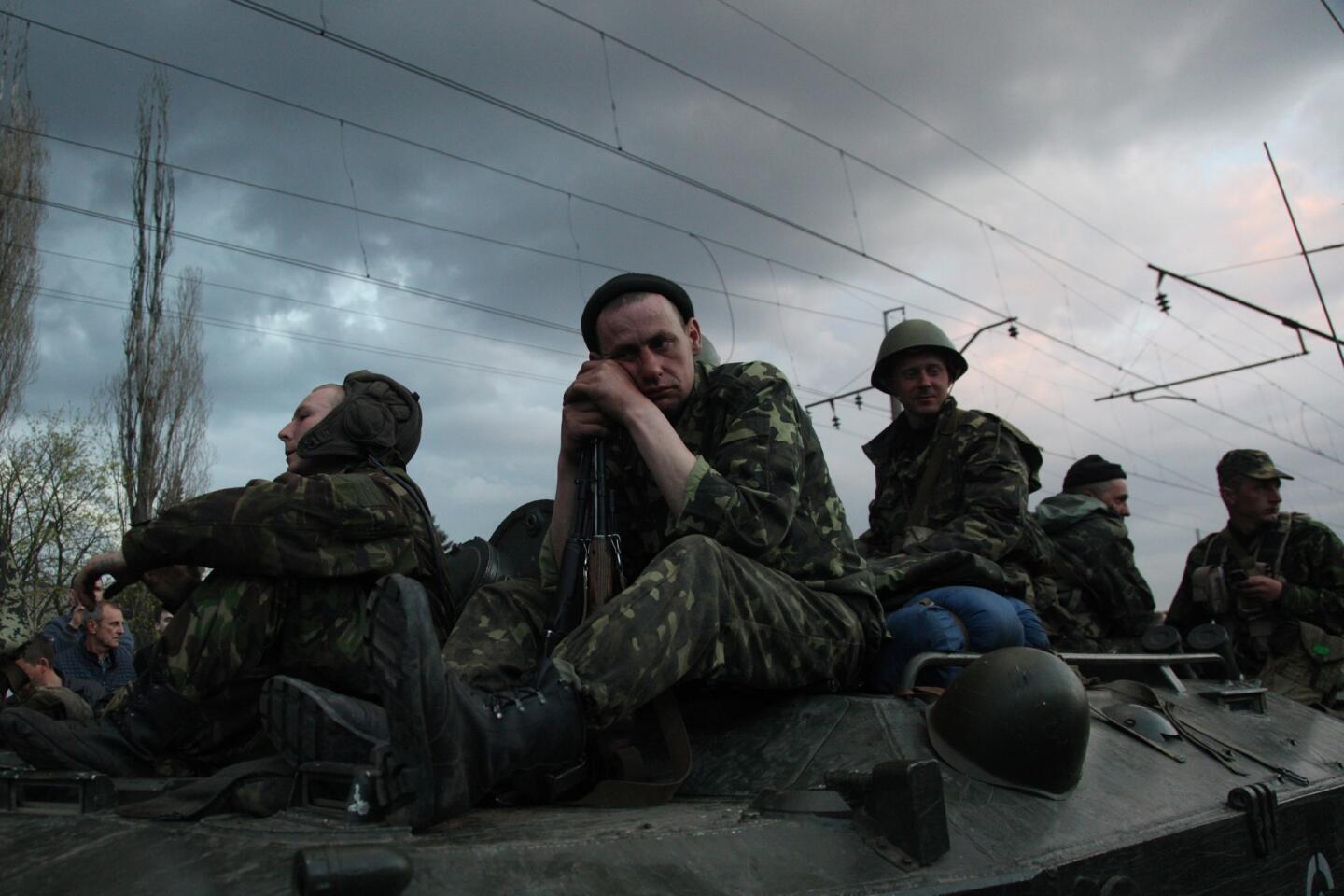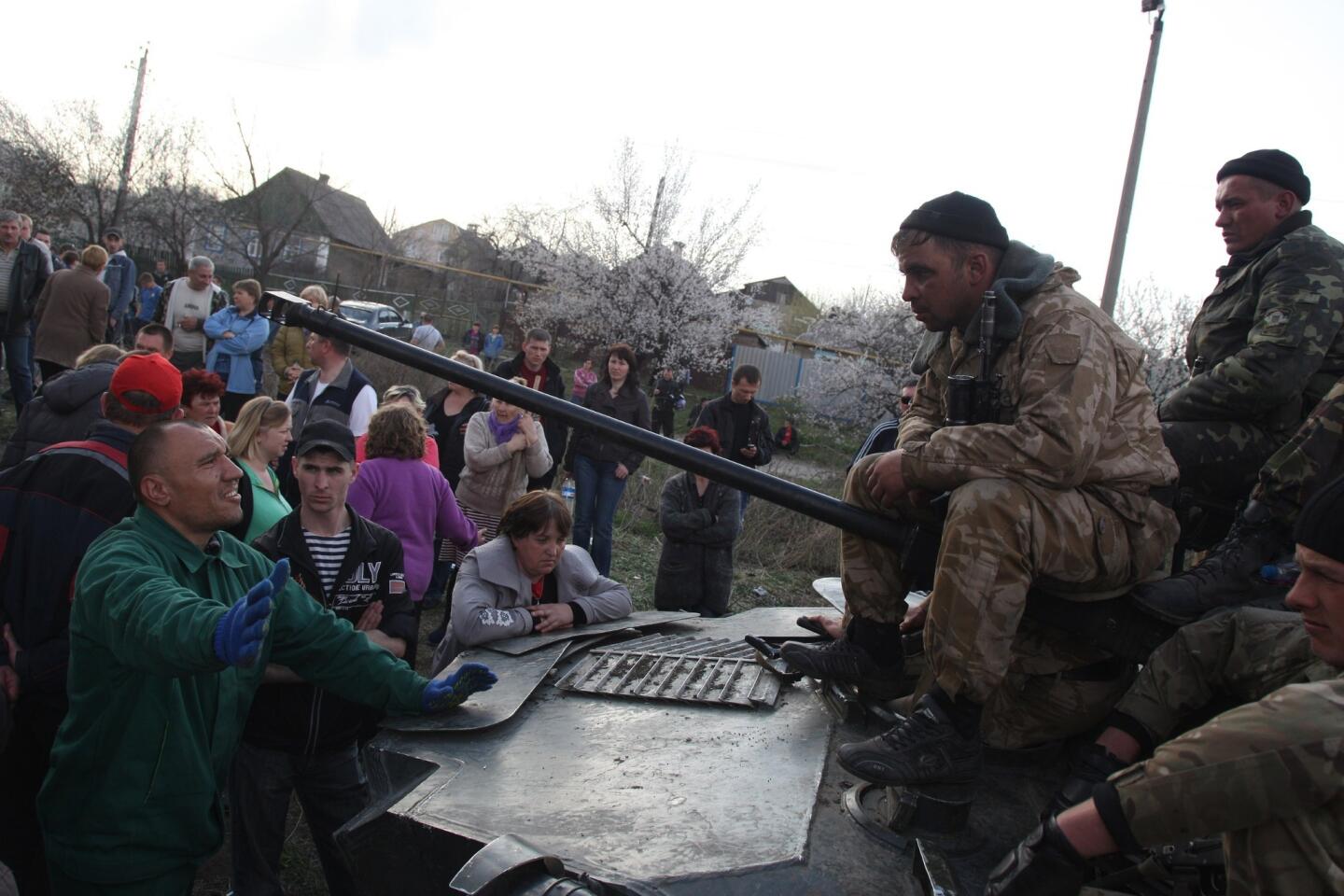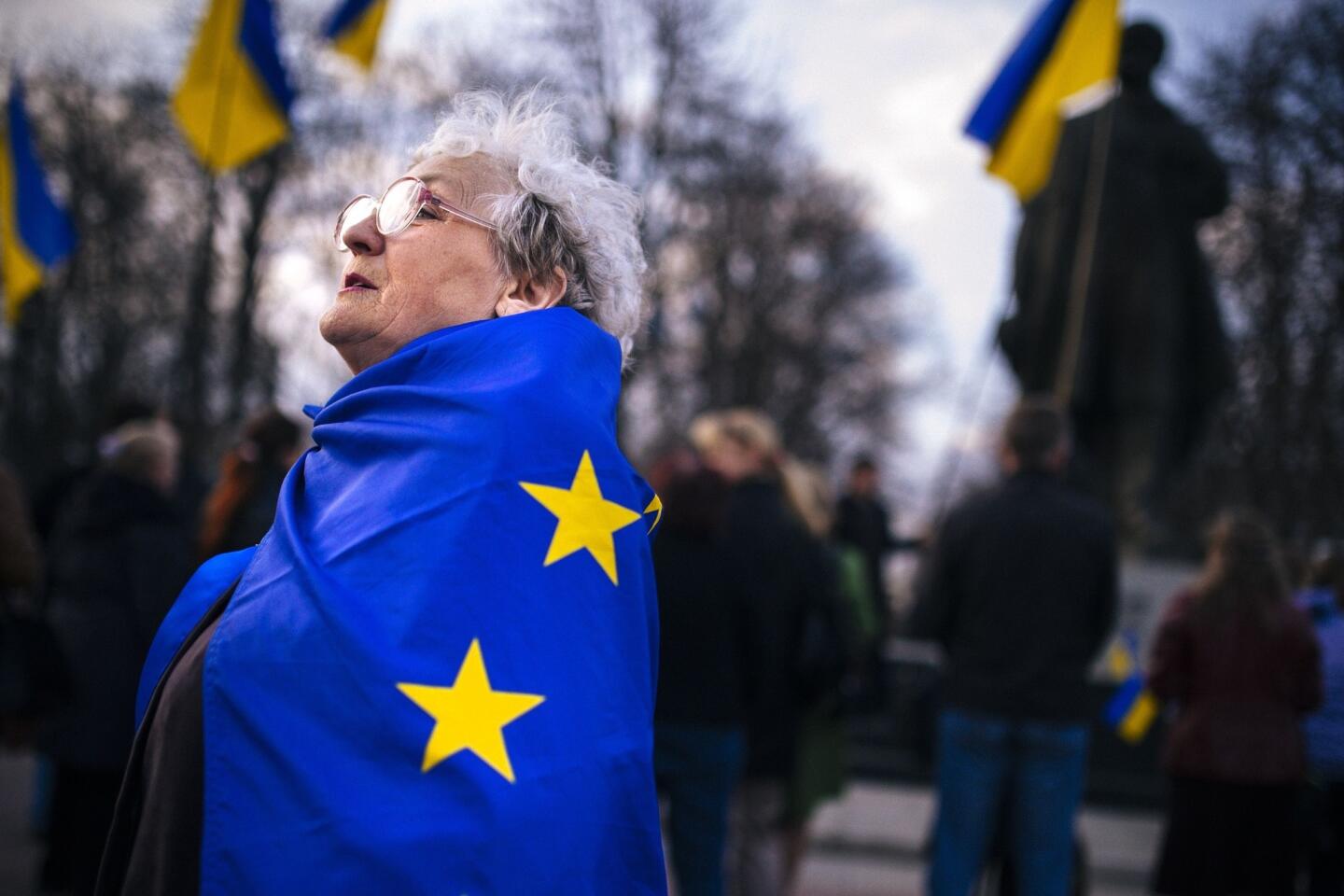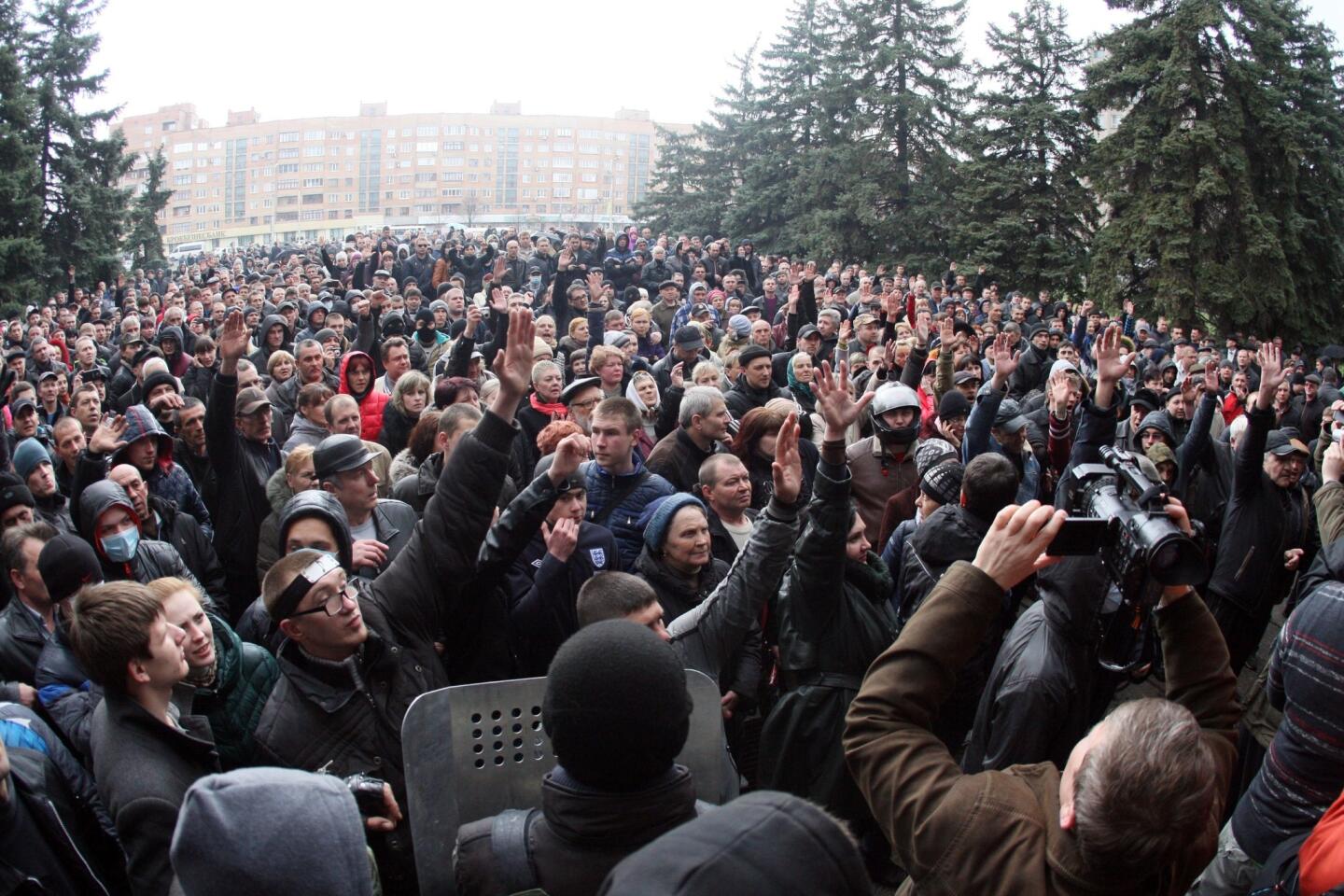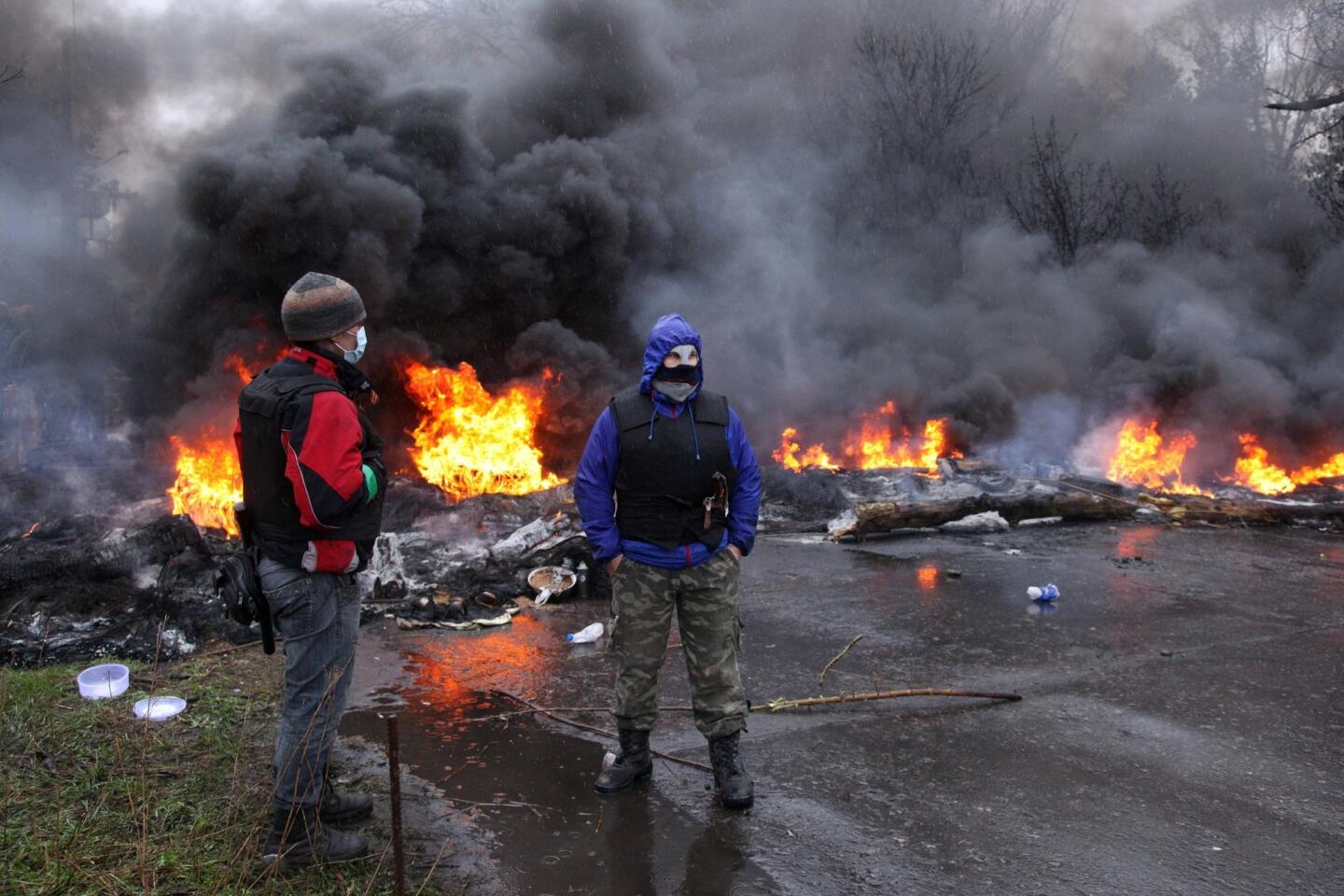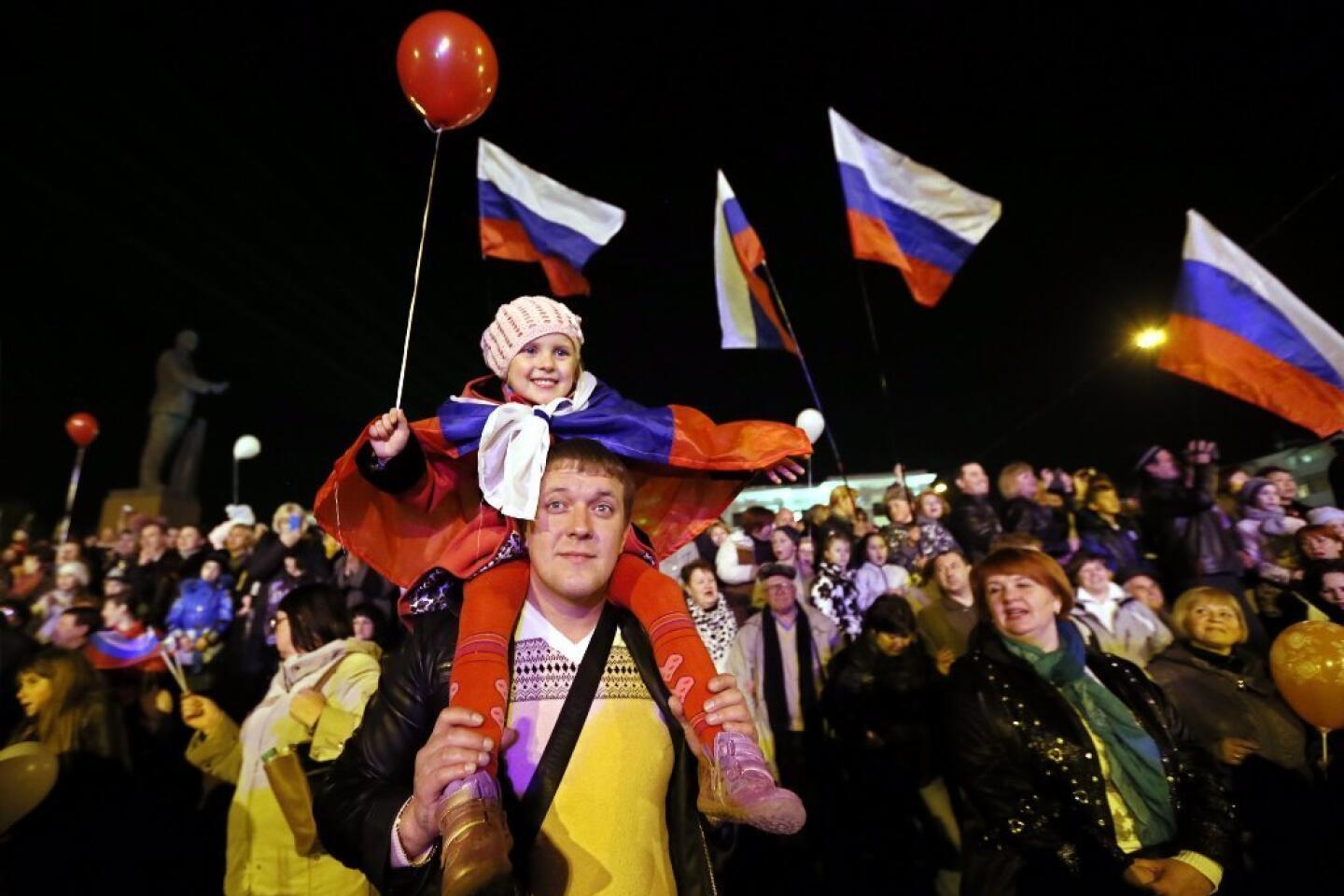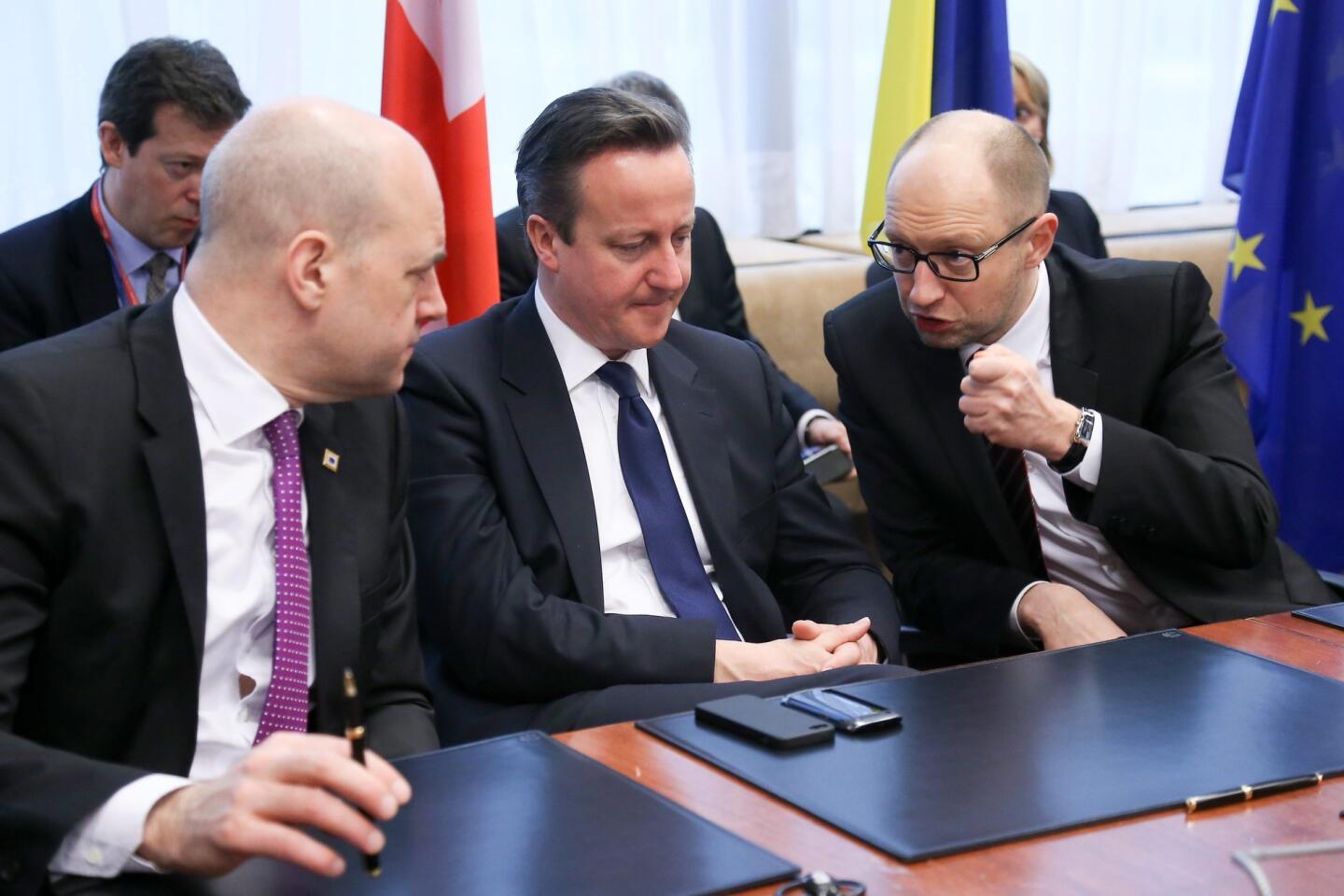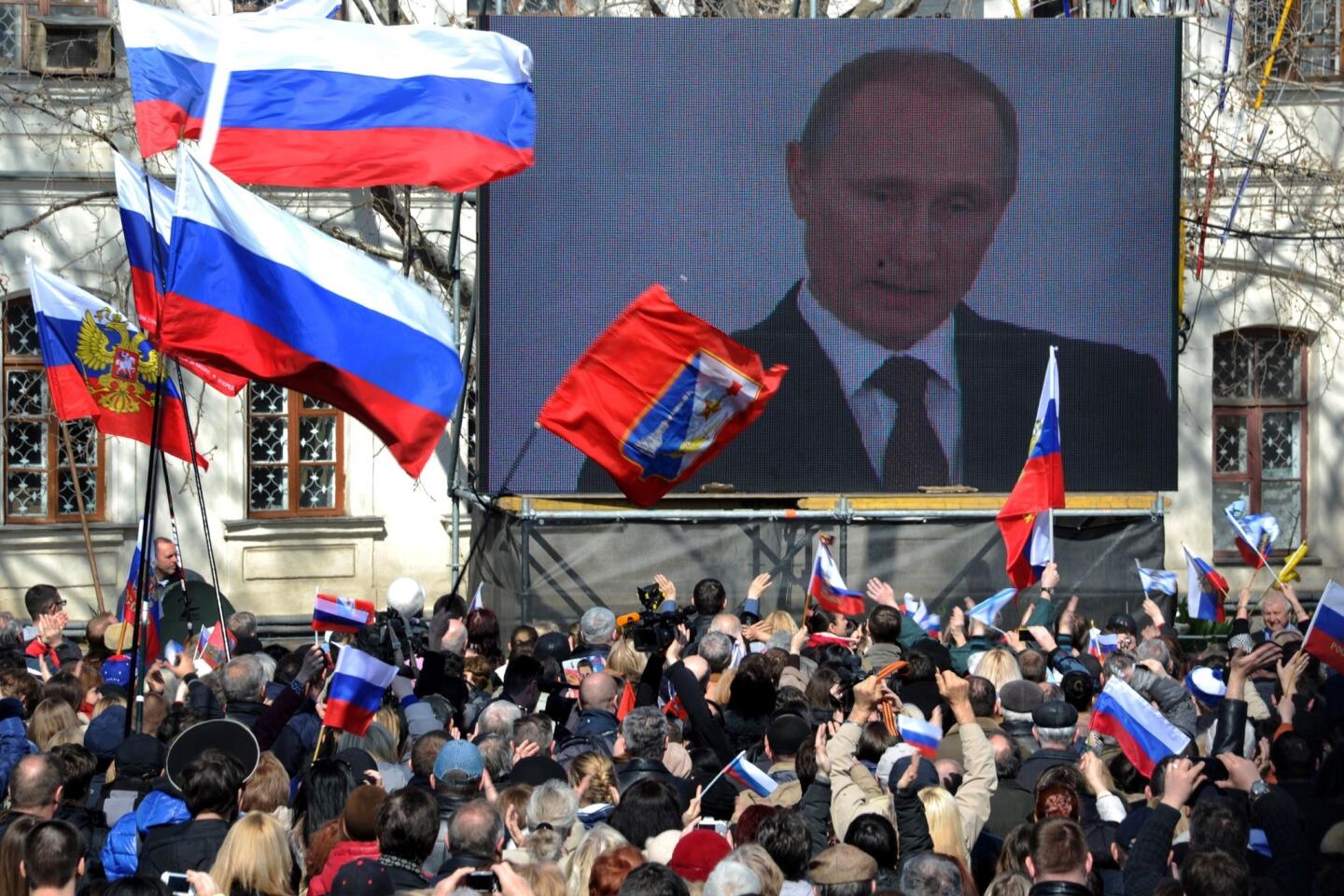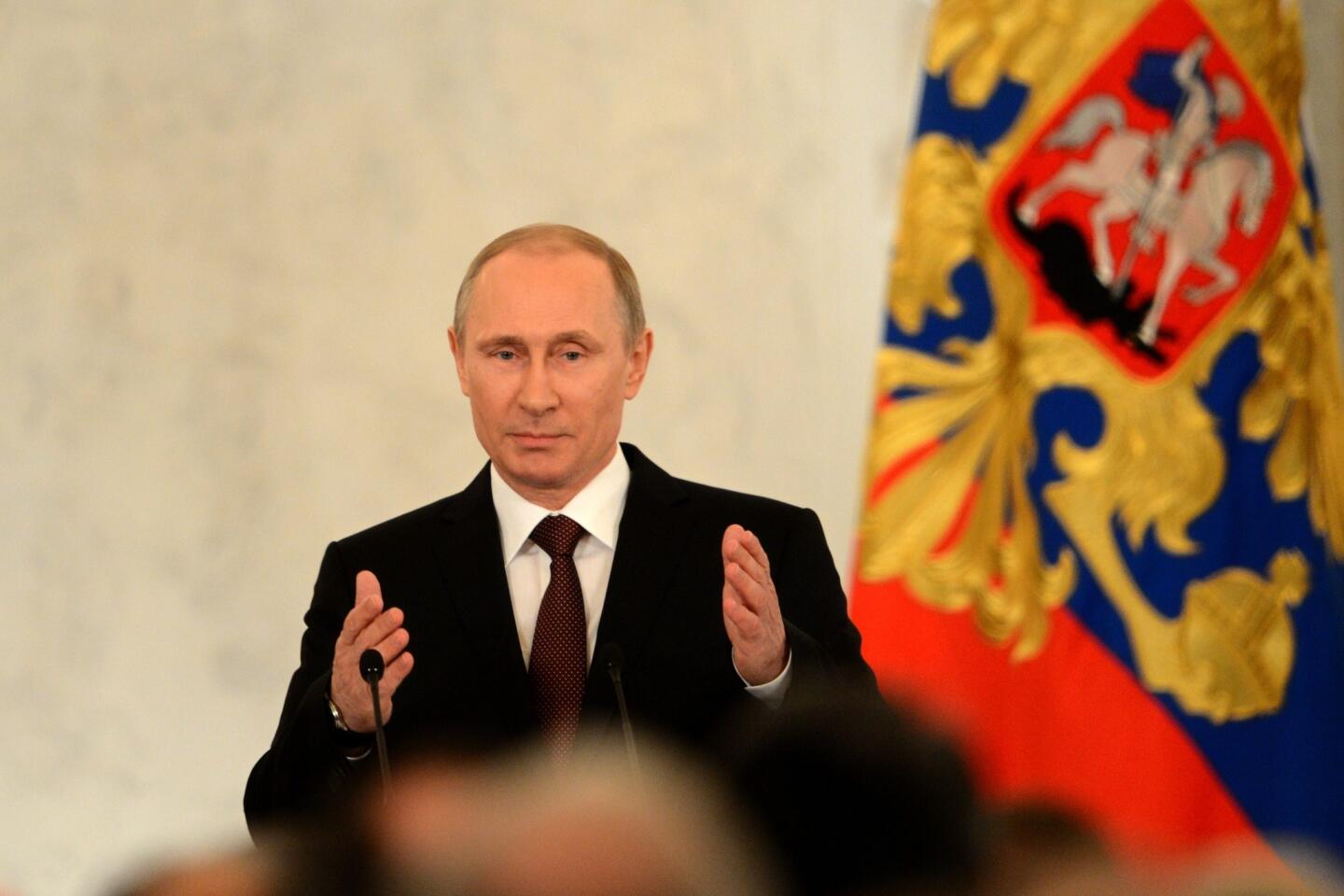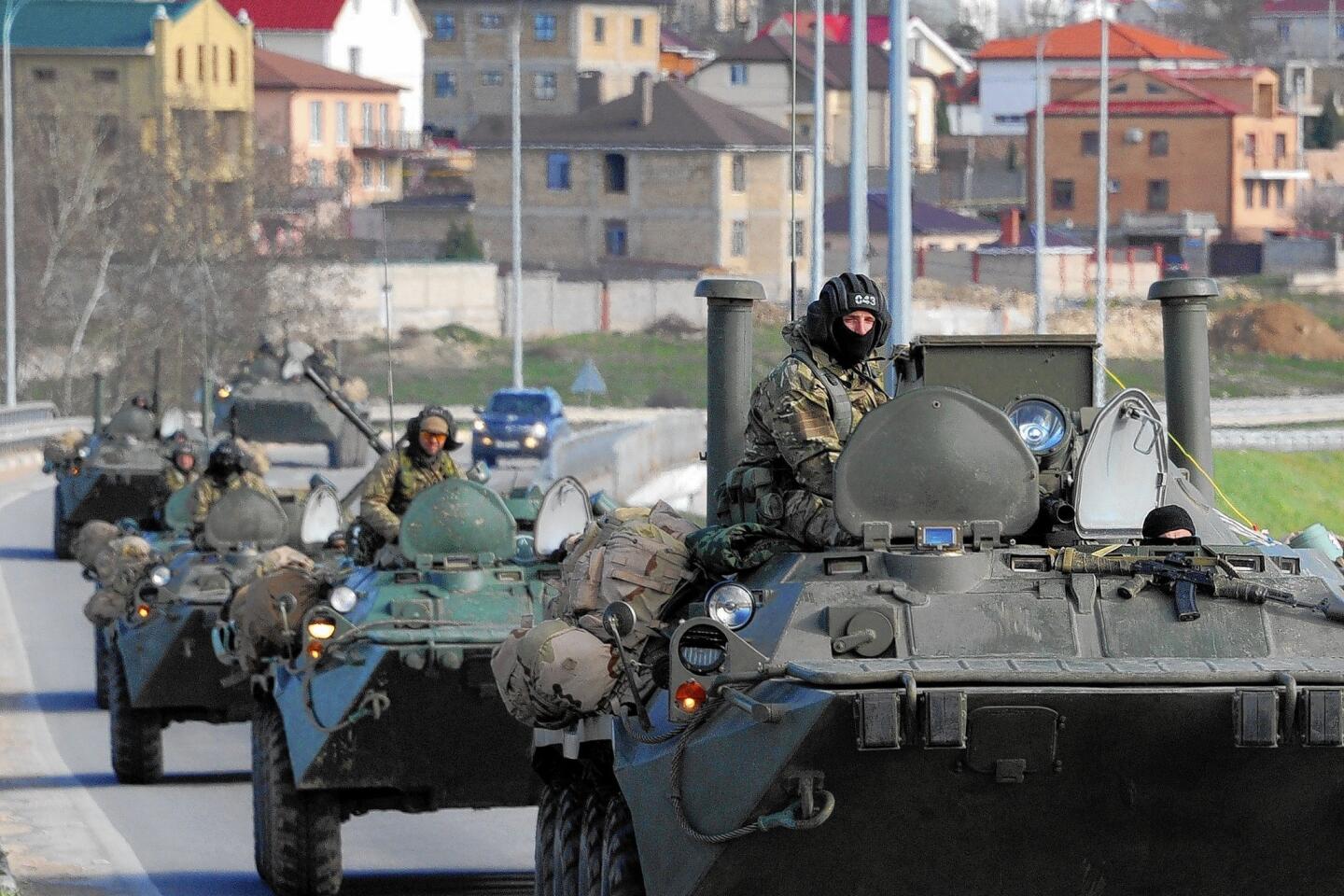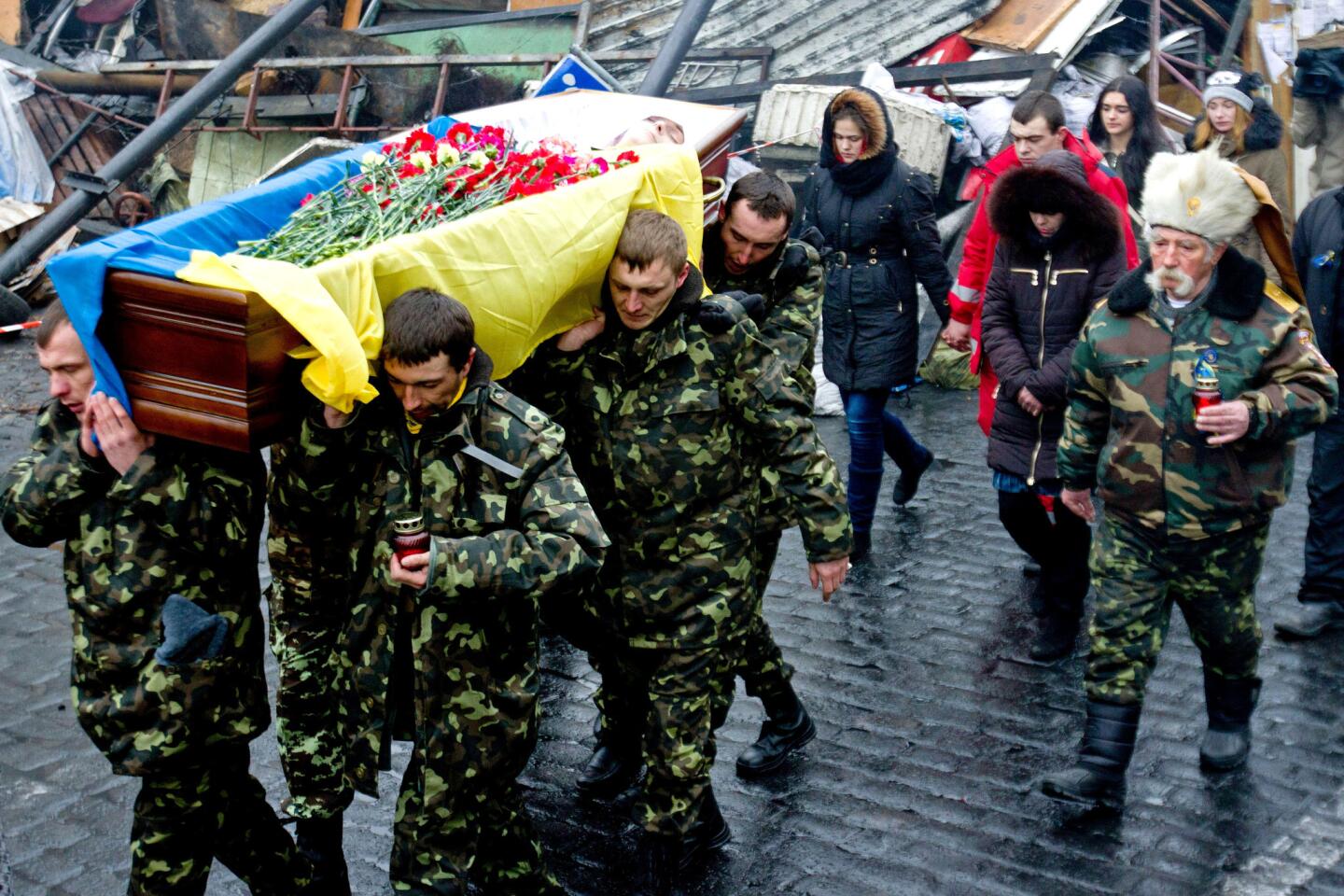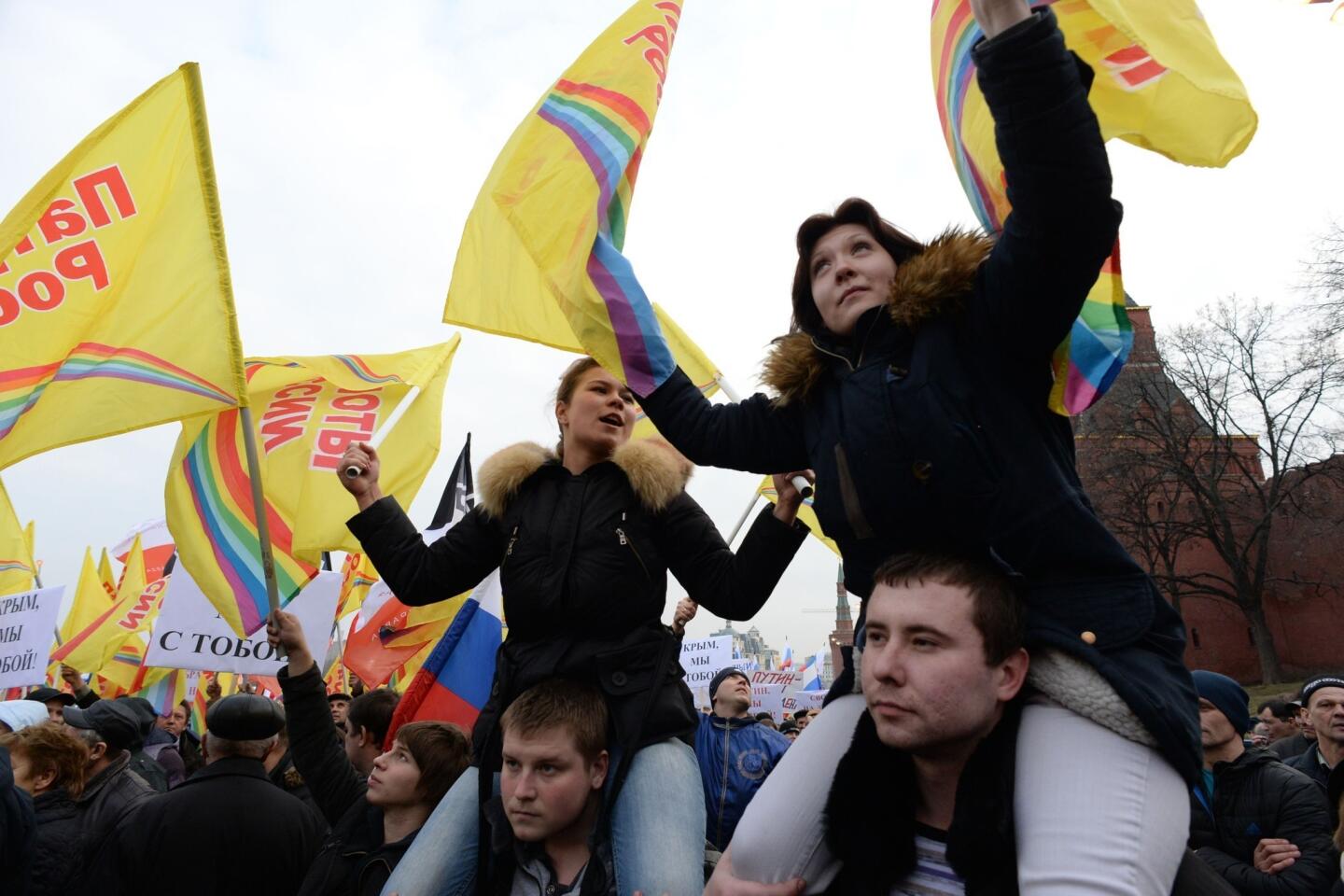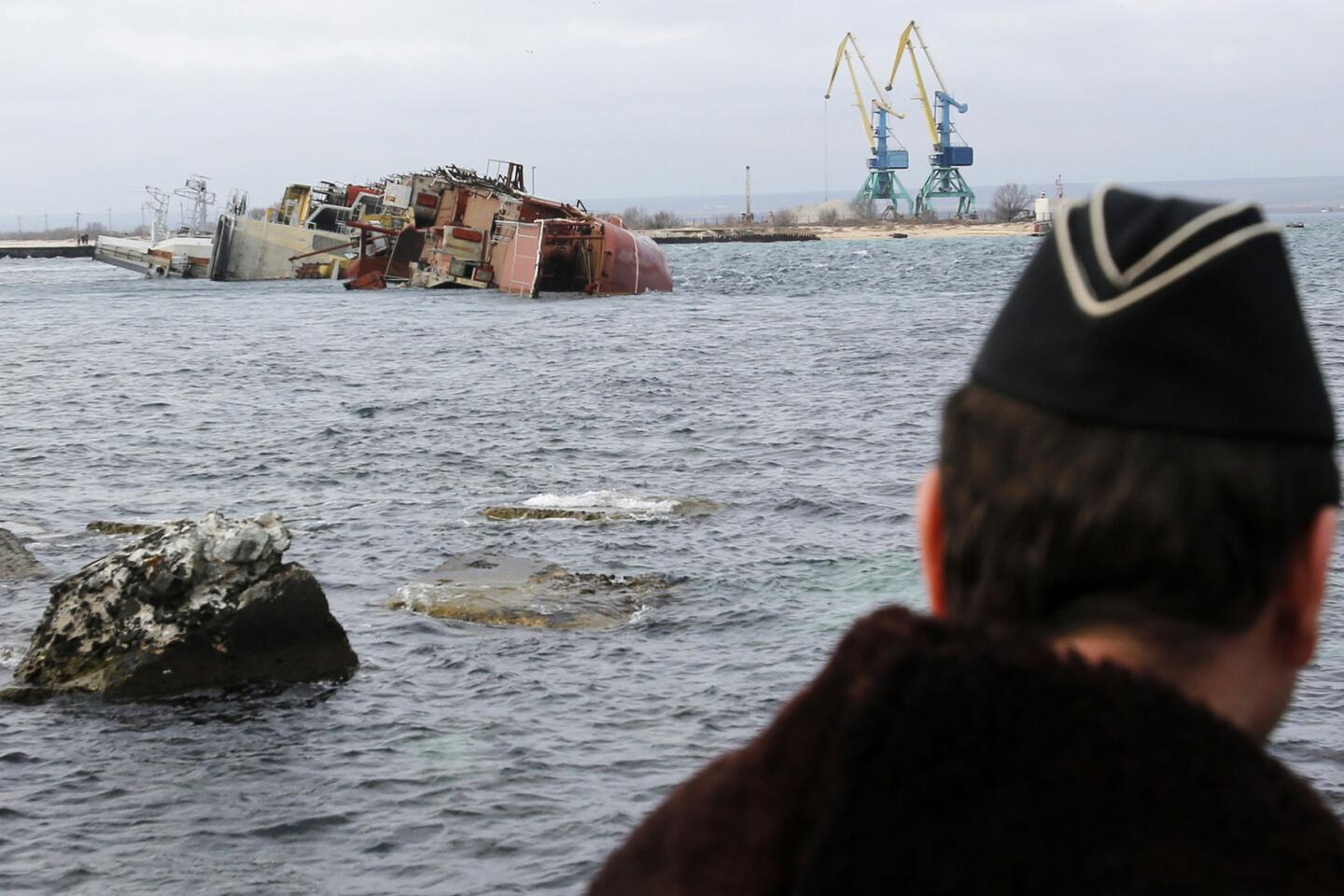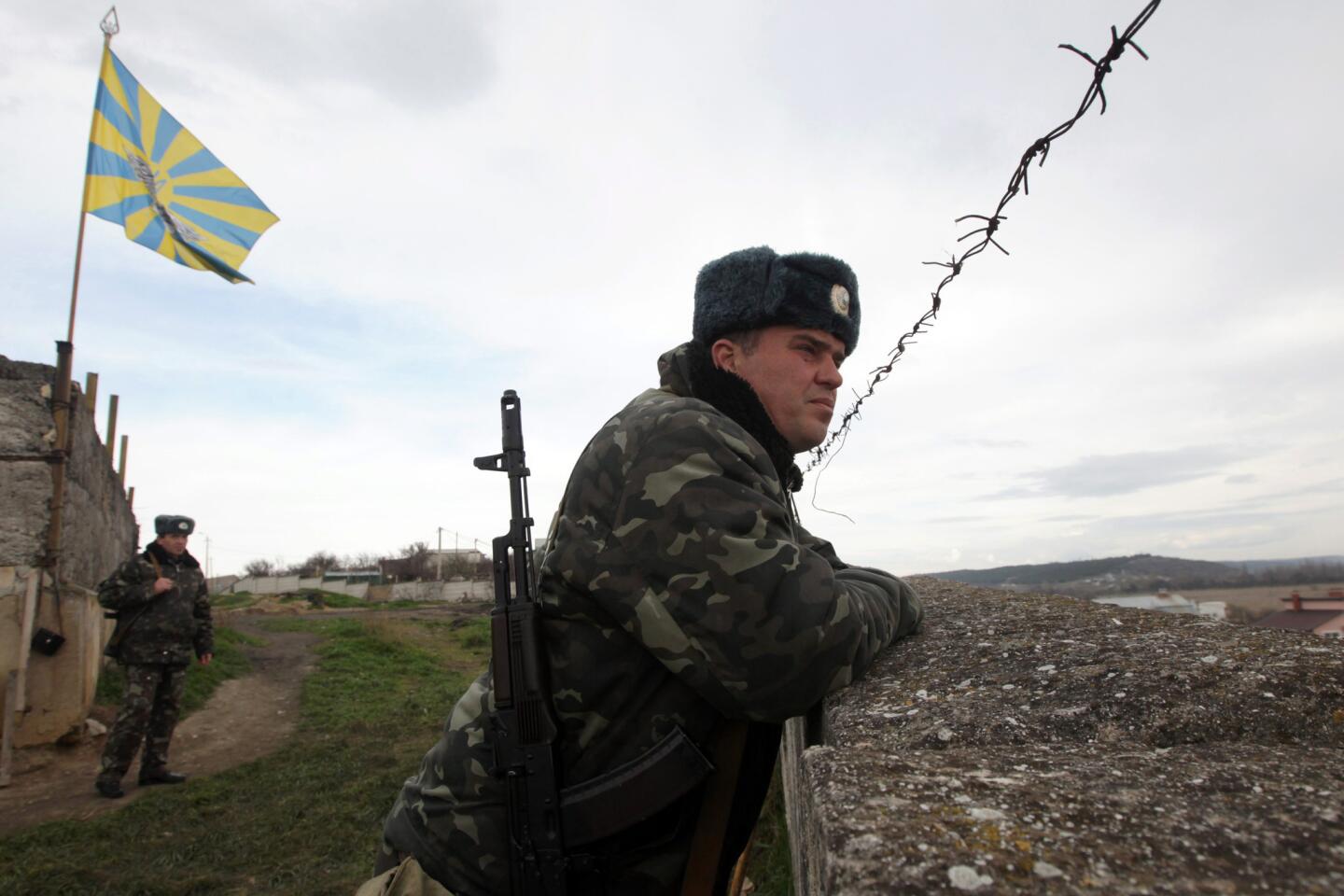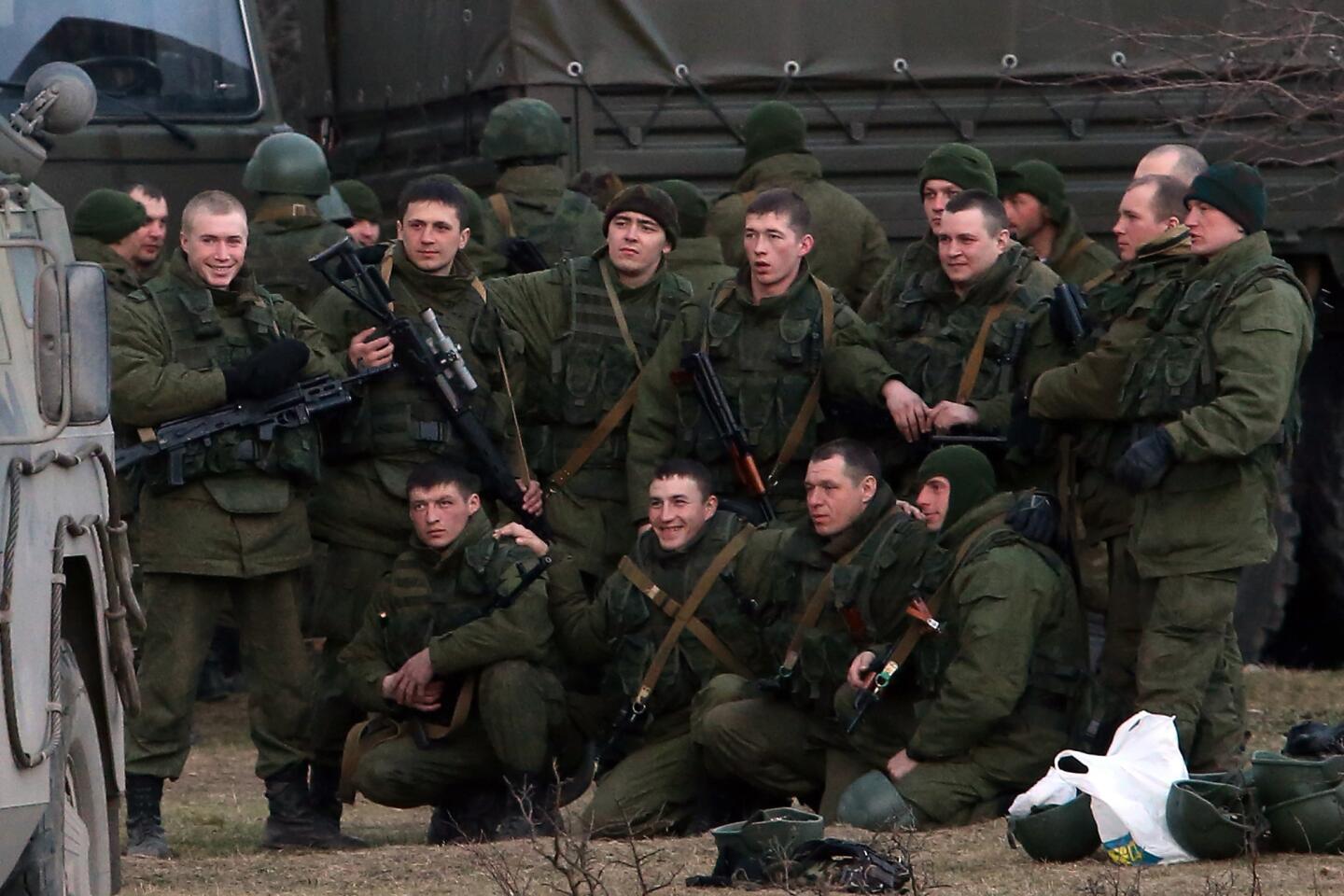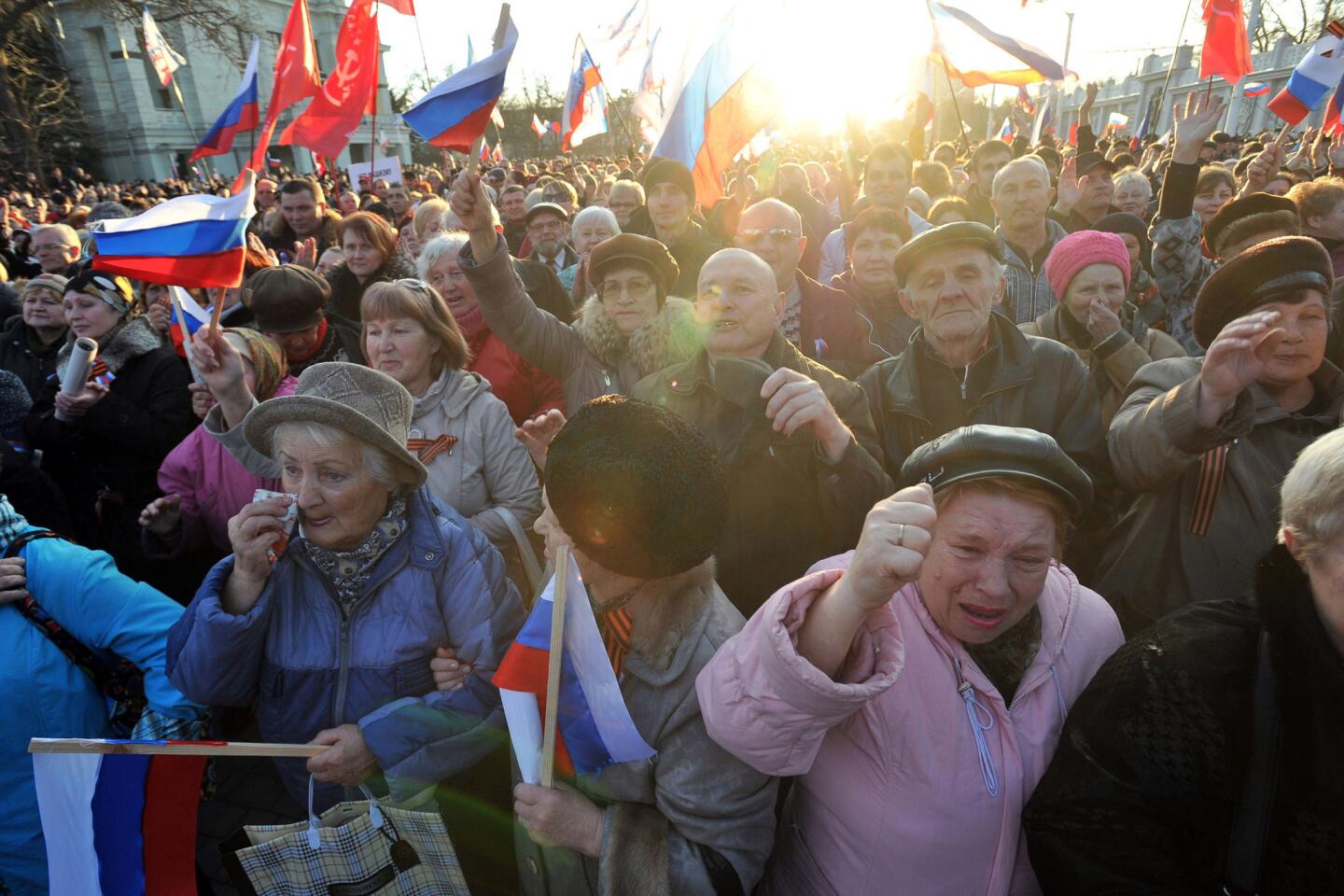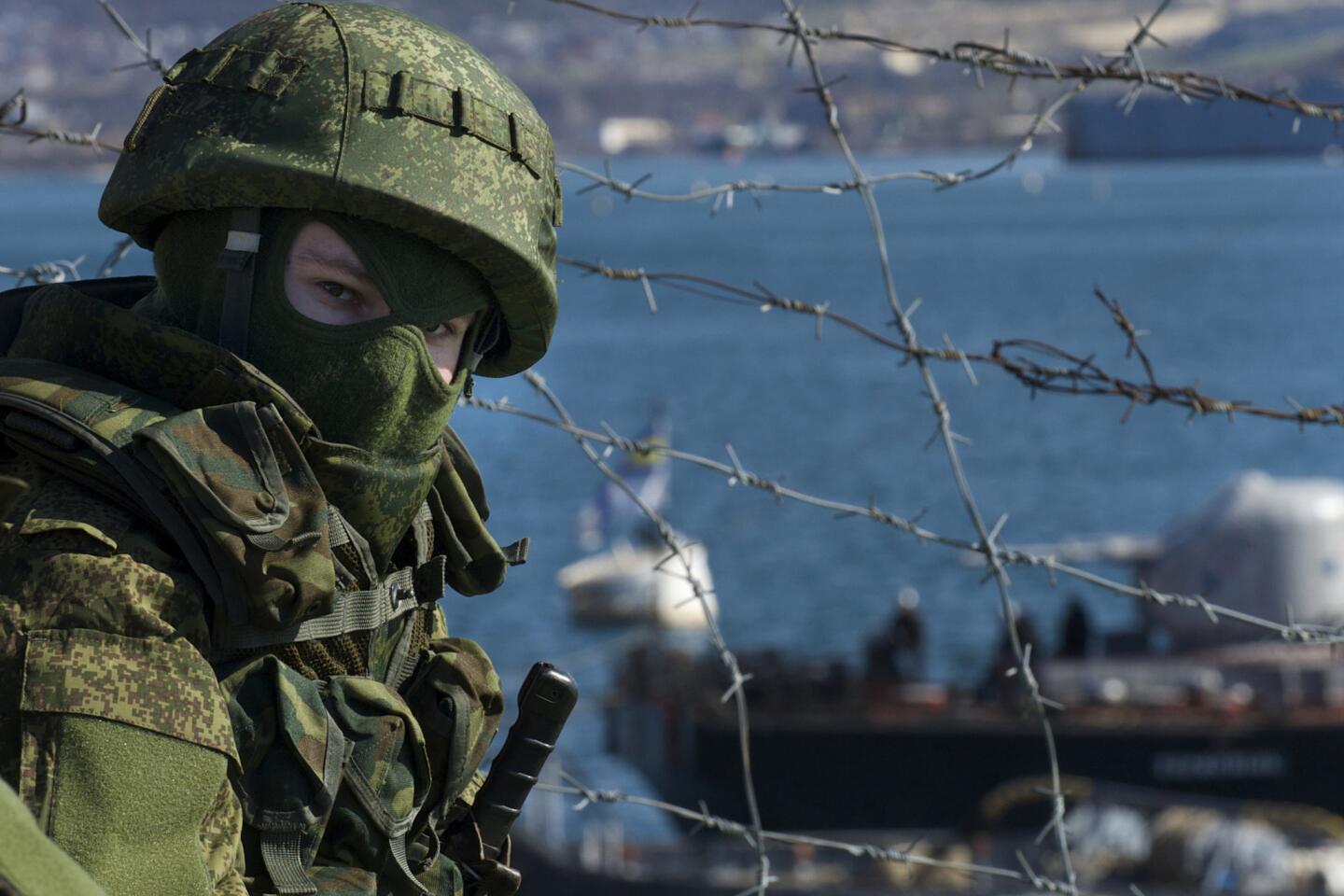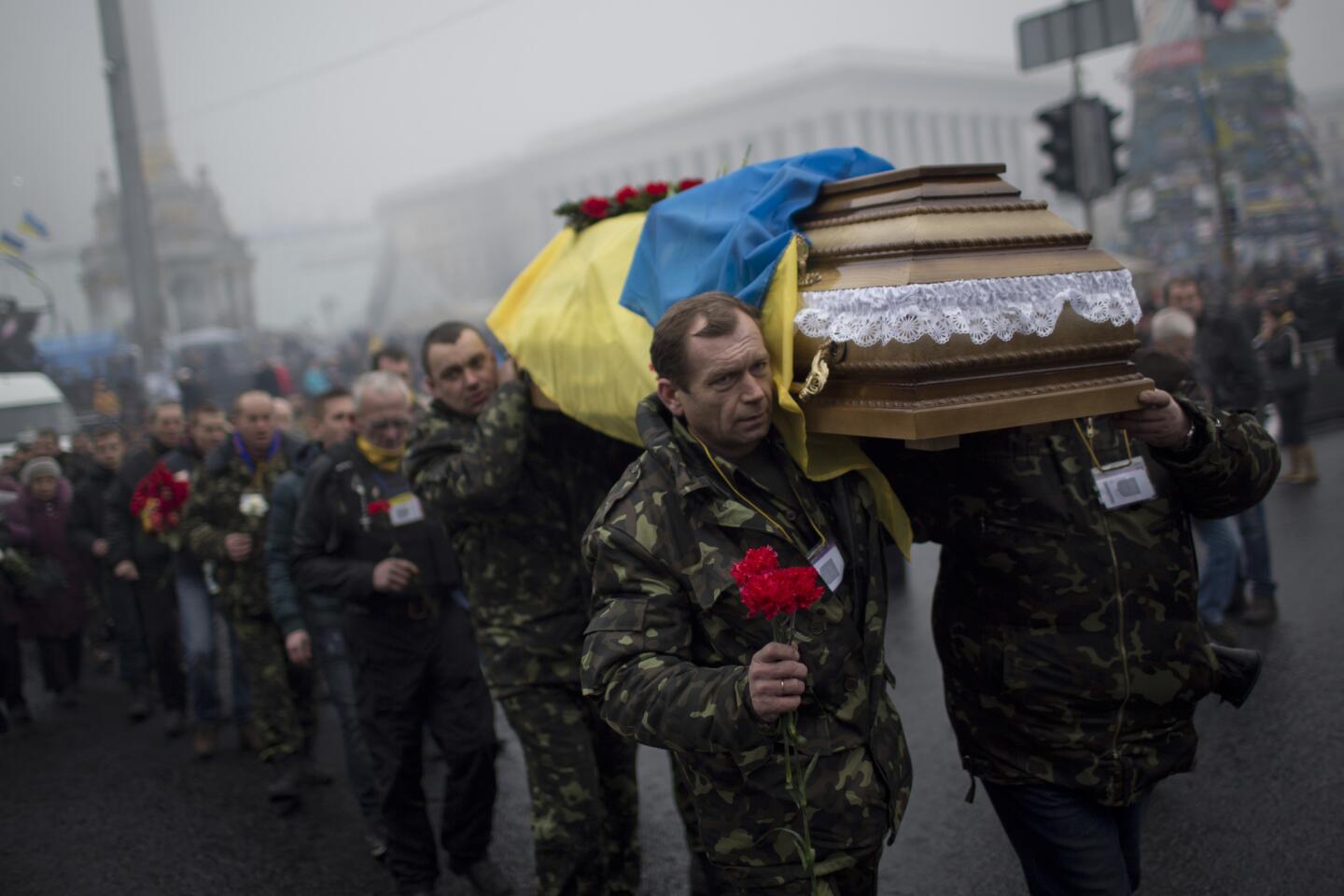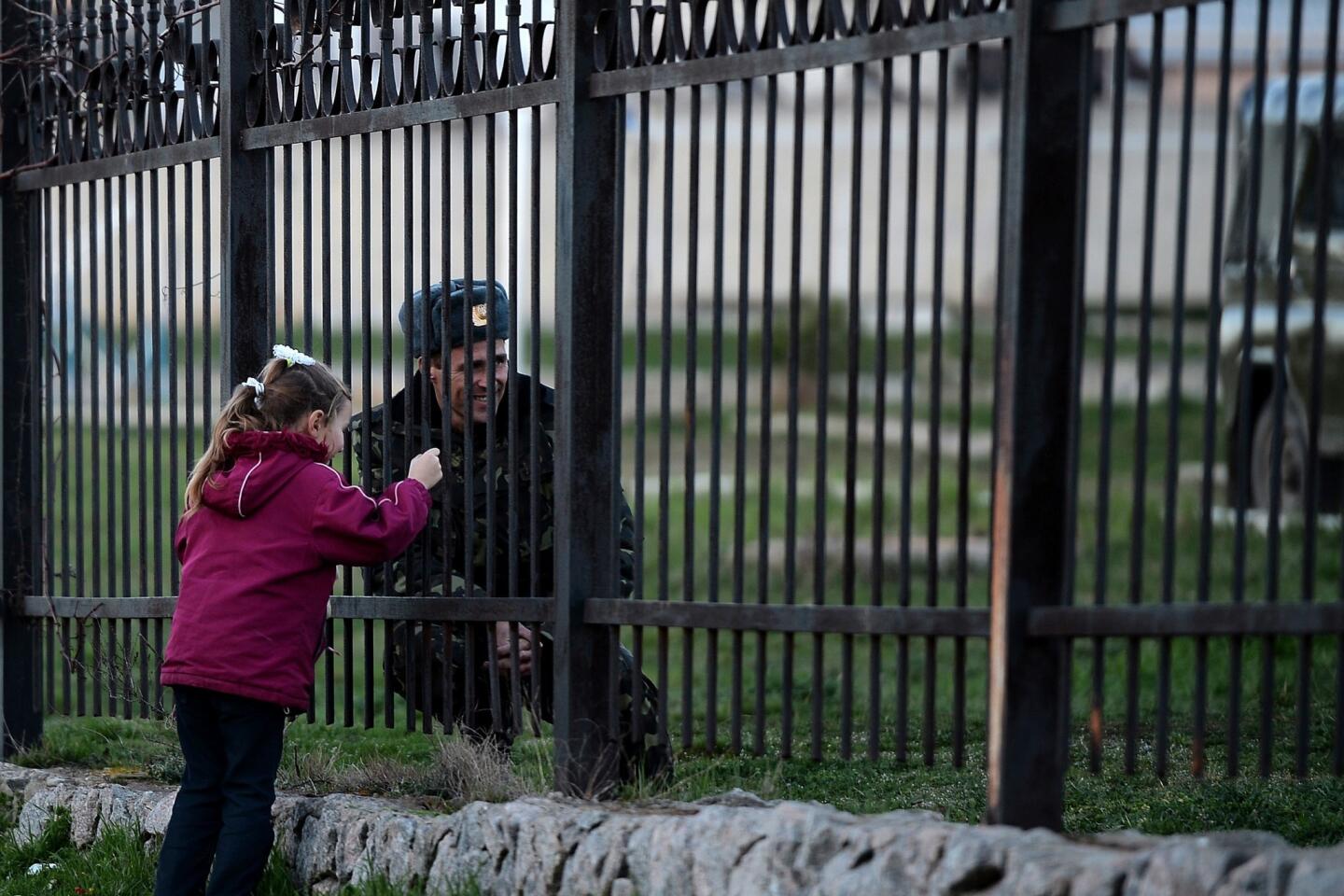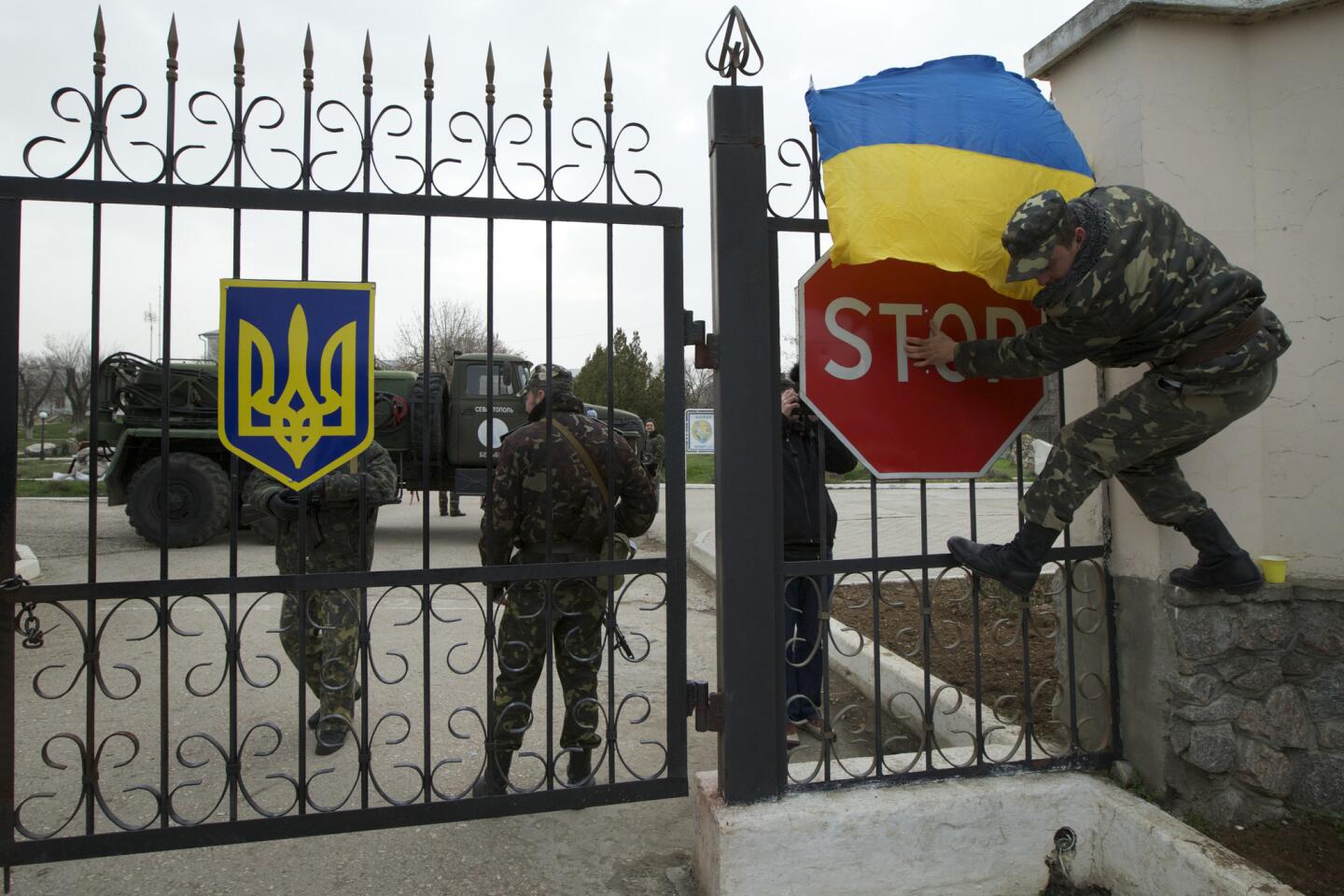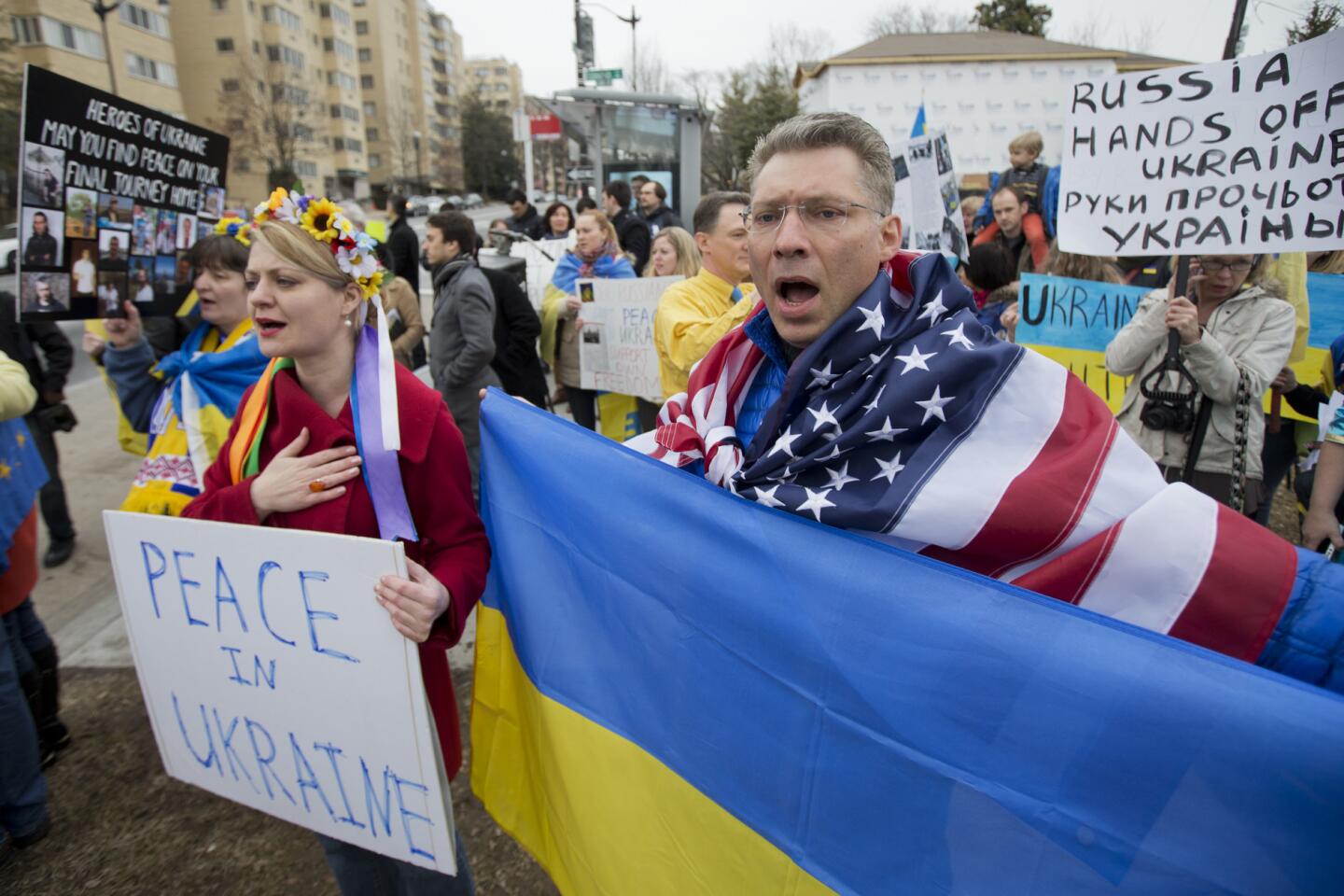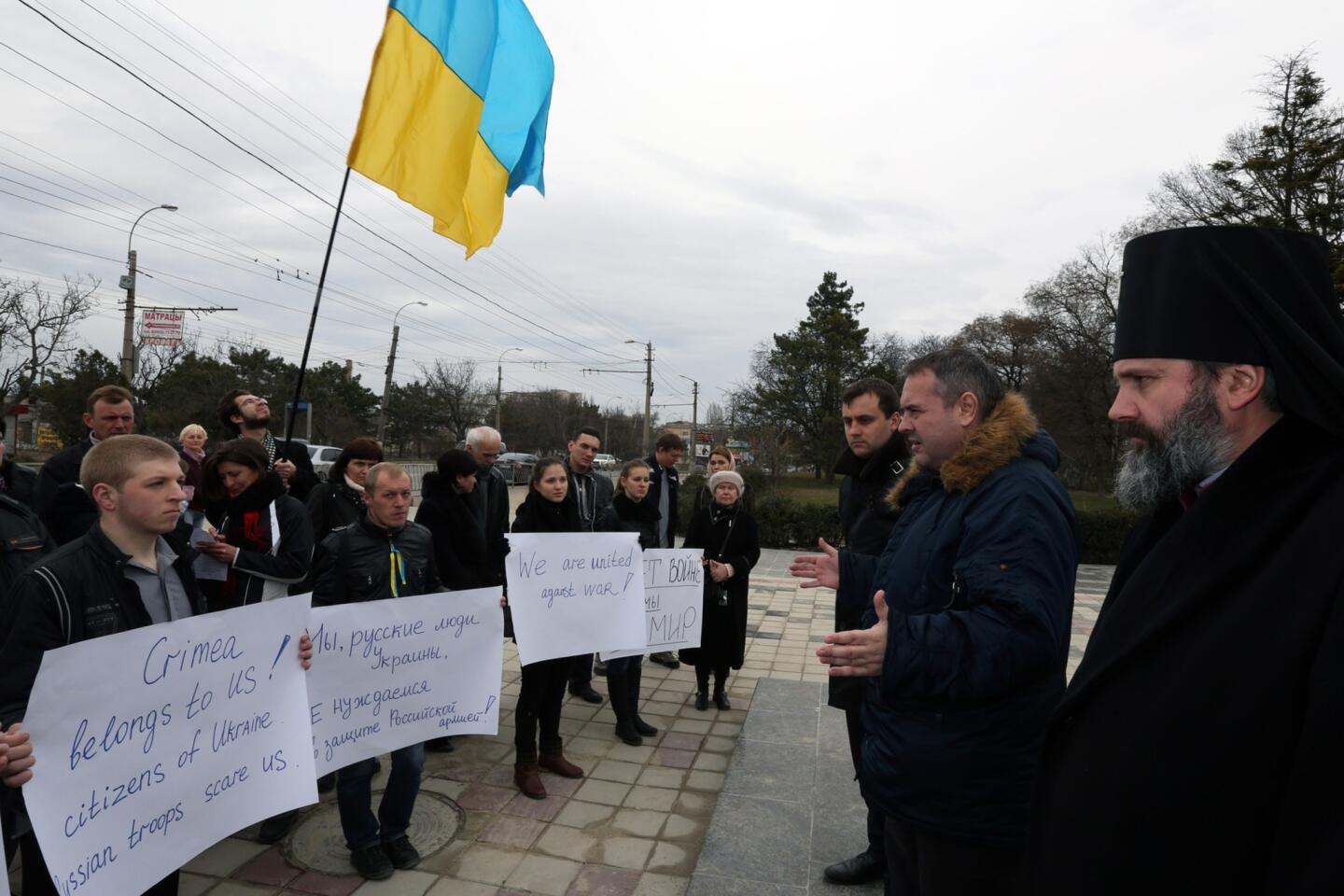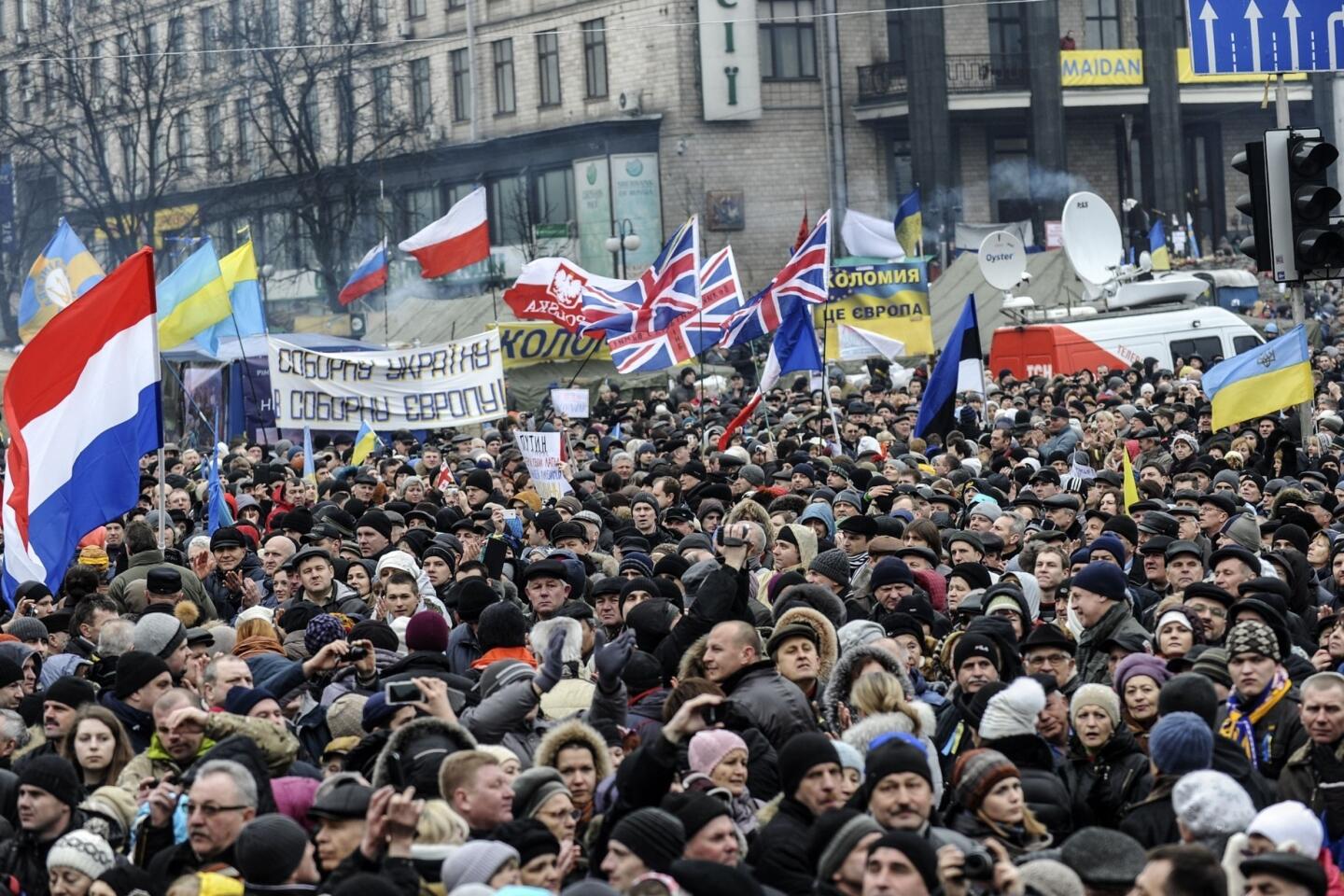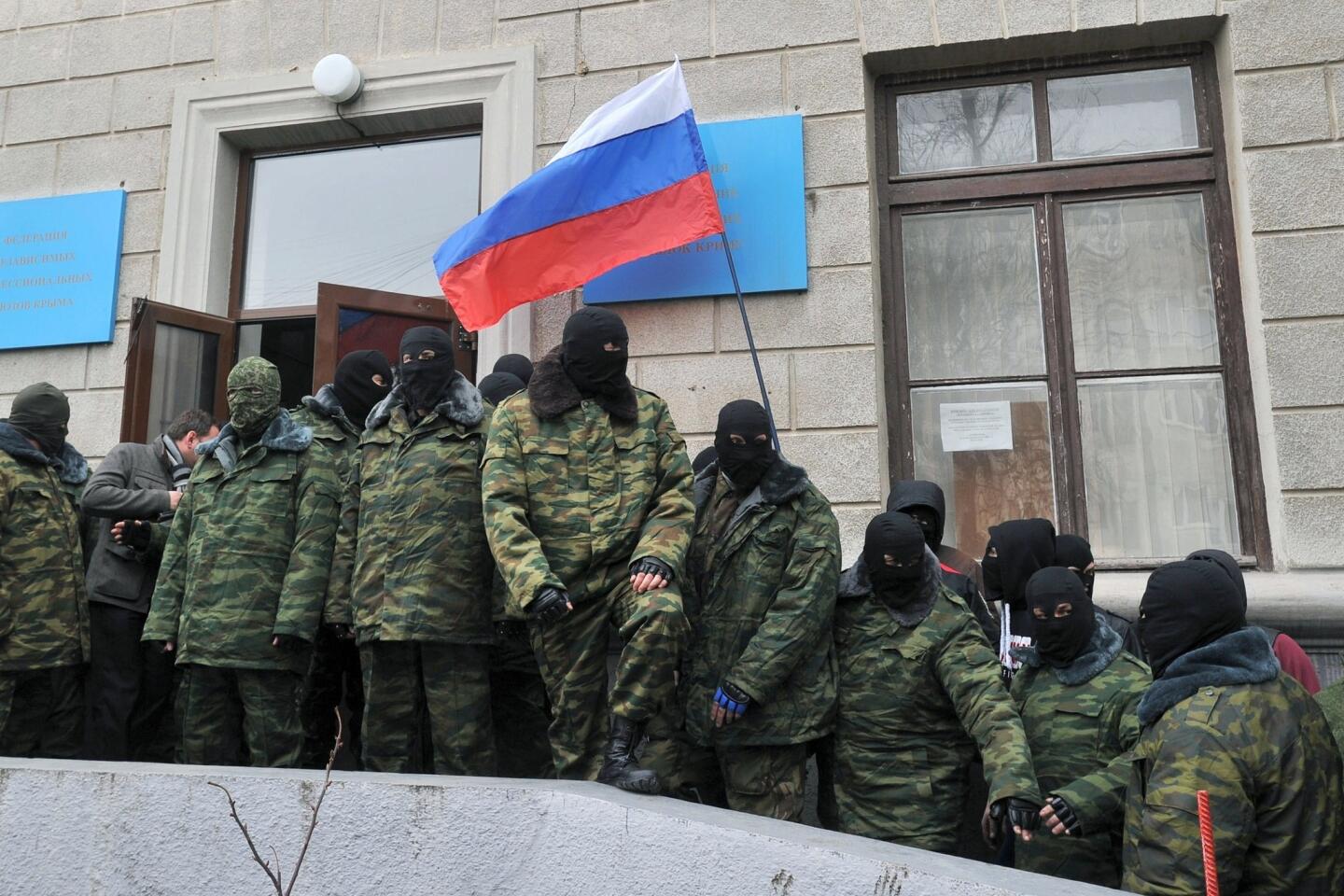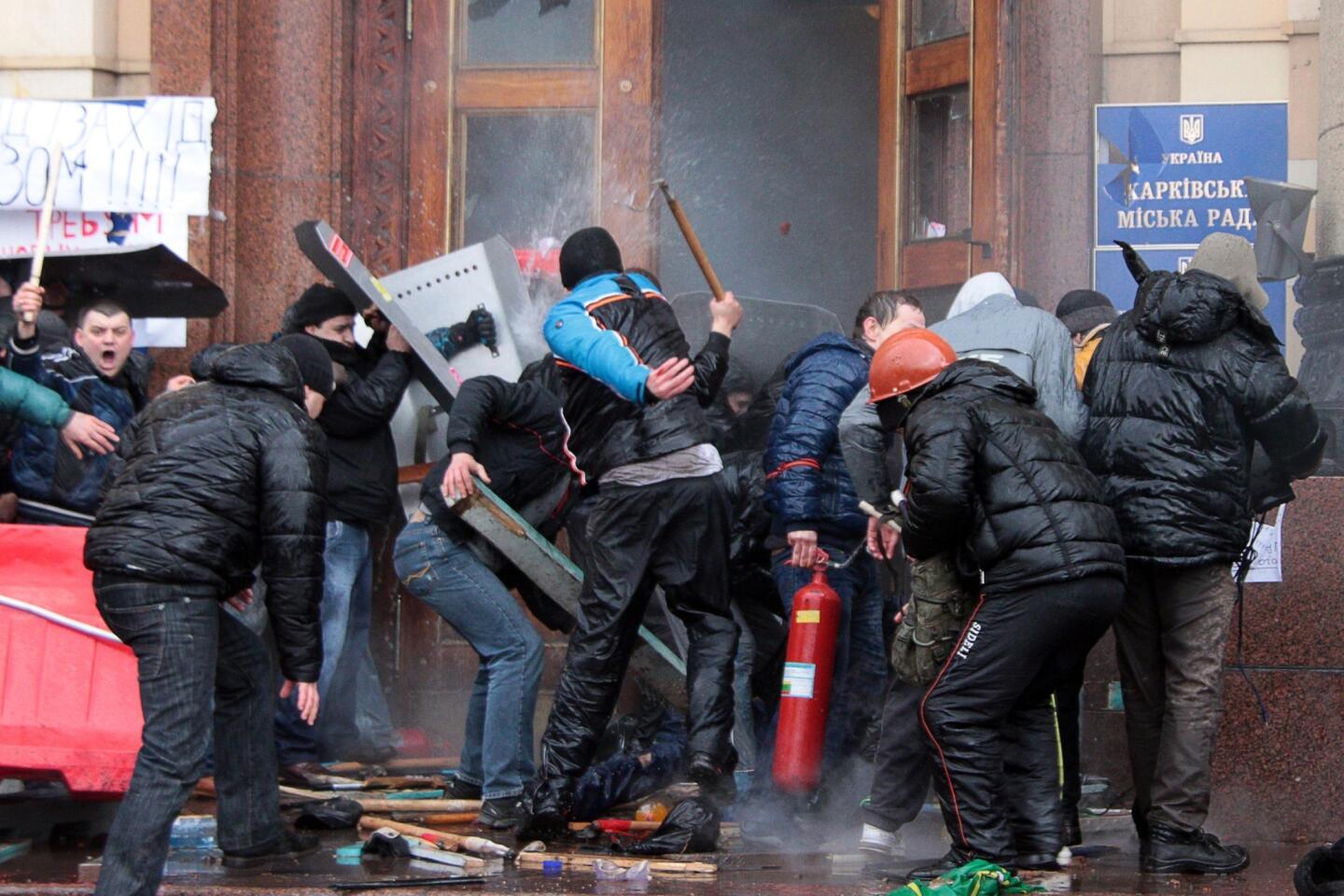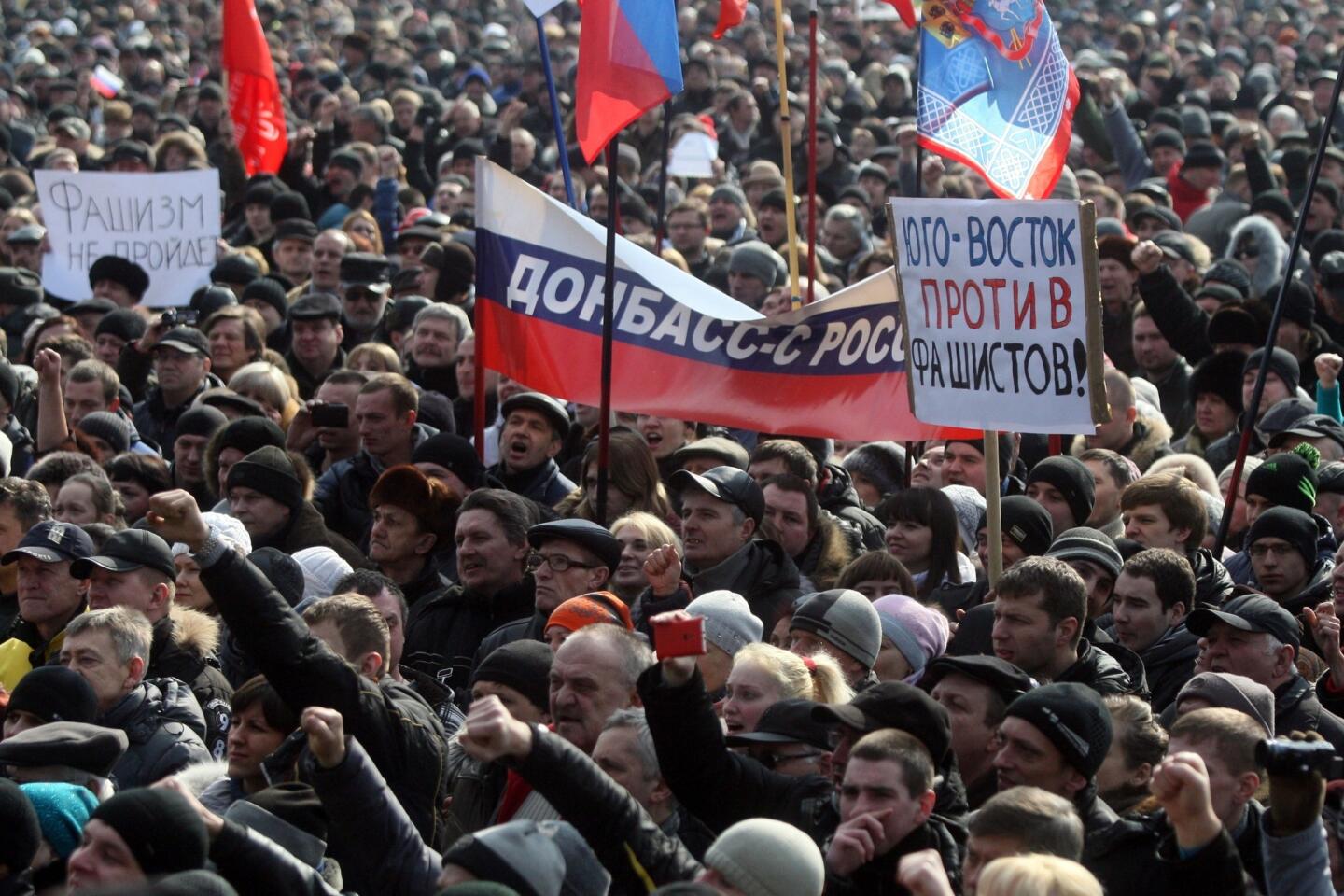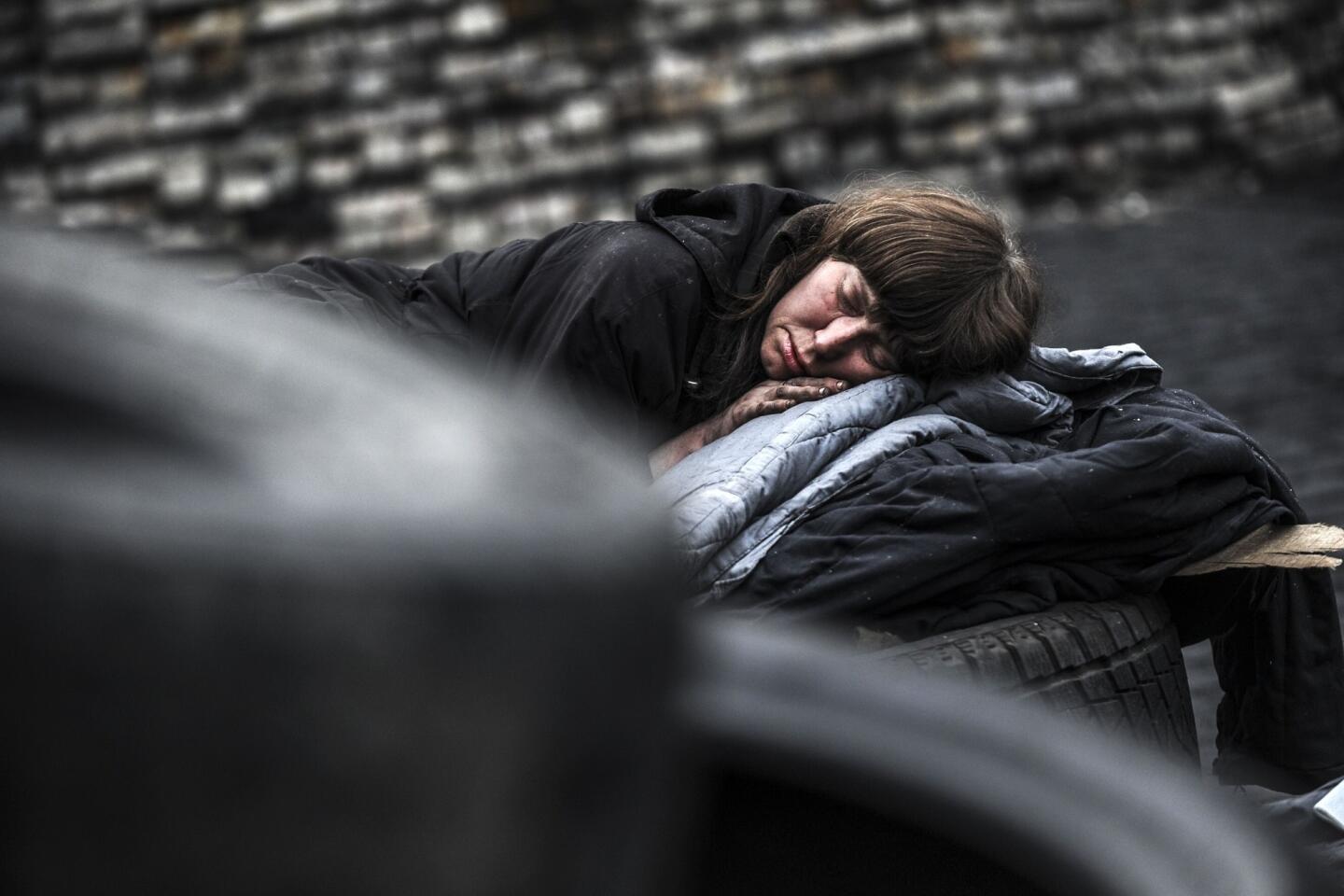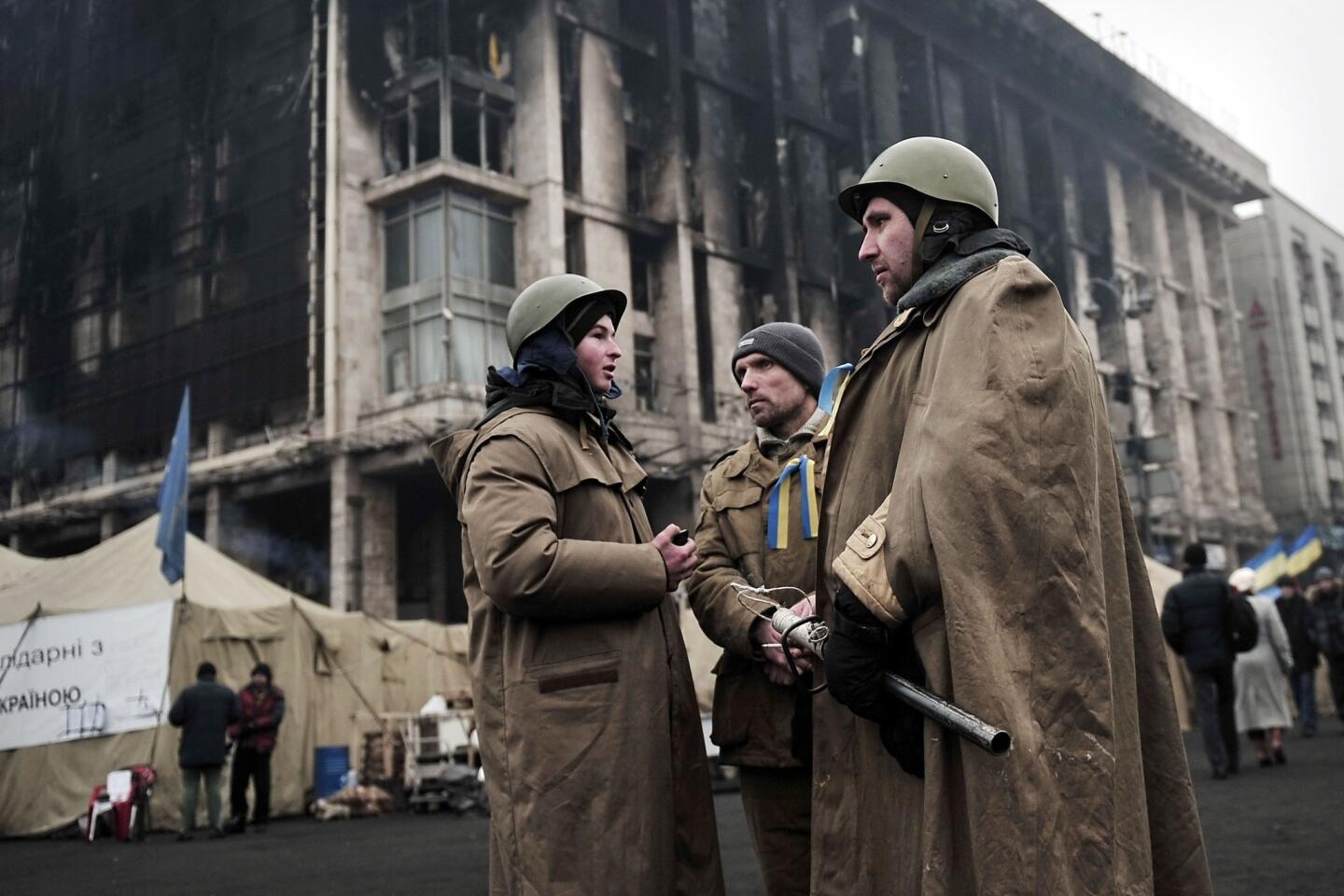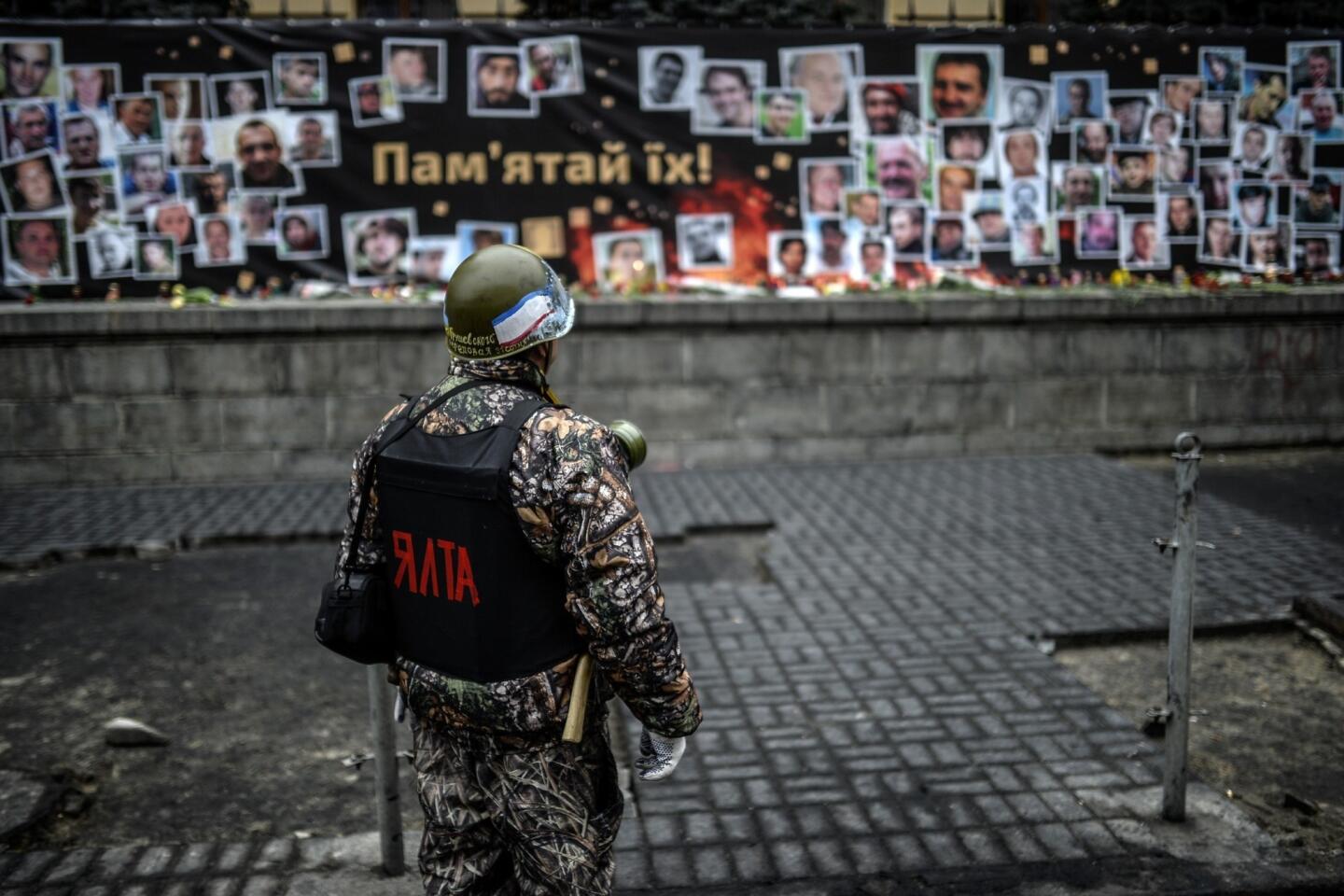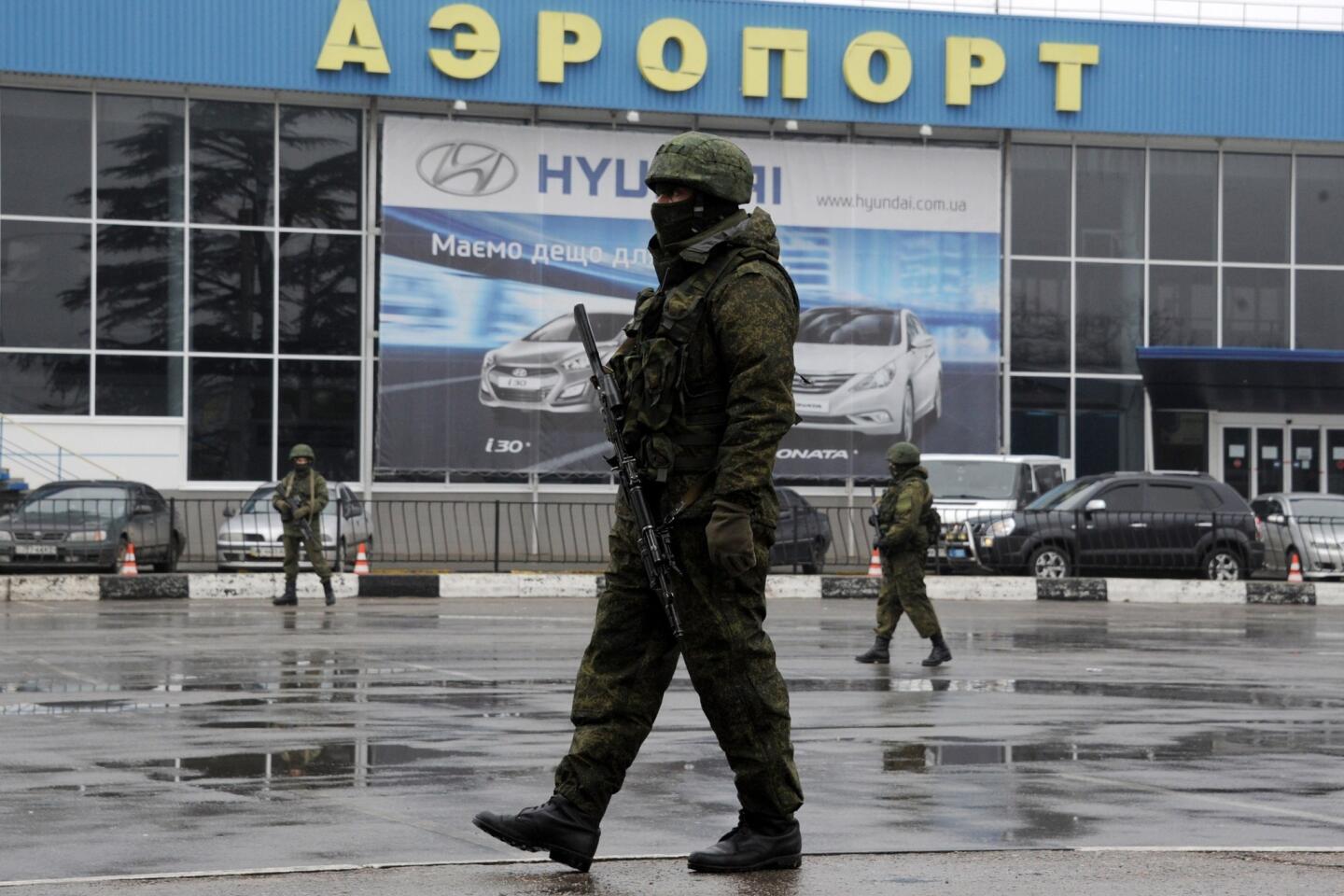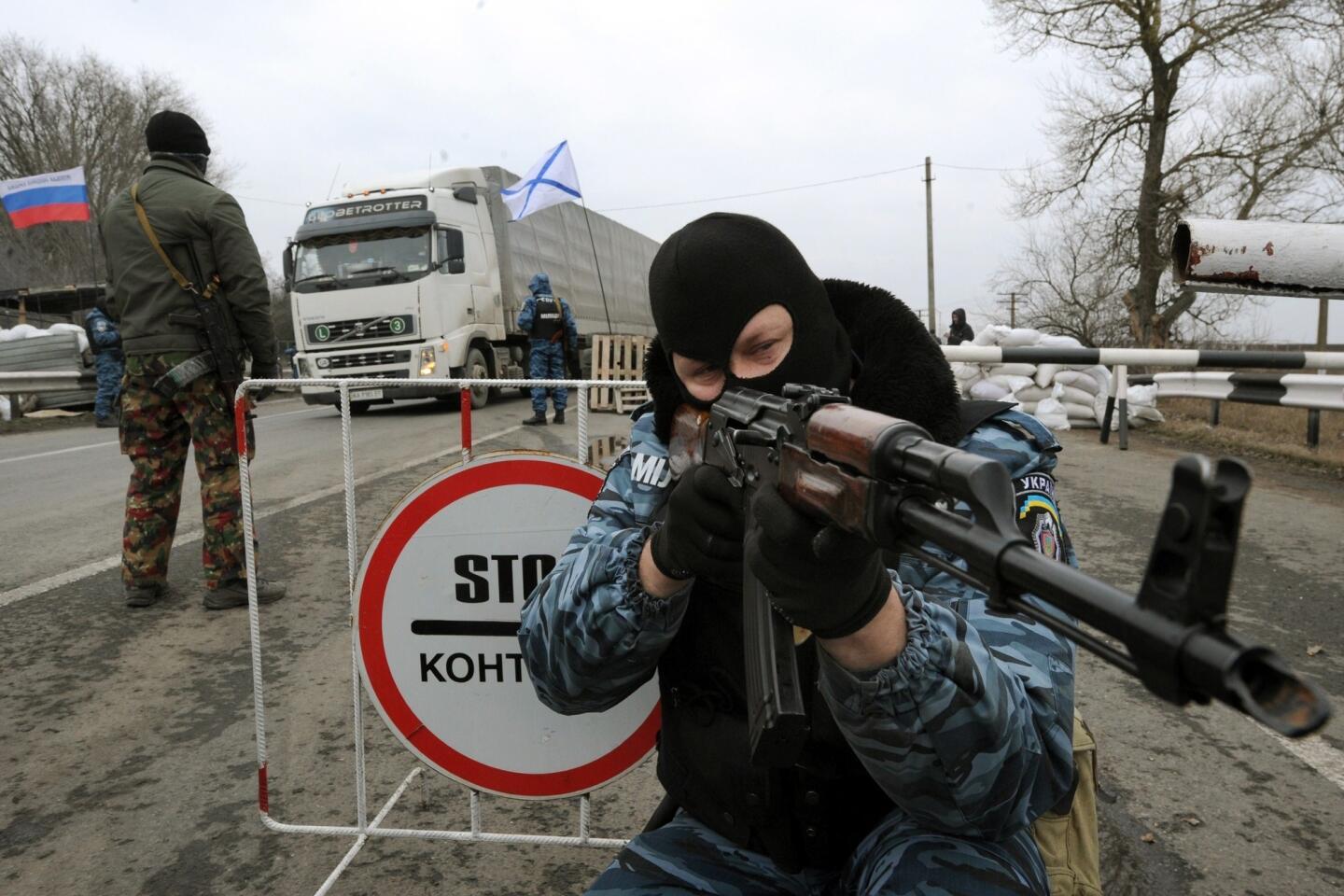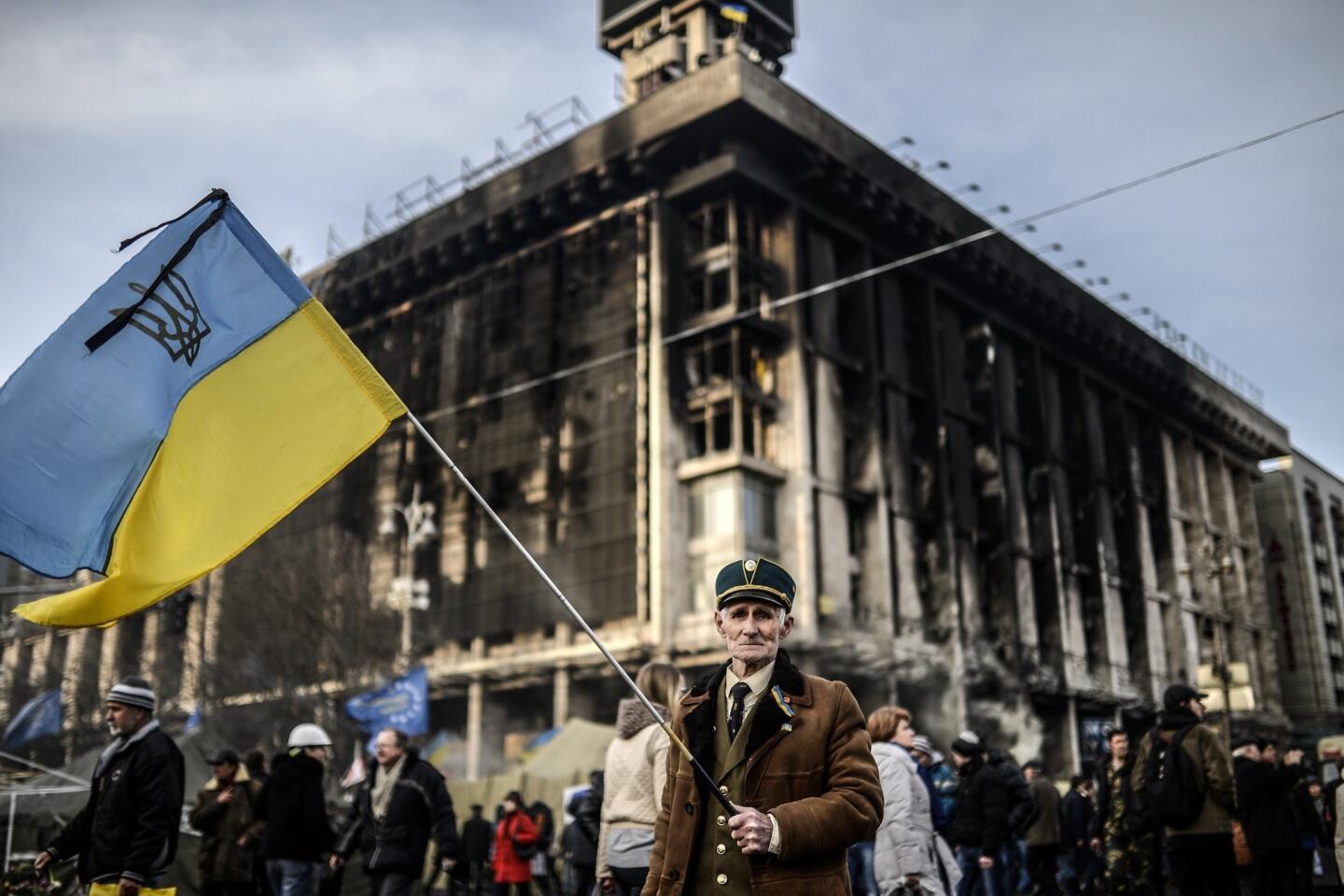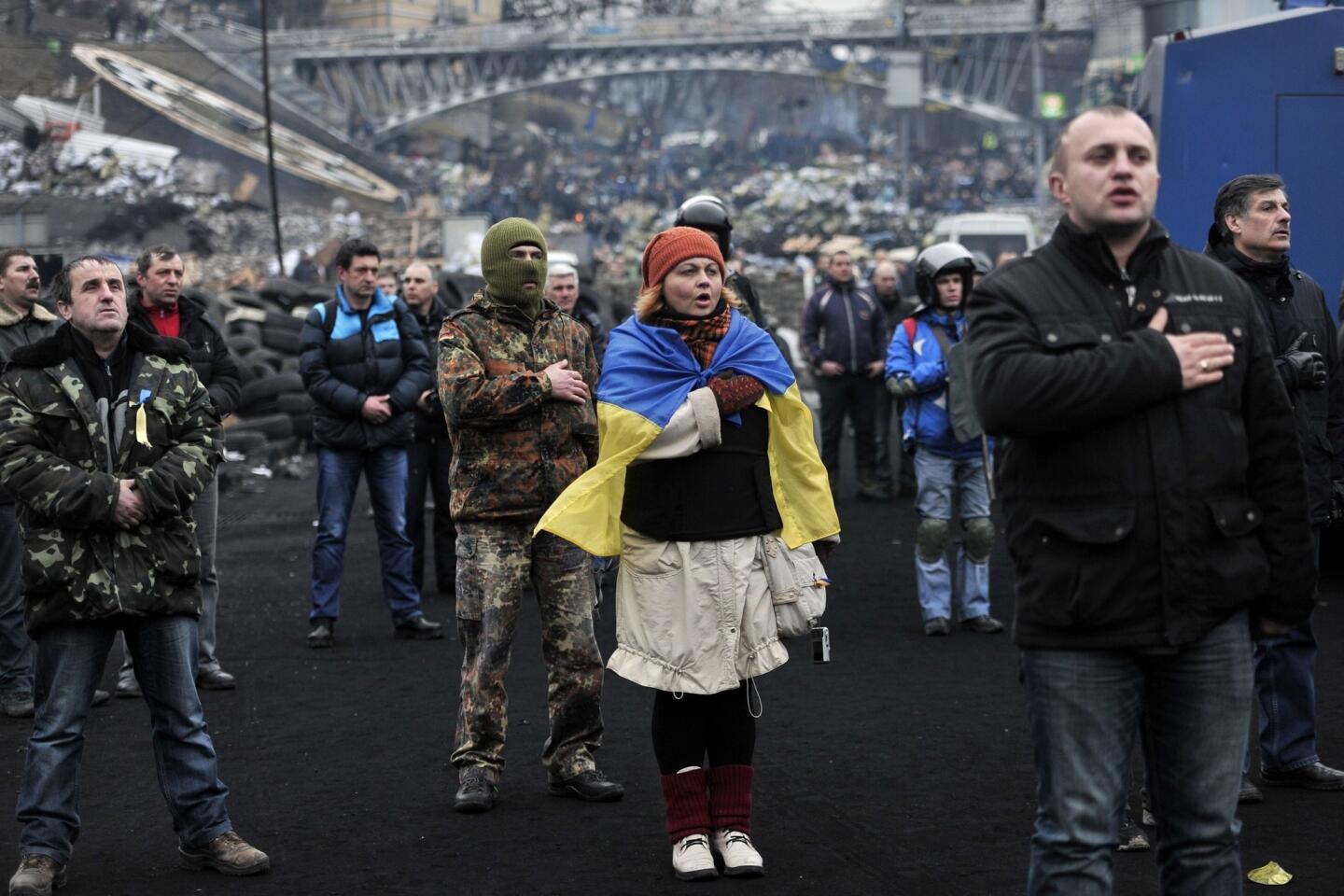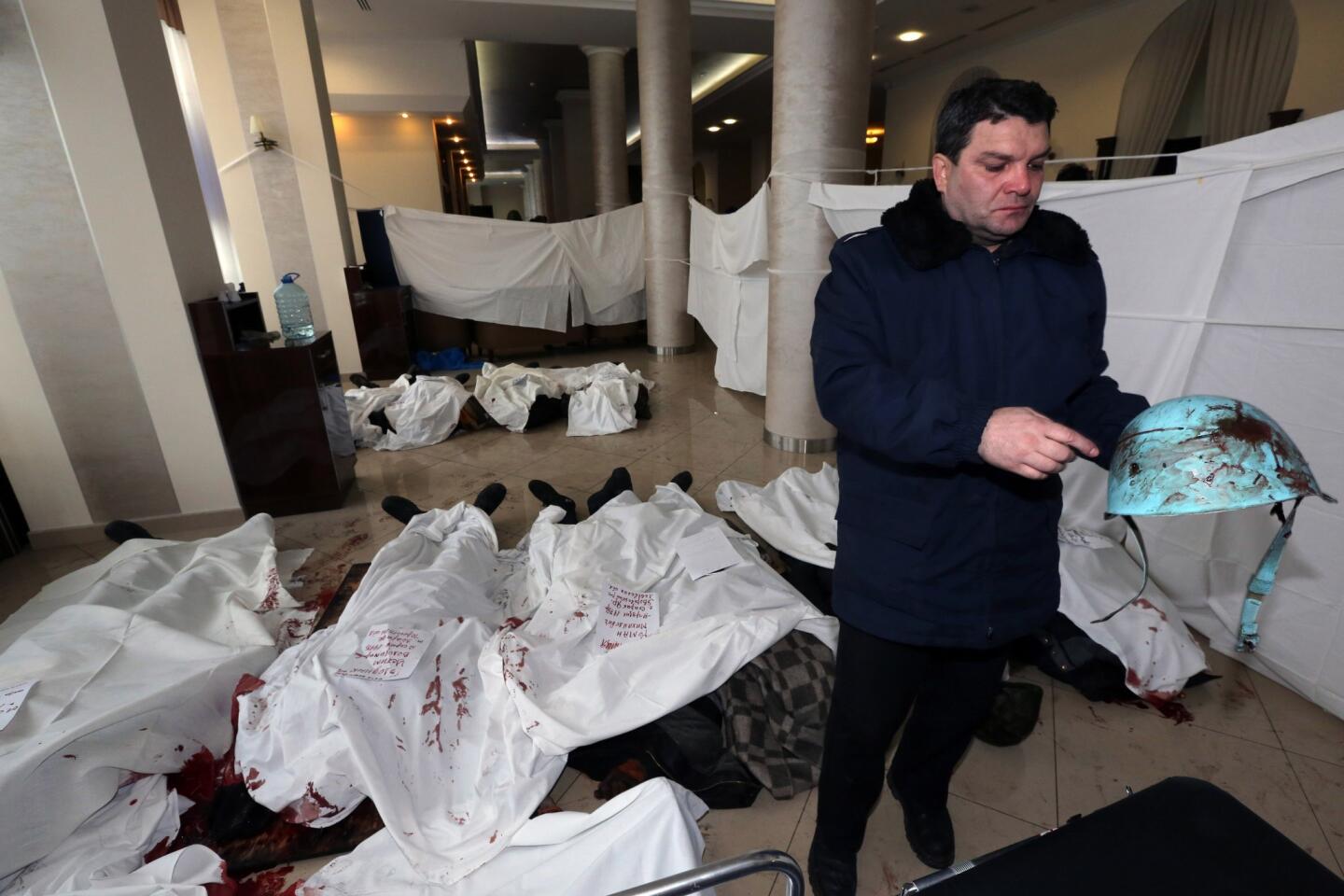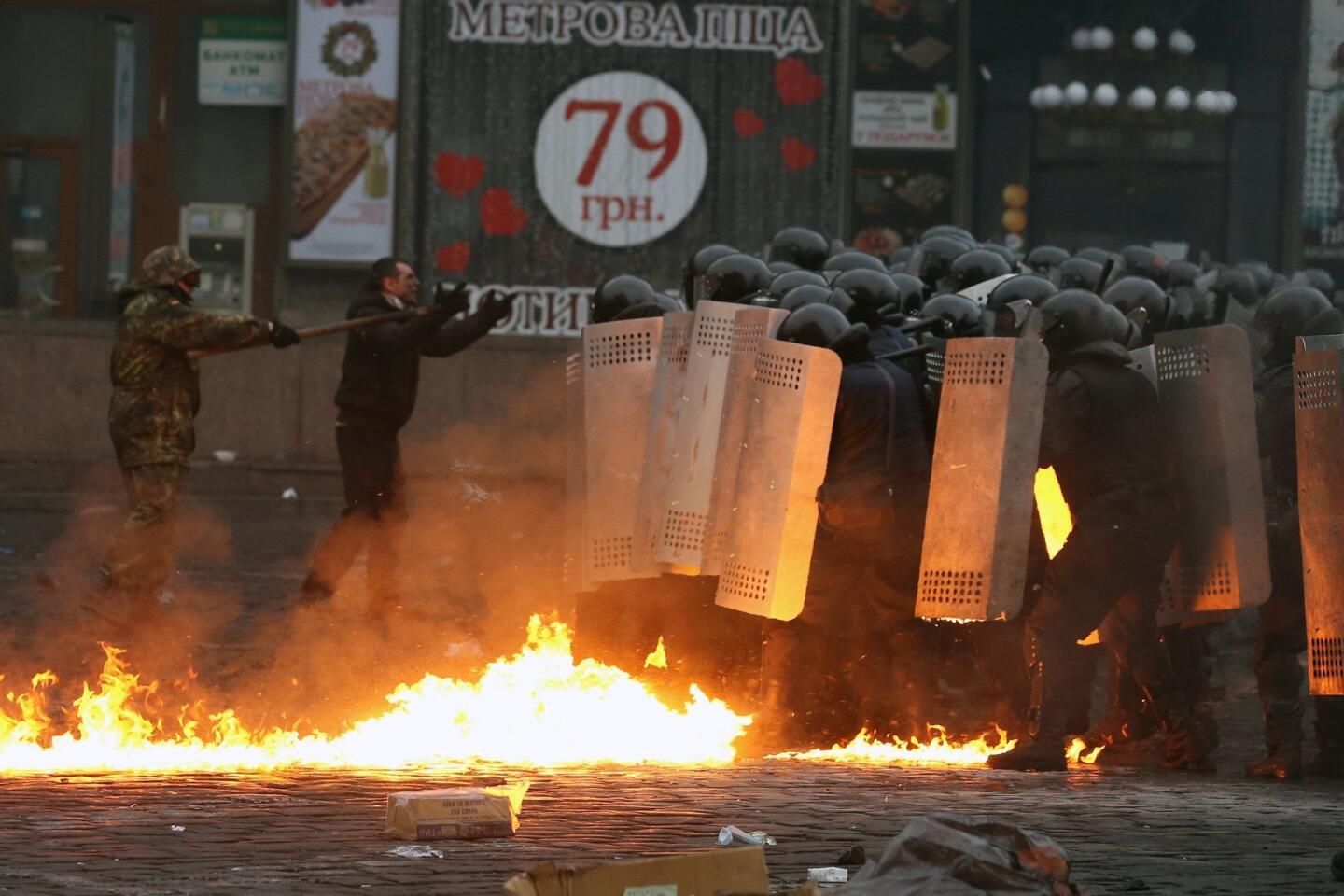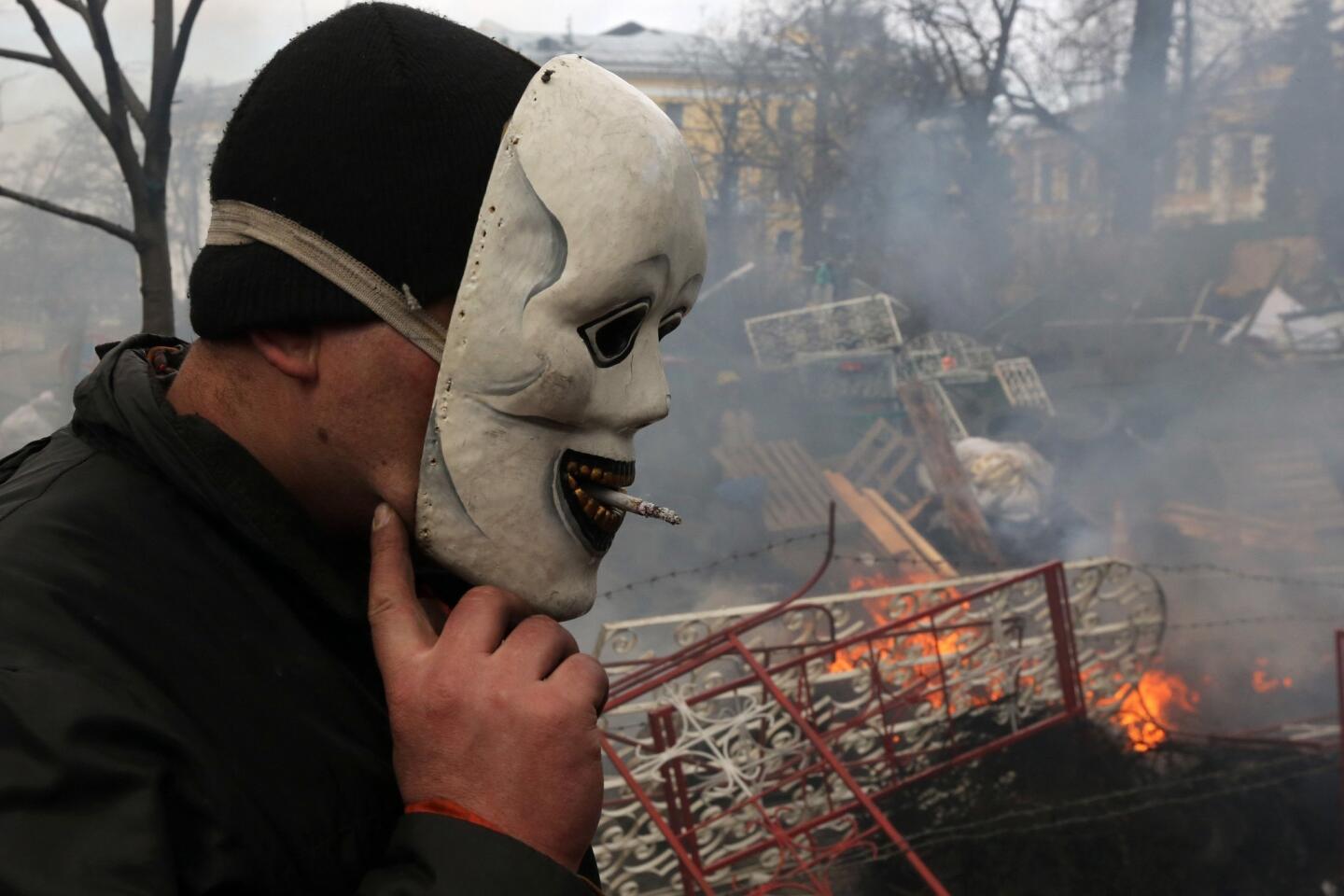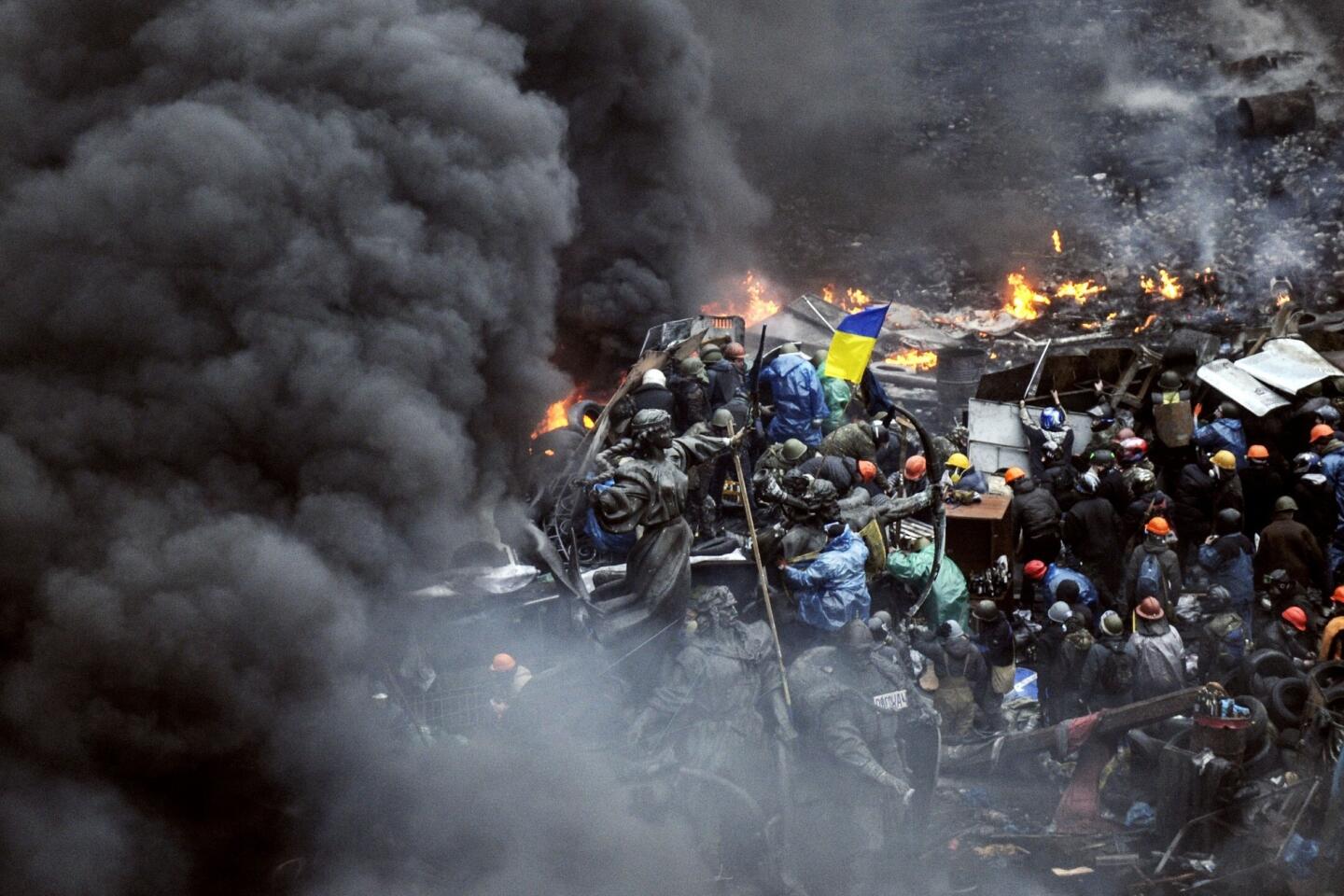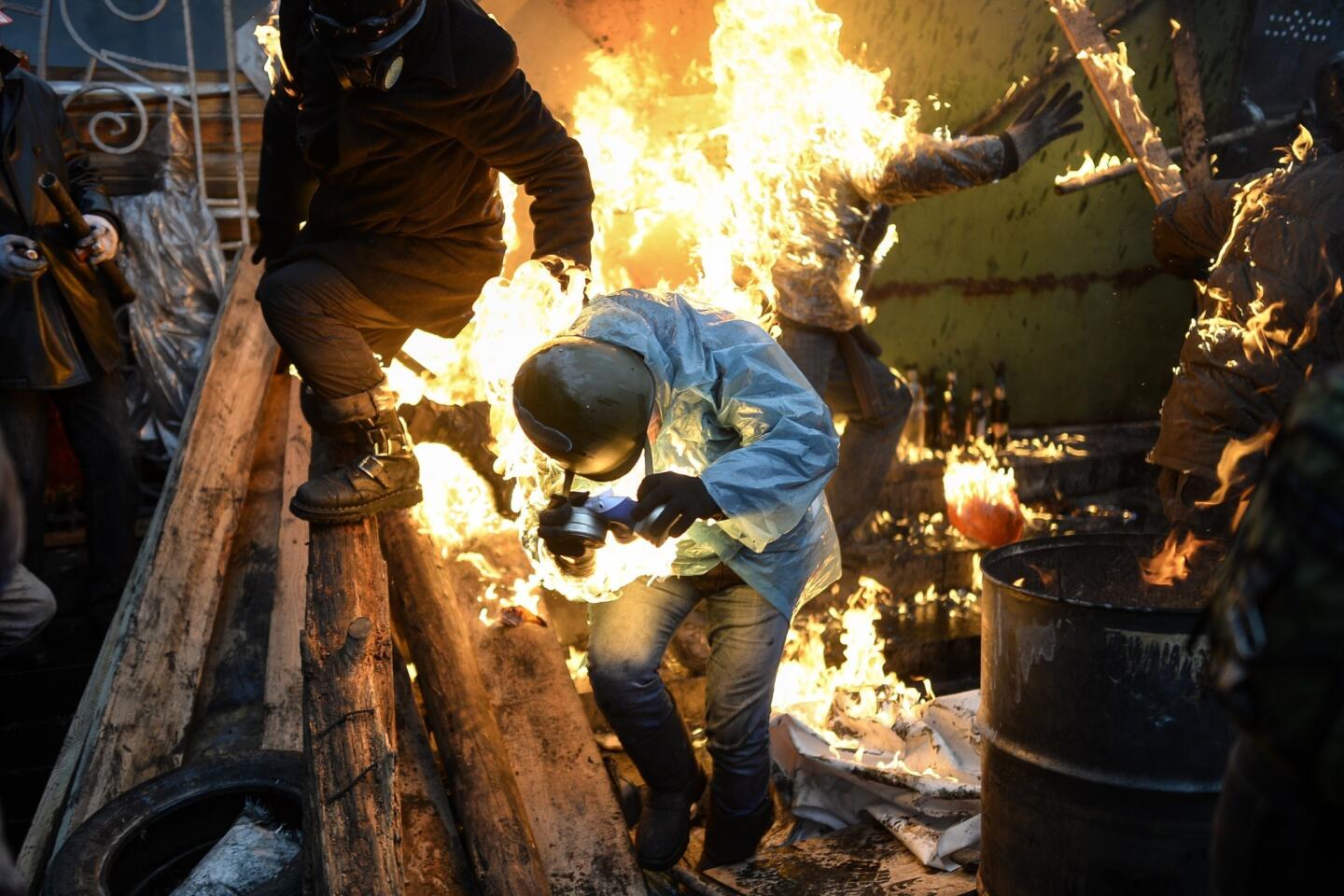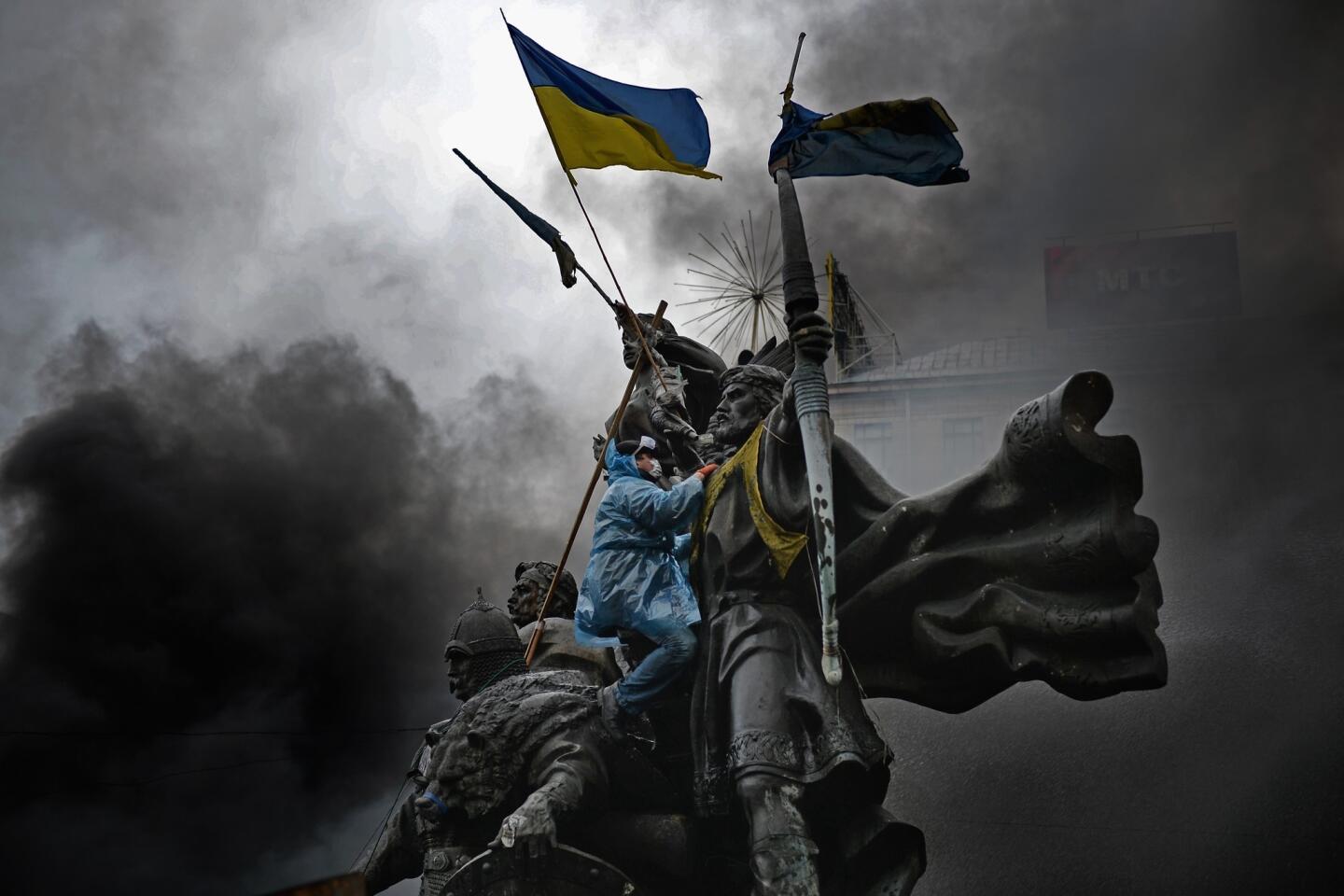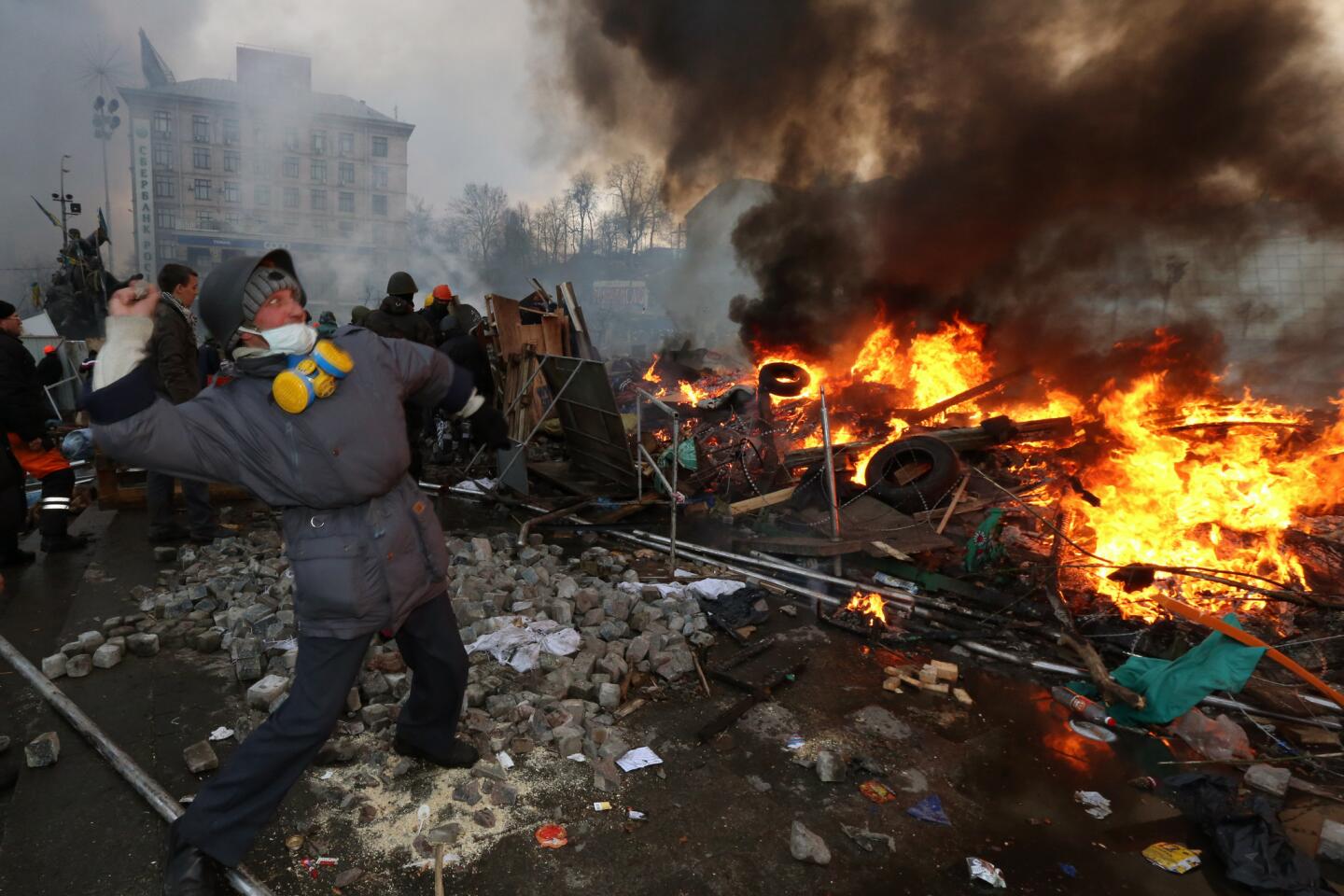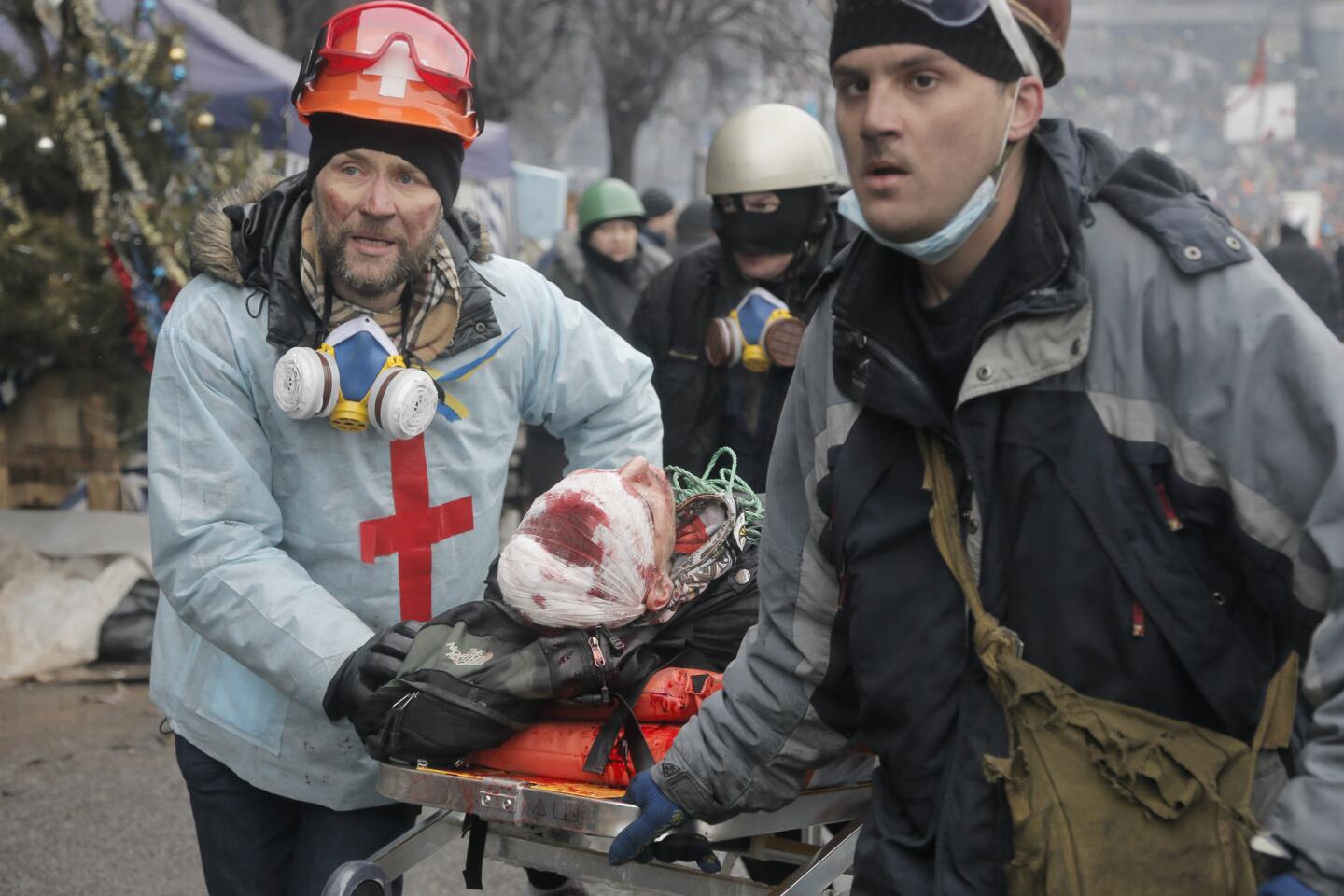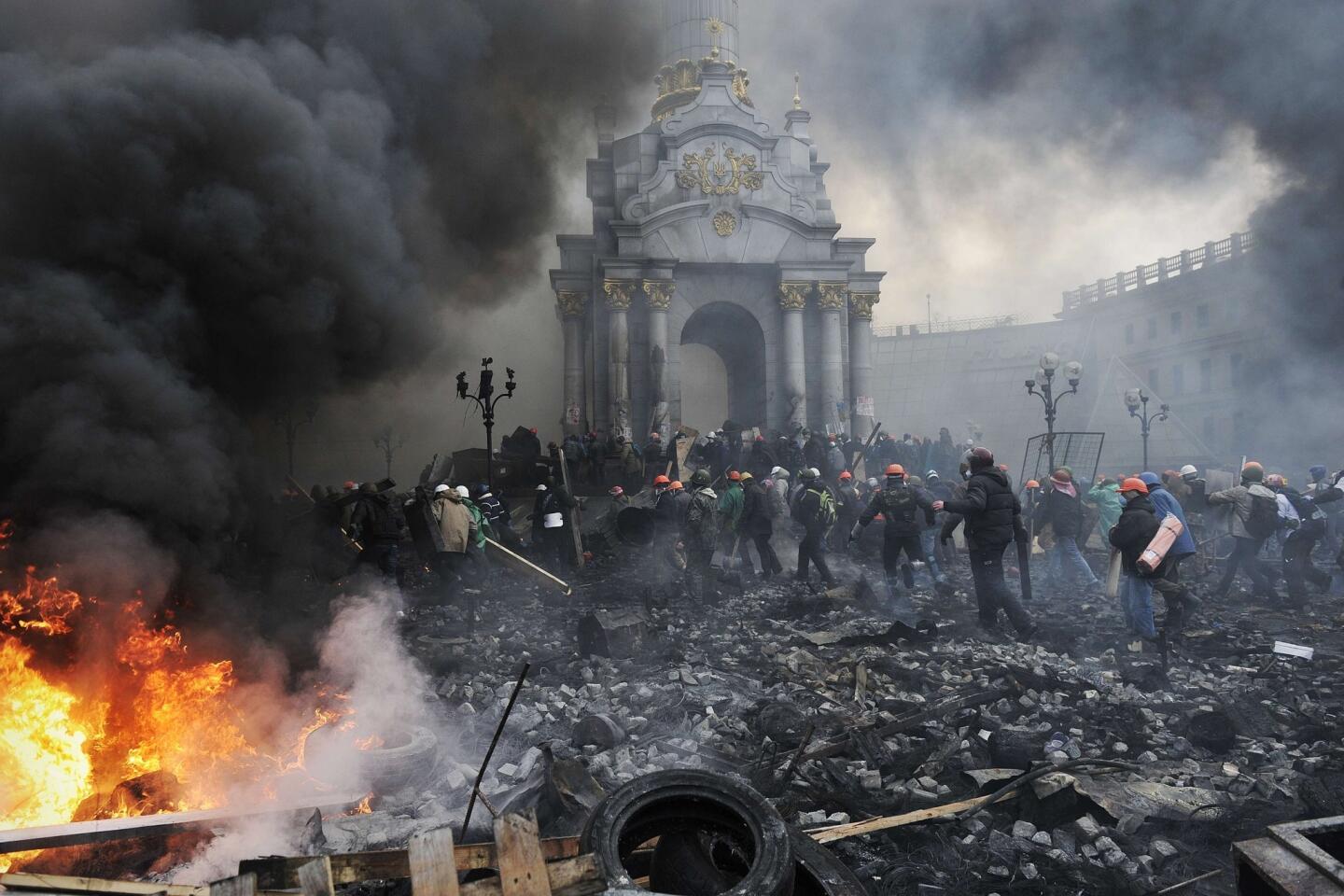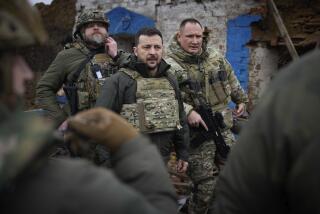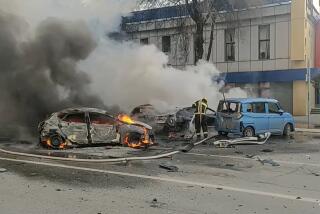Deal to end Ukraine unrest appears to show Viktor Yanukovich the exit
KIEV, Ukraine — After a violent week that turned parts of his capital into a war zone, Ukrainian President Viktor Yanukovich agreed Friday to a new election and a coalition government in a deal that appeared likely to seal his political fate and bring his imprisoned rival back onto the stage.
It was far from clear, however, that Ukraine could avoid more of the bloodshed that has killed at least 100 people in the country, the worst violence in its post-Soviet history. Crowds enraged by the deaths of protesters in volleys of sniper fire the previous day greeted opposition leaders who signed the agreement with the president with angry shouts and whistles. They demanded the immediate resignation of Yanukovich.
FOR THE RECORD:
The caption above says a protester is holding up a poster of former Prime Minister Yulia Tymoshenko. In fact, the poster is on the side of a structure.
“Yanukovich’s word is worth nothing to us,” said Alexander Chekmaz, a 38-year-old lawyer dressed in camouflage and a military helmet. “We will only believe him when he steps down.”
PHOTOS: Deadly clashes in Ukraine
The president’s position deteriorated rapidly during the day. He agreed that a presidential election originally scheduled for March 2015 should be held no later than December. Parliament restored elements of a 2004 constitution that limits presidential power. It fired hard-line Interior Minister Vitaliy Zakharchenko, and 17 lawmakers defected from the ruling party.
Late in the day, it also amended legislation making it likely that the president’s longtime political rival, Yulia Tymoshenko, will be freed from prison, where she is serving a seven-year term for abuse of power, a charge regarded by many Western governments as political retribution.
If freed, the charismatic former prime minister with the trademark blond braid would almost certainly emerge as the leading figure among opposition politicians, who have proved unable to control the crowds of their supporters.
Addressing thousands of protesters late Friday, one of those opposition leaders, former heavyweight boxing champion Vitali Klitschko, apologized for shaking Yanukovich’s hand after signing the peace deal.
“I am doing my best to prevent bloodshed,” he told the crowd. “I am doing my best to make this gang go.” Along with Klitschko, Oleg Tyagnibok and Arseny Yatsenyuk signed the accord for the opposition. The Polish and German foreign ministers and a high-ranking French diplomat witnessed the signing.
“In these tragic days when Ukraine suffered such heavy losses, when people died on both sides of the barricades, I consider it my duty in solemn memory of the slain to state that there is nothing more important than human life,” Yanukovich said on his website after the signing. “There are no such steps which we ought not to take together to restore peace in Ukraine.”
Yanukovich found himself unable to navigate the sharp division between Ukraine’s western regions, which lean toward the rest of Europe, and its eastern areas, inclined toward Moscow. He rejected an association with the European Union in favor of closer economic ties with Moscow, infuriating many in the country, who converged on Kiev, the capital, and launched the protest movement in November.
Moscow has charged that the West is using the protests to make inroads in Ukraine.
Igor Popov, a political scientist and head of the Kiev-based Politika Analytical Center, compared the president to a pilot whose plane has been shot down and whom “nothing can save now.”
“His only goal in reaching today’s compromise was to be able to remain in power, at best until December, to have time and leeway to win some guarantees of safety after his departure from the political scene,” Popov said.
Other elements of the agreement reached Friday include an amnesty for protesters involved in the recent clashes; an investigation into protester deaths, conducted under monitoring by the opposition and the Council of Europe; and a requirement that the opposition hand all illegal weapons over to authorities. Opposition figures are to be brought into a new coalition government in 10 days.
Dmitry Yarosh, leader of the right-wing Sector coalition, whose members played a key role in pushing back police Thursday, vowed the group would hang on to its weapons until Yanukovich resigned. “We are ready to take responsibility for further expanding Ukraine’s revolution,” he told protesters. “Glory to Ukraine!”
Thousands of voices shouted back, “Glory to the heroes!”
Smaller units of riot police continued to protect key government buildings Friday, but they no longer blocked streets and squares. Protesters, unimpressed by the president’s concessions, continued to fortify their barricades.
The caskets of protesters slain Thursday were solemnly taken to the opposition camp in Independence Square, one after another. People prayed and sang the national anthem. Many cried and some required medical assistance.
“How can we let this butcher continue to run the country, even for a while longer?” said Olga Boiko, a 33-year-old accountant. “Yanukovich should answer for all these deaths.”
Analysts warned of more violence if protesters can’t be persuaded to accept Friday’s deal.
“They are driven by vengeance and euphoria of victory, and it will be very difficult to persuade them to accept that compromise,” said Volodymyr Fesenko, head of the Kiev-based Penta Center for Applied Political Studies.
“If the leaders of the opposition fail to make protesters go home now, the continuing standoff may once again turn violent,” he said.
The 53-year-old Tymoshenko could well become a key player.
Parliament on Friday removed penalties for the crime of which she was convicted. Her lawyer, Sergei Vlasenko, told reporters that she still needed a court decision to go free, but he implied that was a formality.
Tymoshenko is a political enemy of the president dating back to Ukraine’s Orange Revolution of 2004, which also drove Yanukovich from power, and later served as prime minister. She lost a close election to Yanukovich in 2010.
She was convicted of abuse of power in signing a deal for Russian natural gas in 2009, which critics said guaranteed Moscow unfair prices. Her opponents charged that Tymoshenko and her family owed more than $400 million to the Russian Defense Ministry and that it influenced the deal. Russia sharply criticized her conviction.
Popov said that despite her role as an ardent foe of Yanukovich, the deal showed that she was capable of working with Russian President Vladimir Putin.
He added that she had a chance to rein in the most extreme elements of the protest movement.
“She may be the only politician with guts on the current political stage who can deal with numerous paramilitary groups ... who have come to realize the full weight of their power now by pushing Yanukovich to the edge of a political abyss,” he said.
More to Read
Start your day right
Sign up for Essential California for news, features and recommendations from the L.A. Times and beyond in your inbox six days a week.
You may occasionally receive promotional content from the Los Angeles Times.
